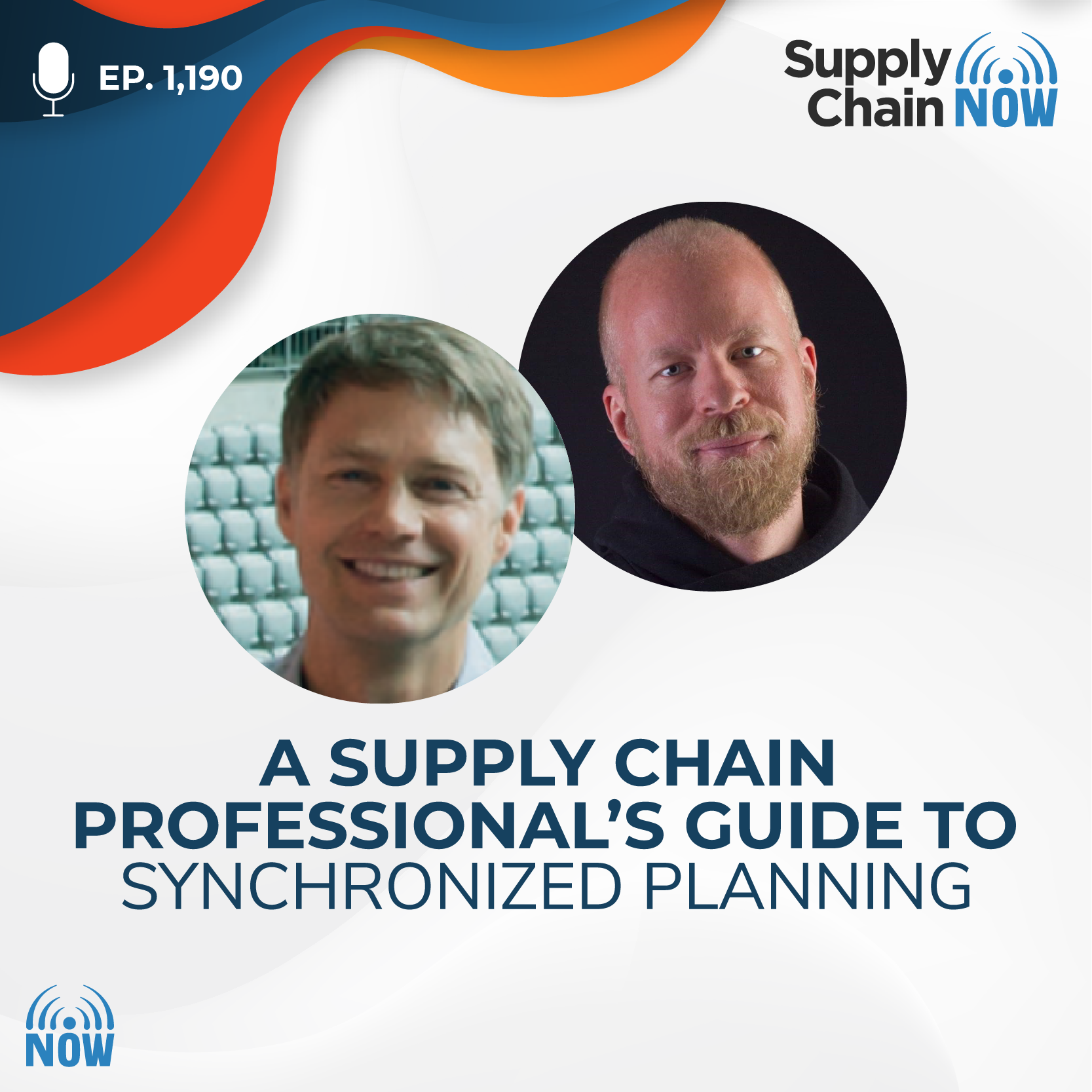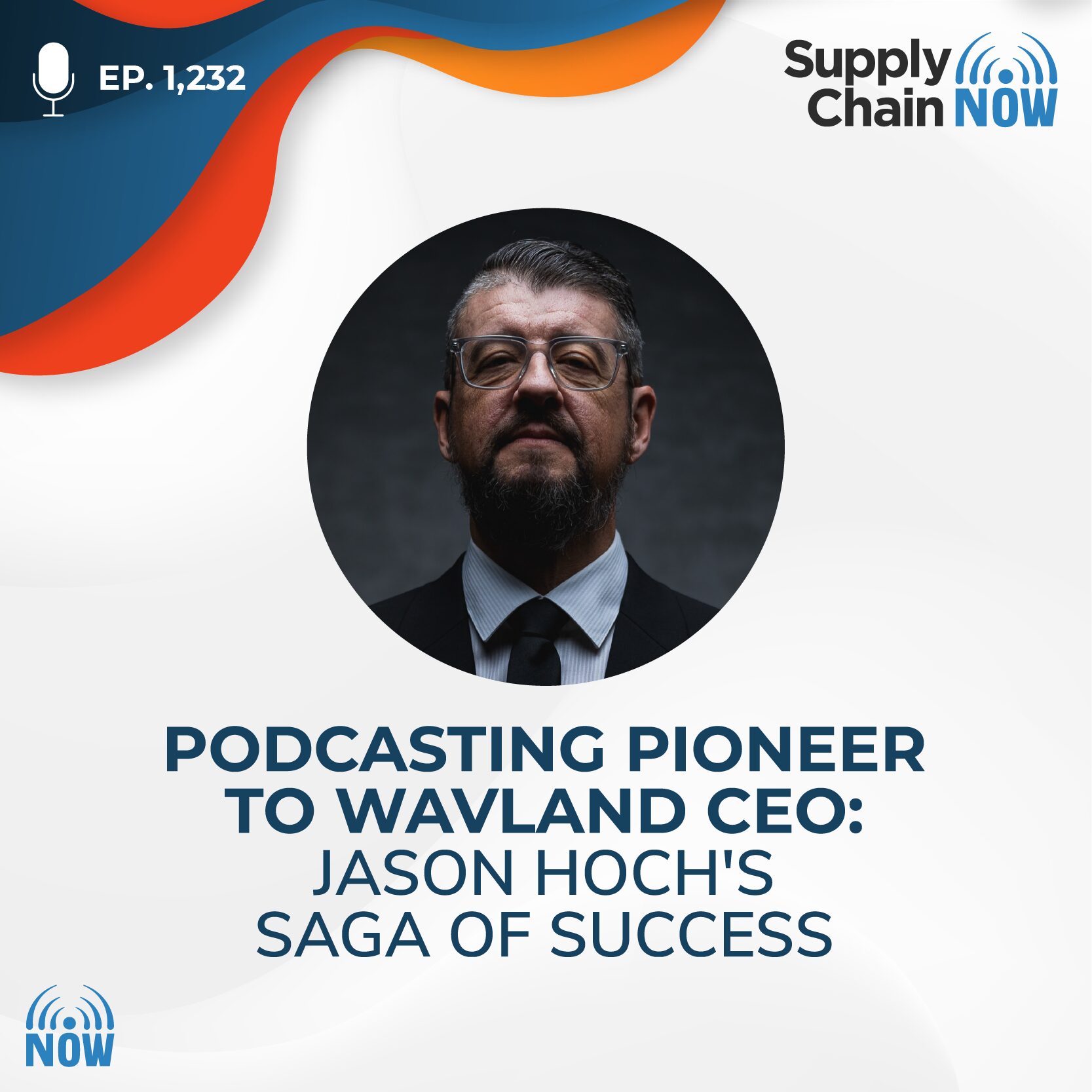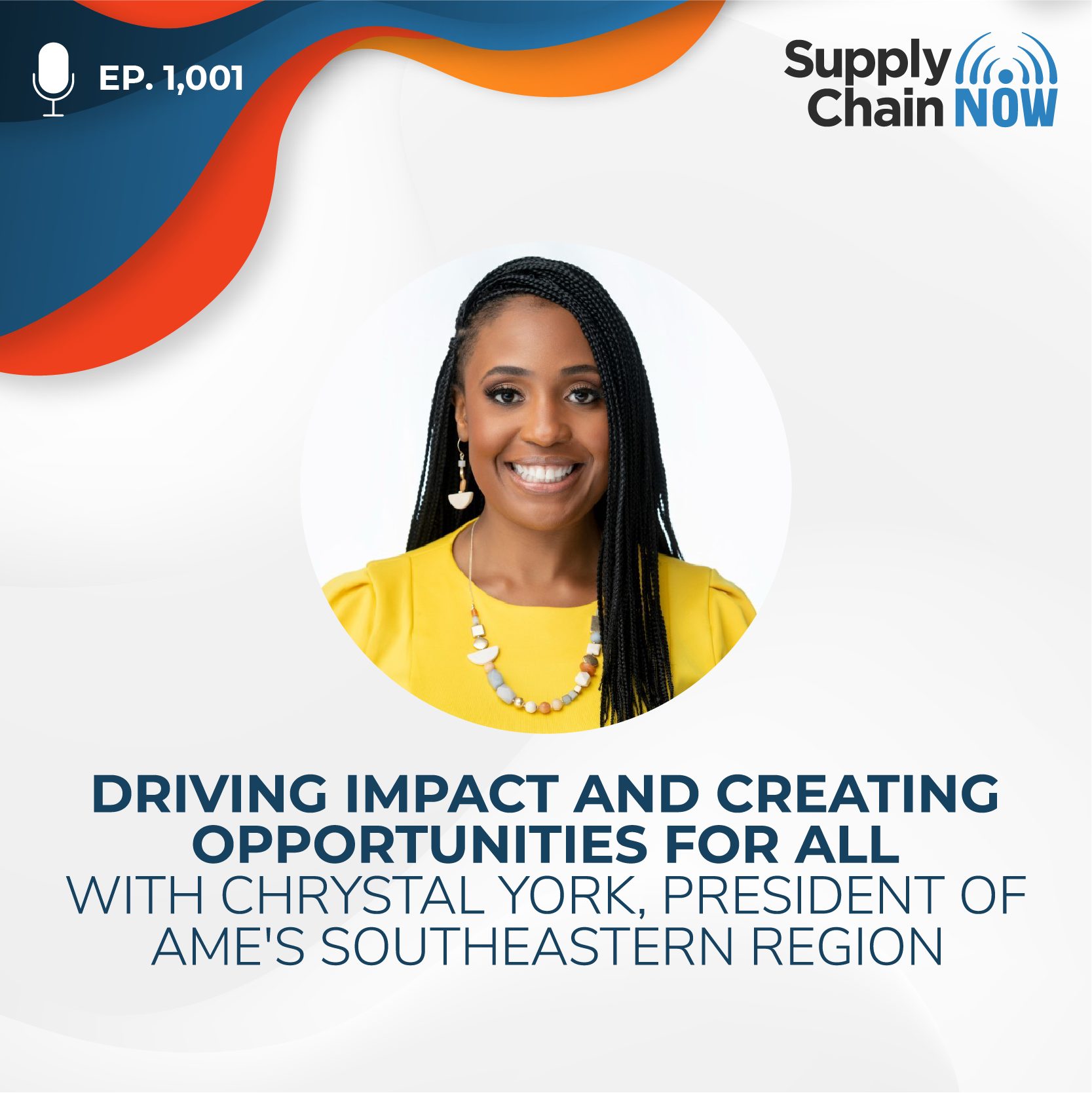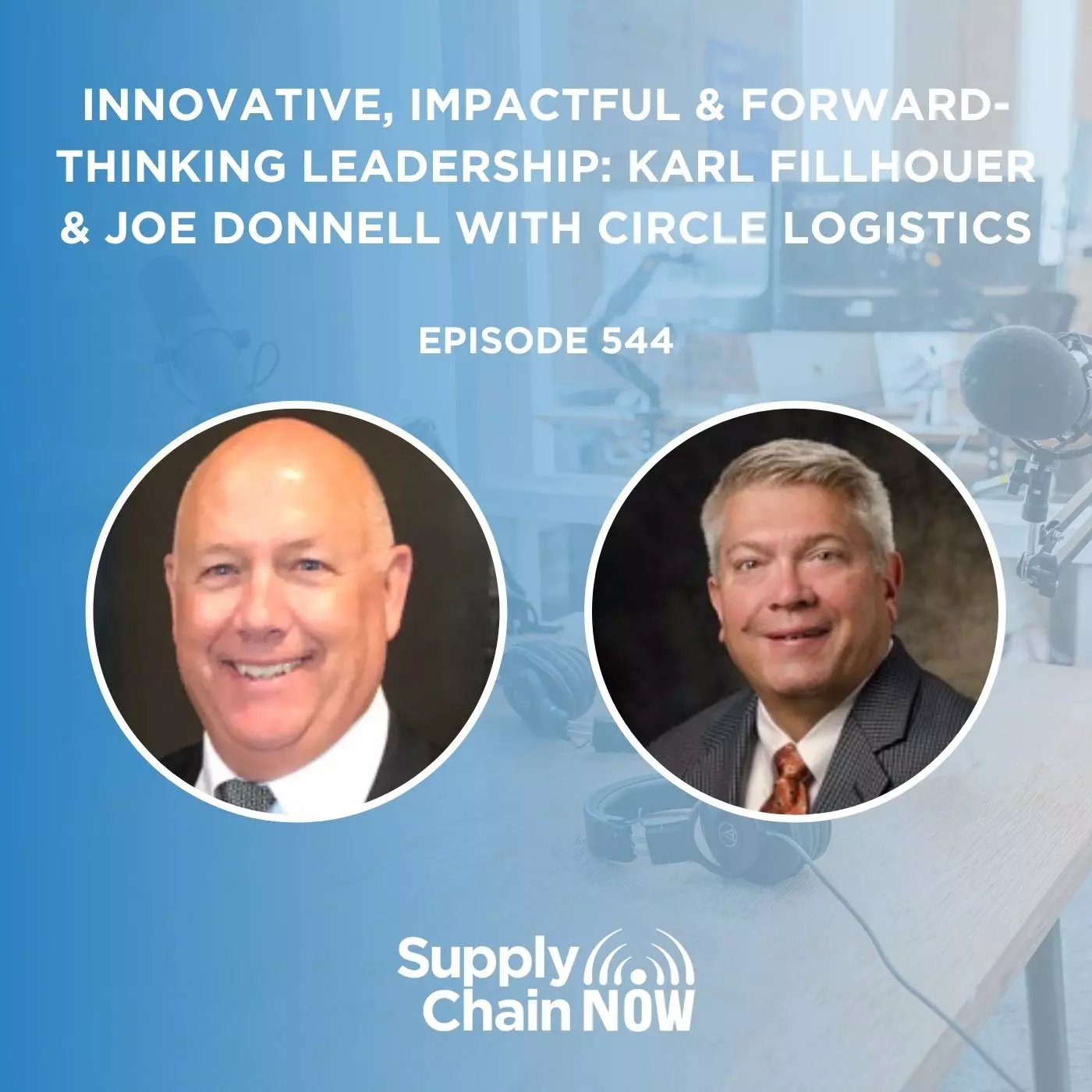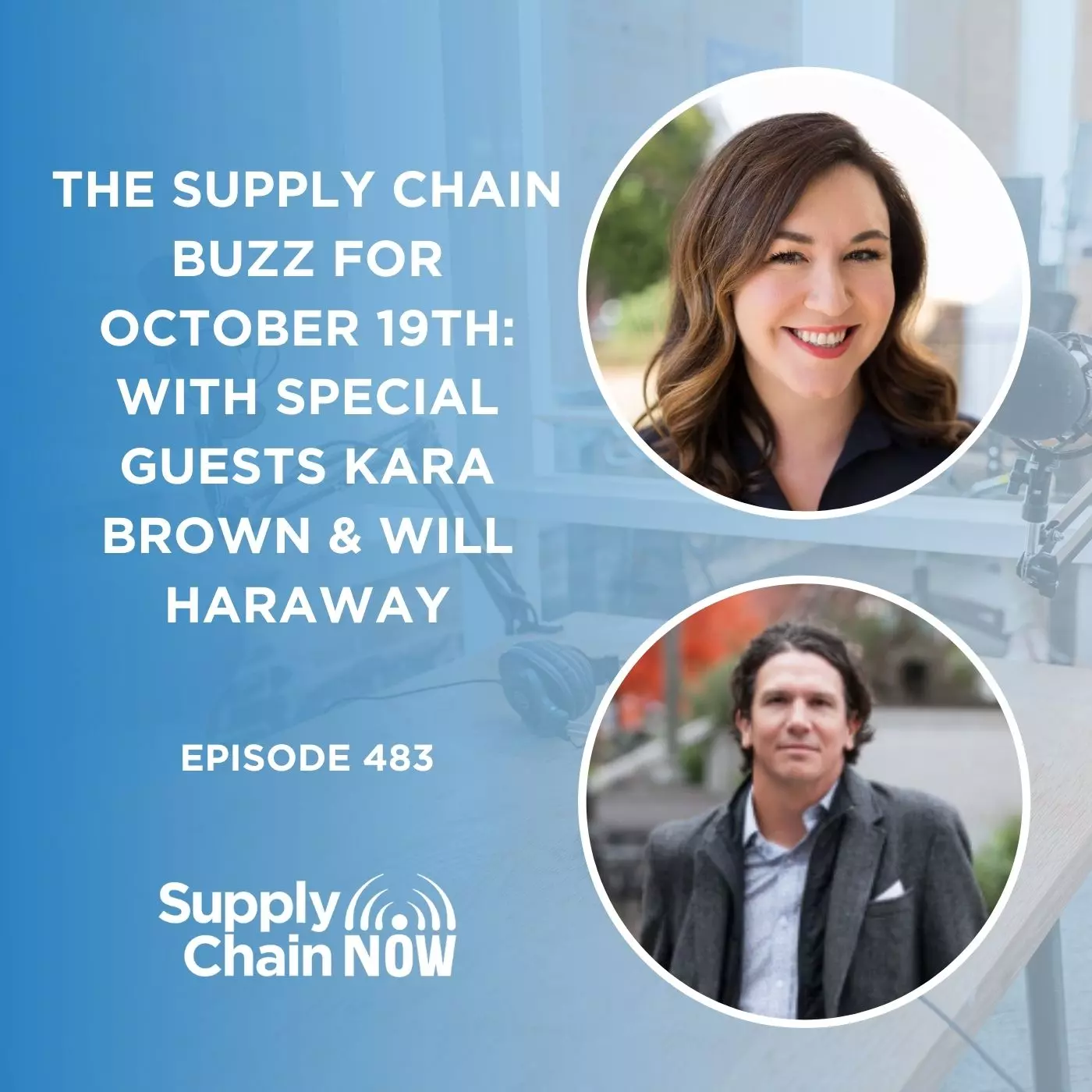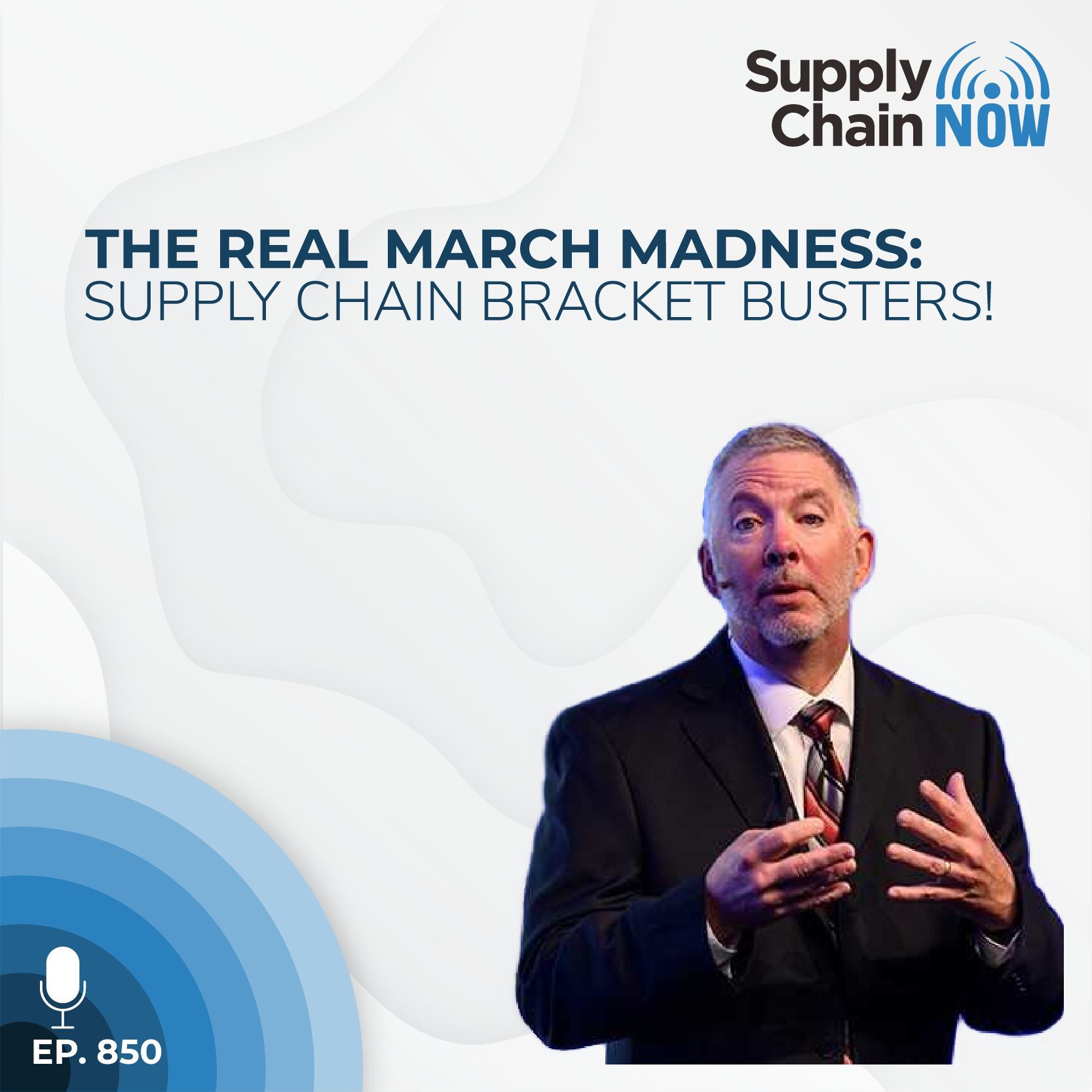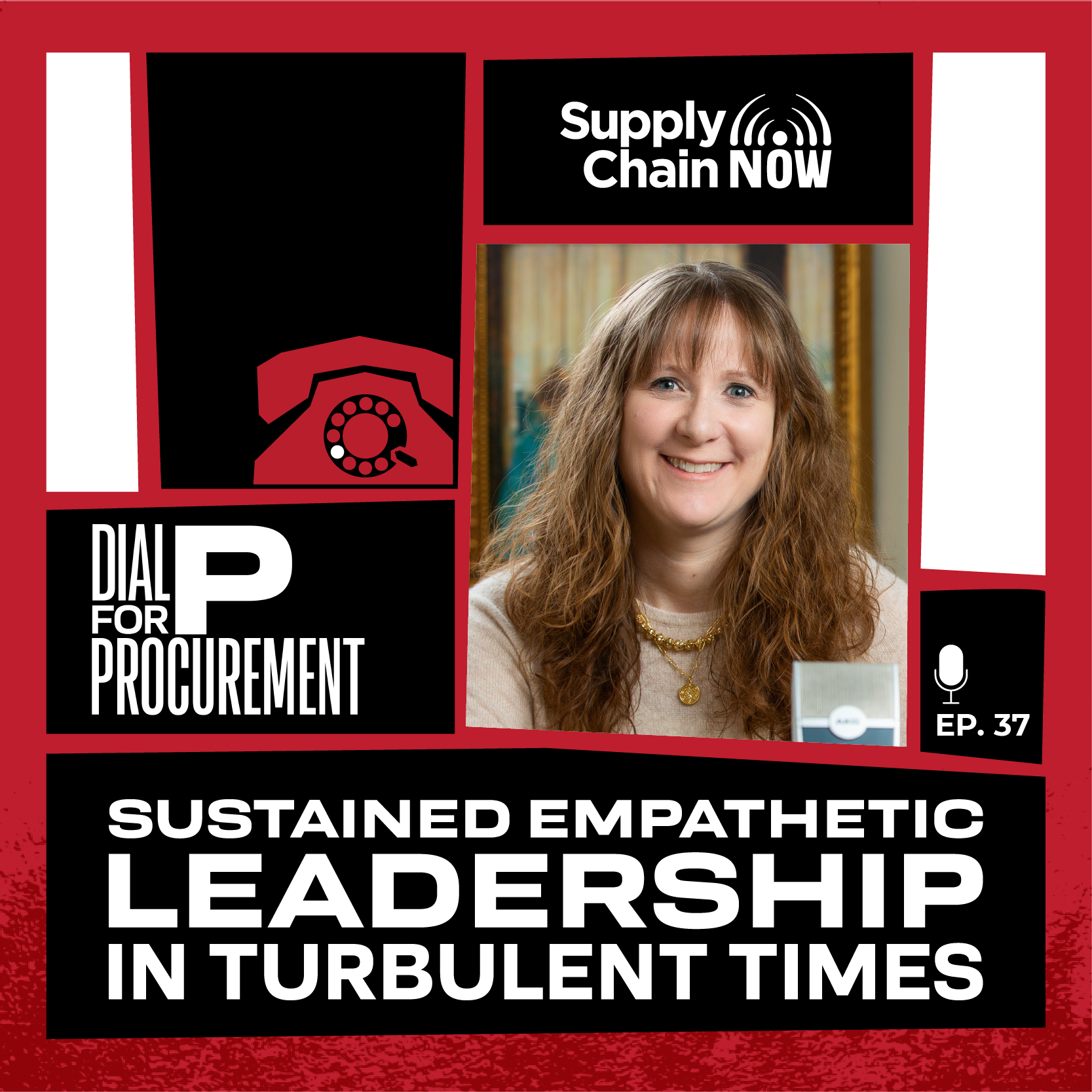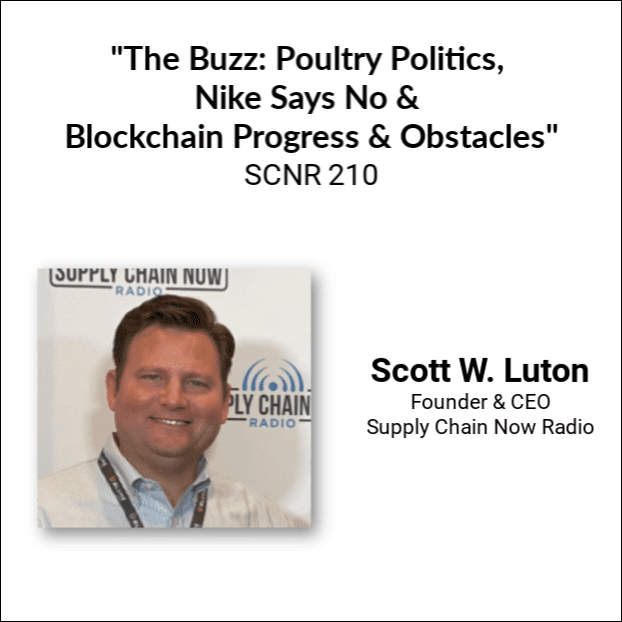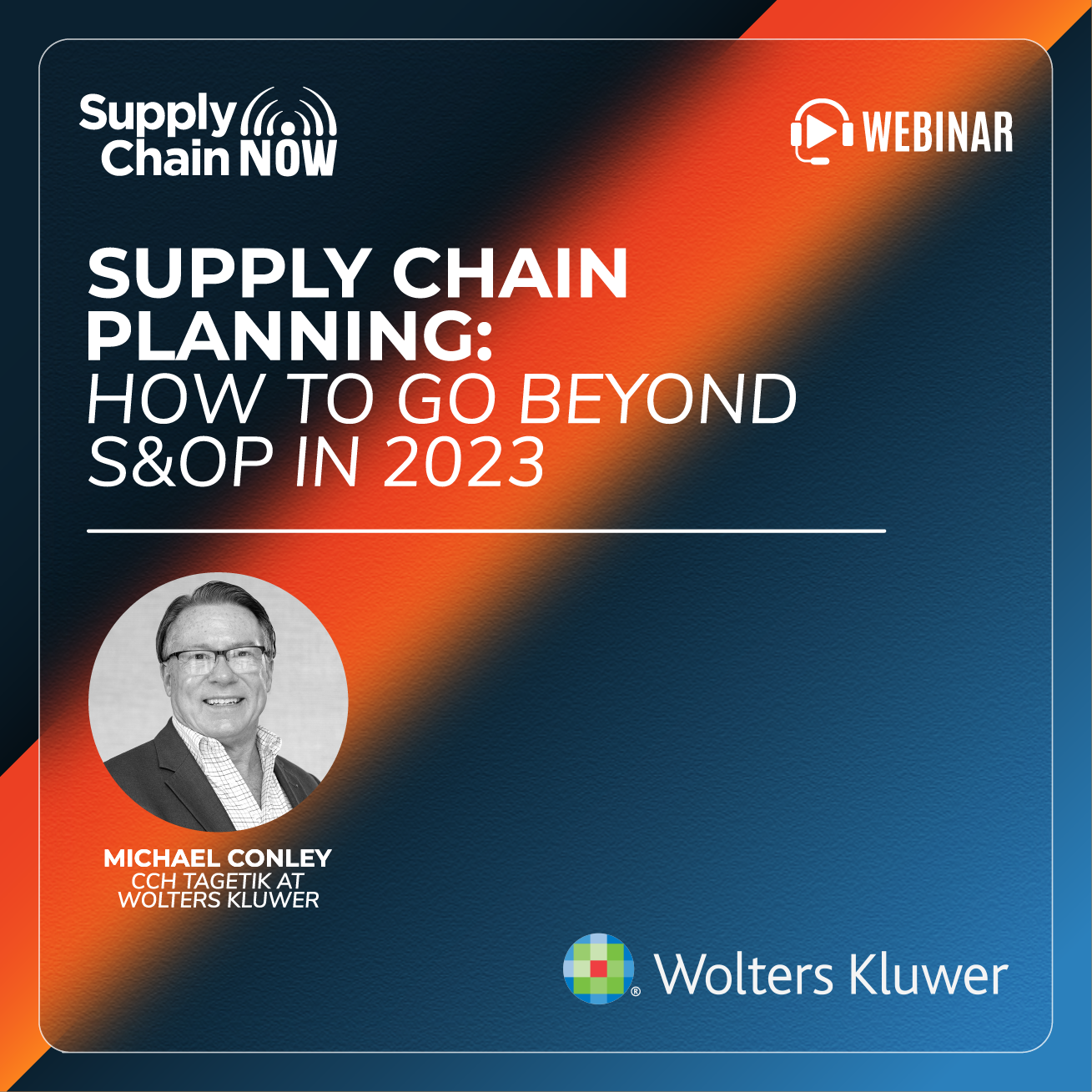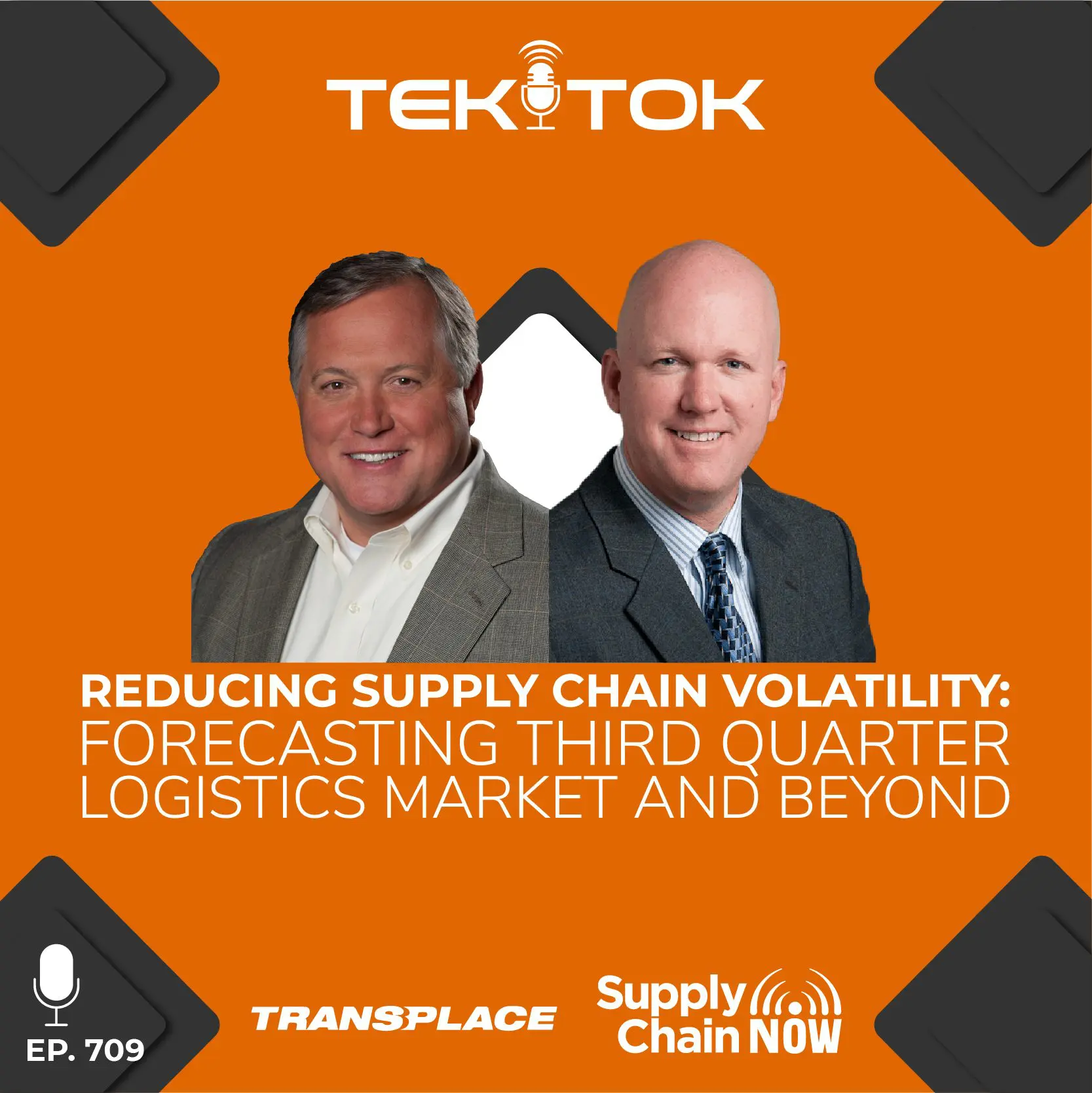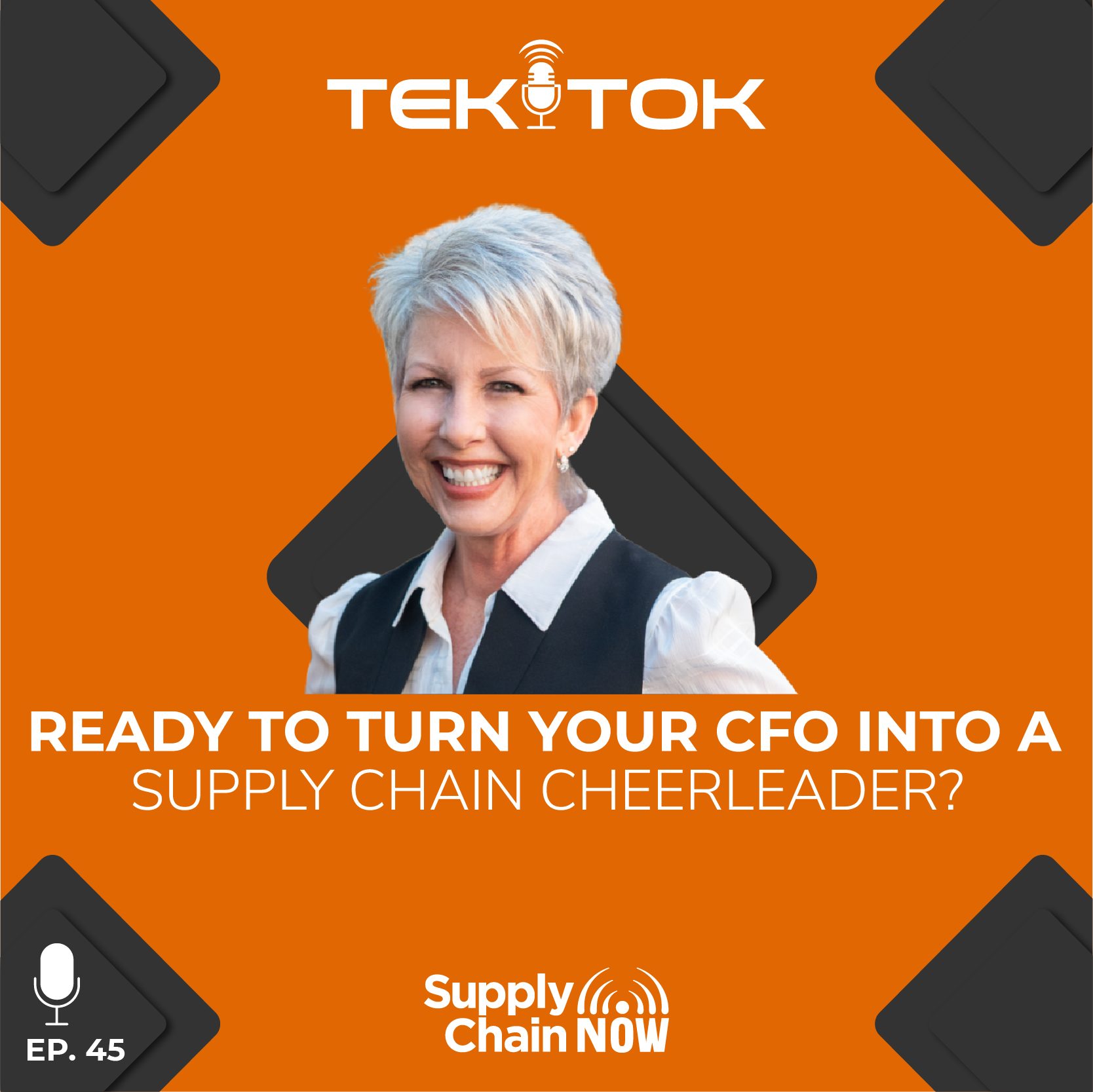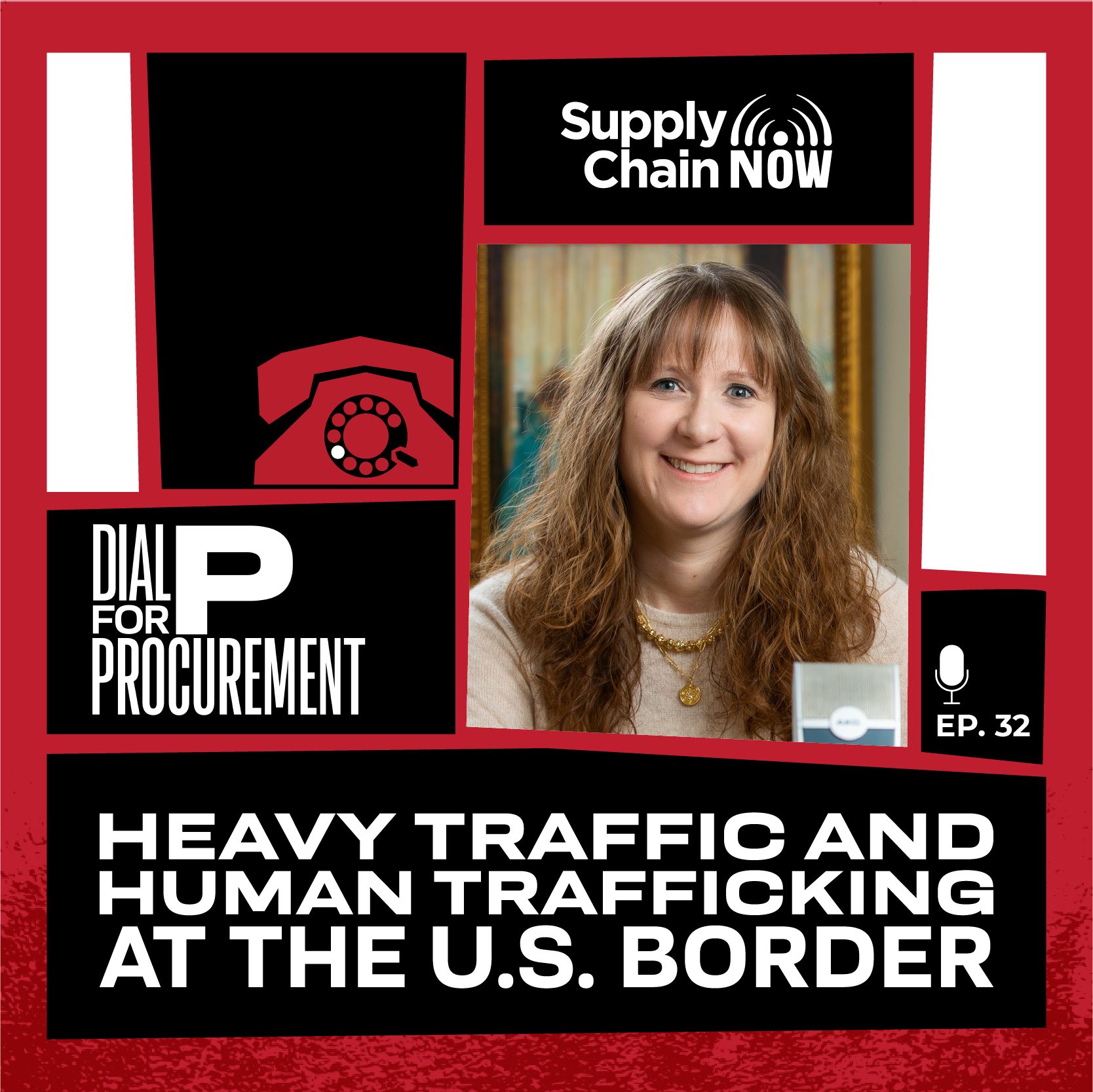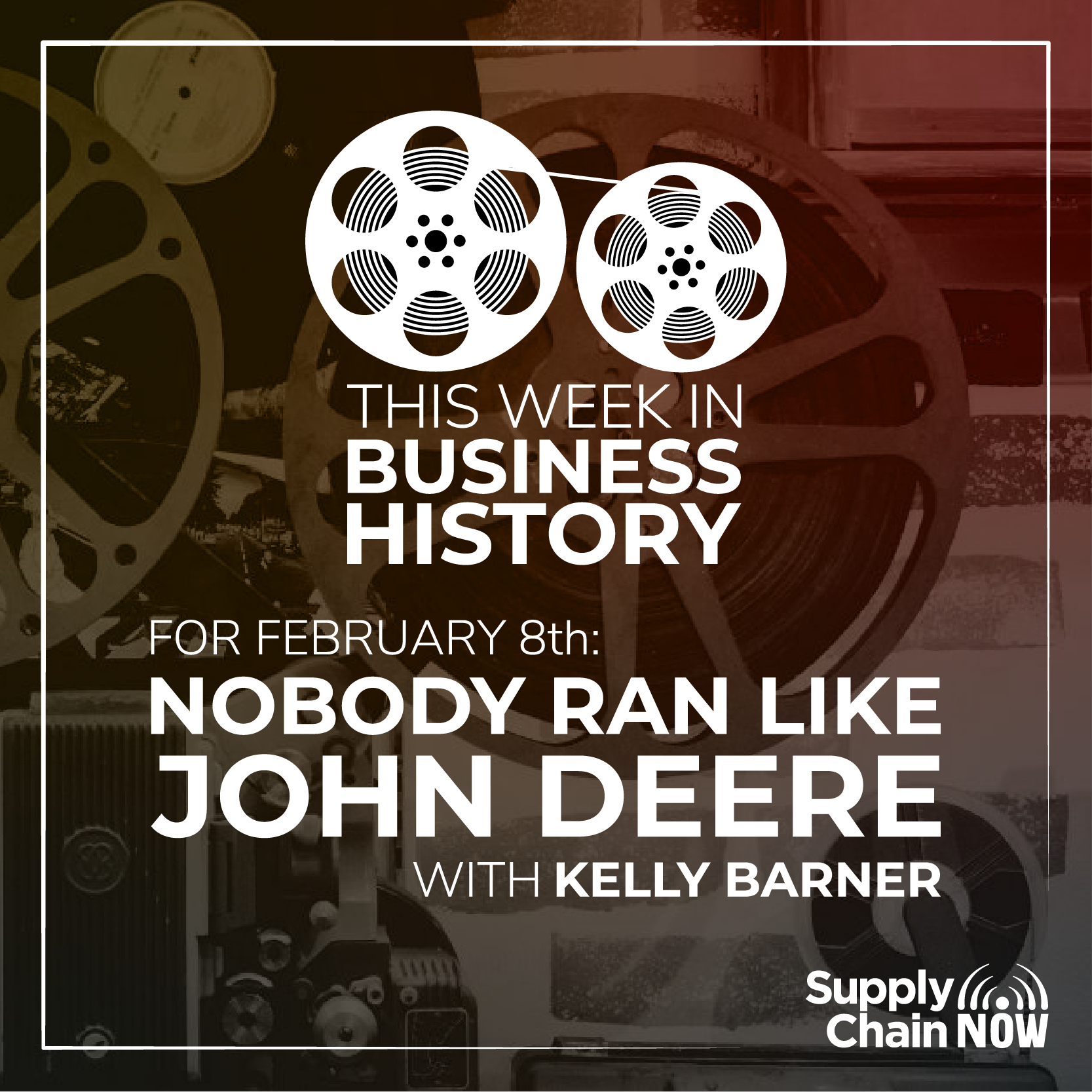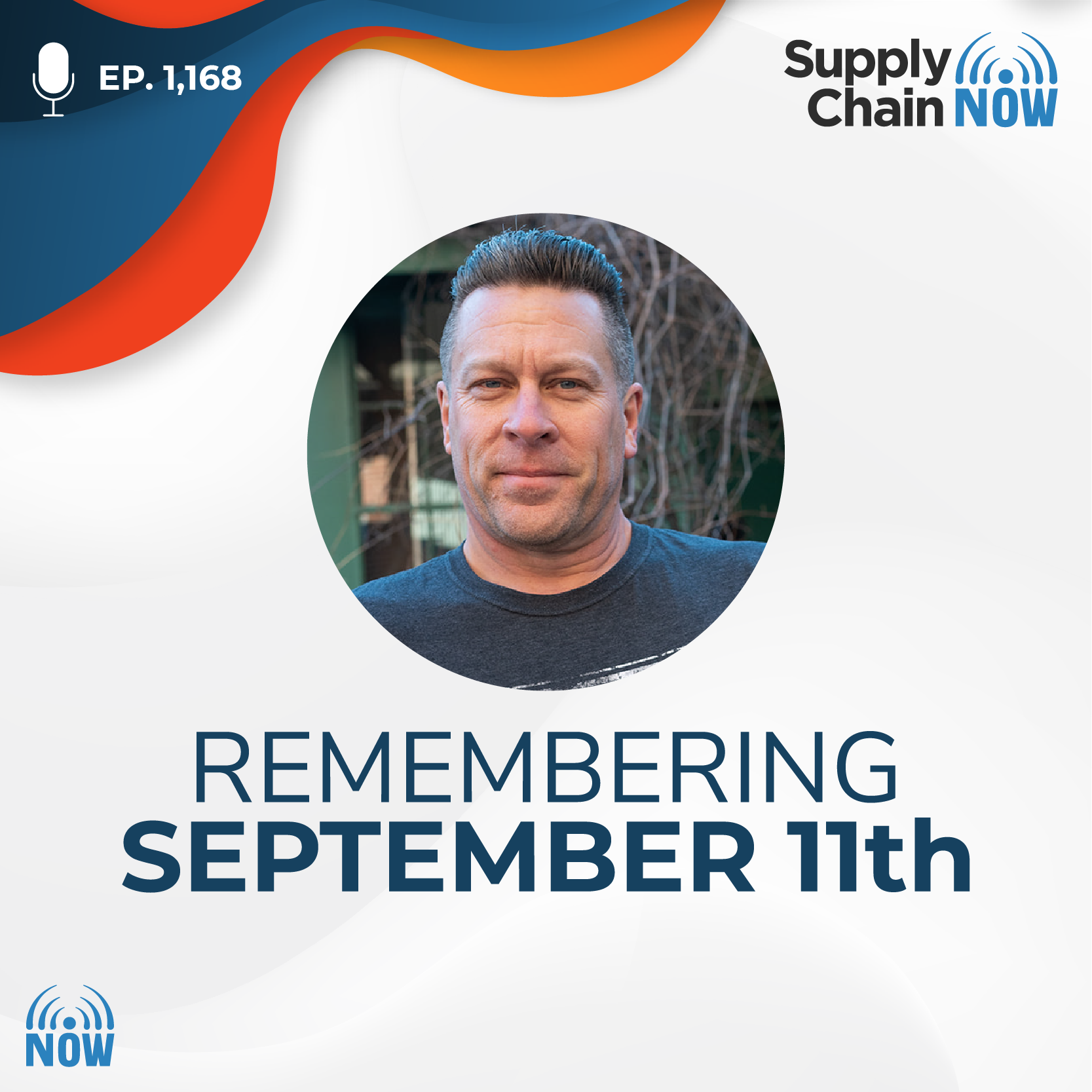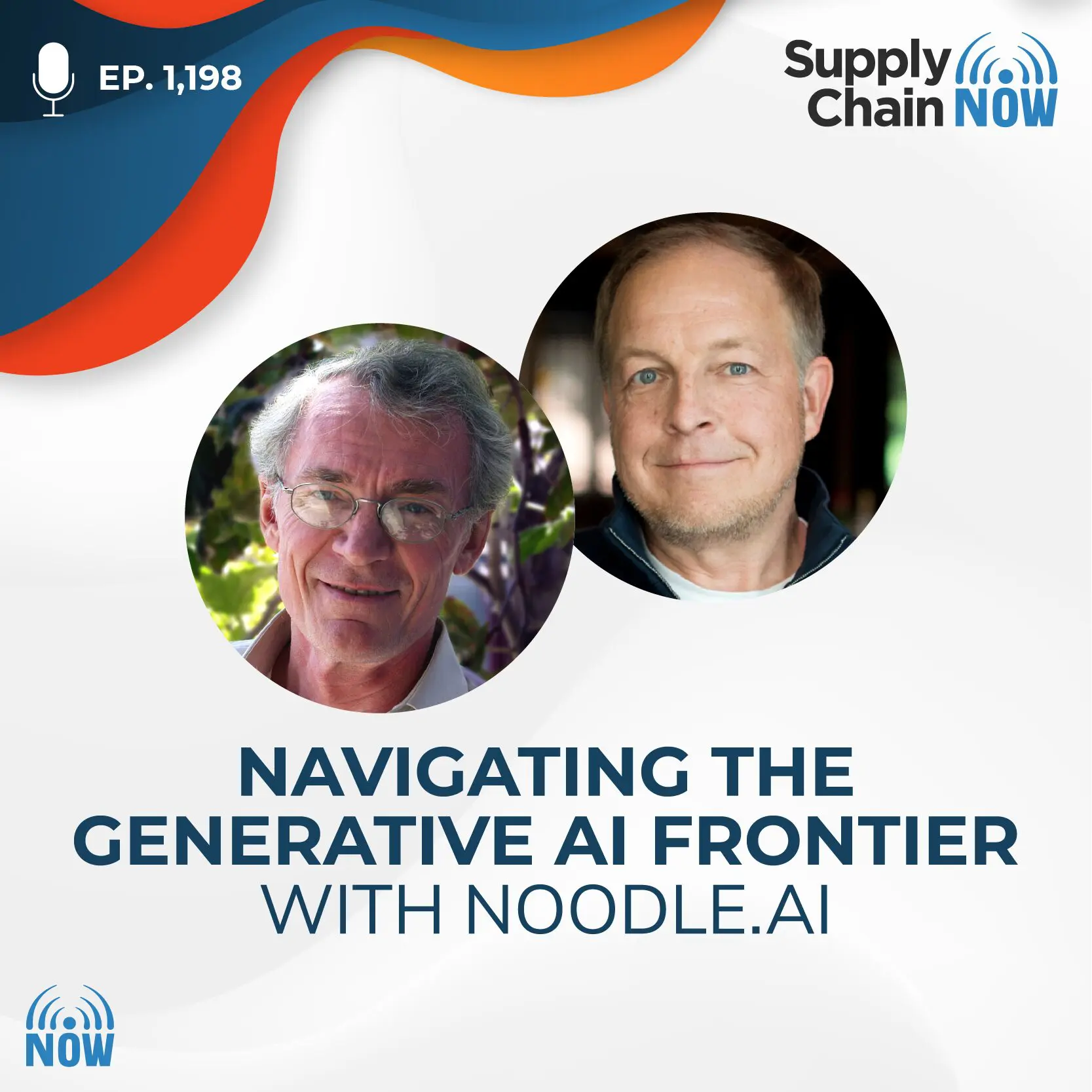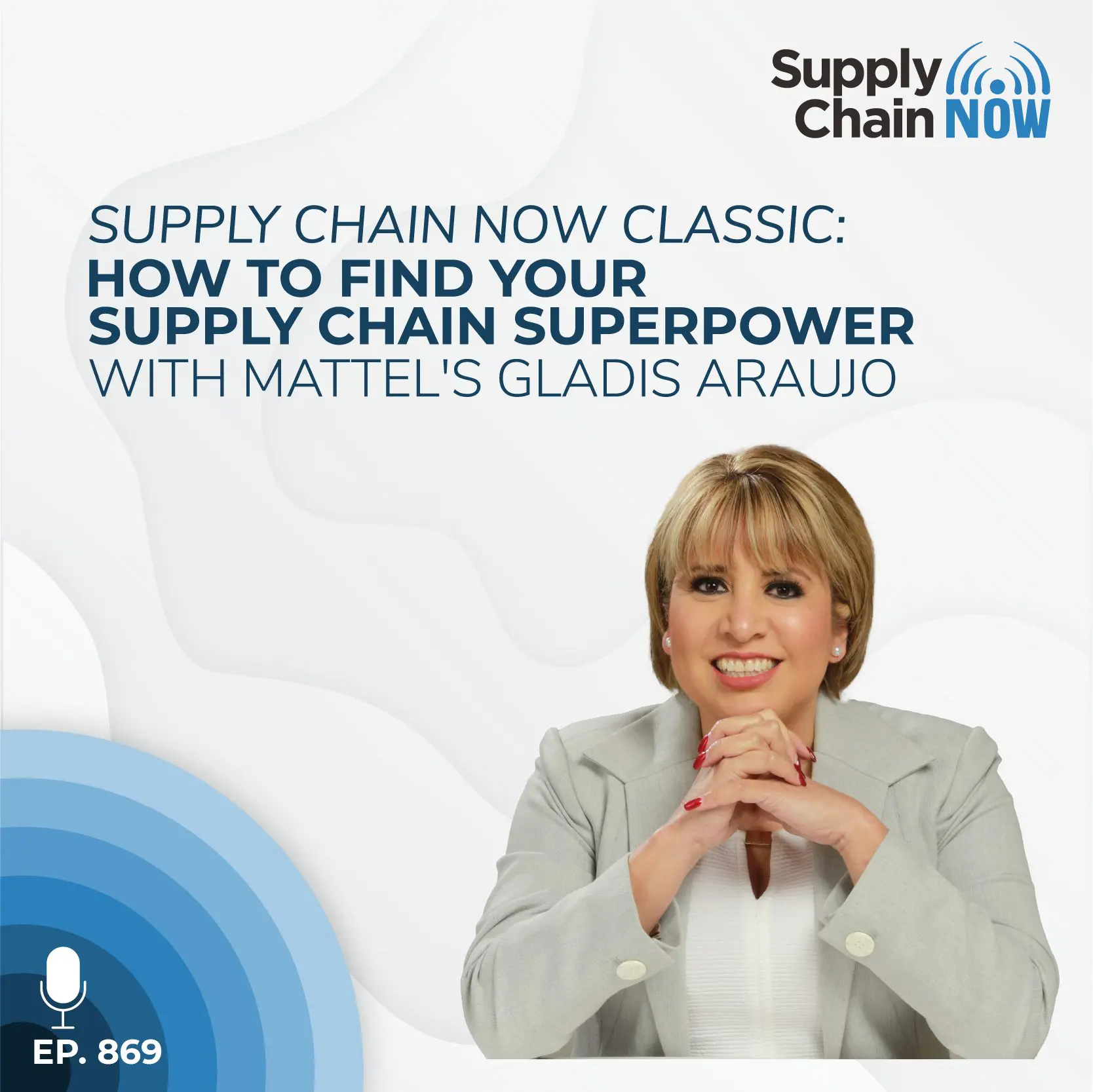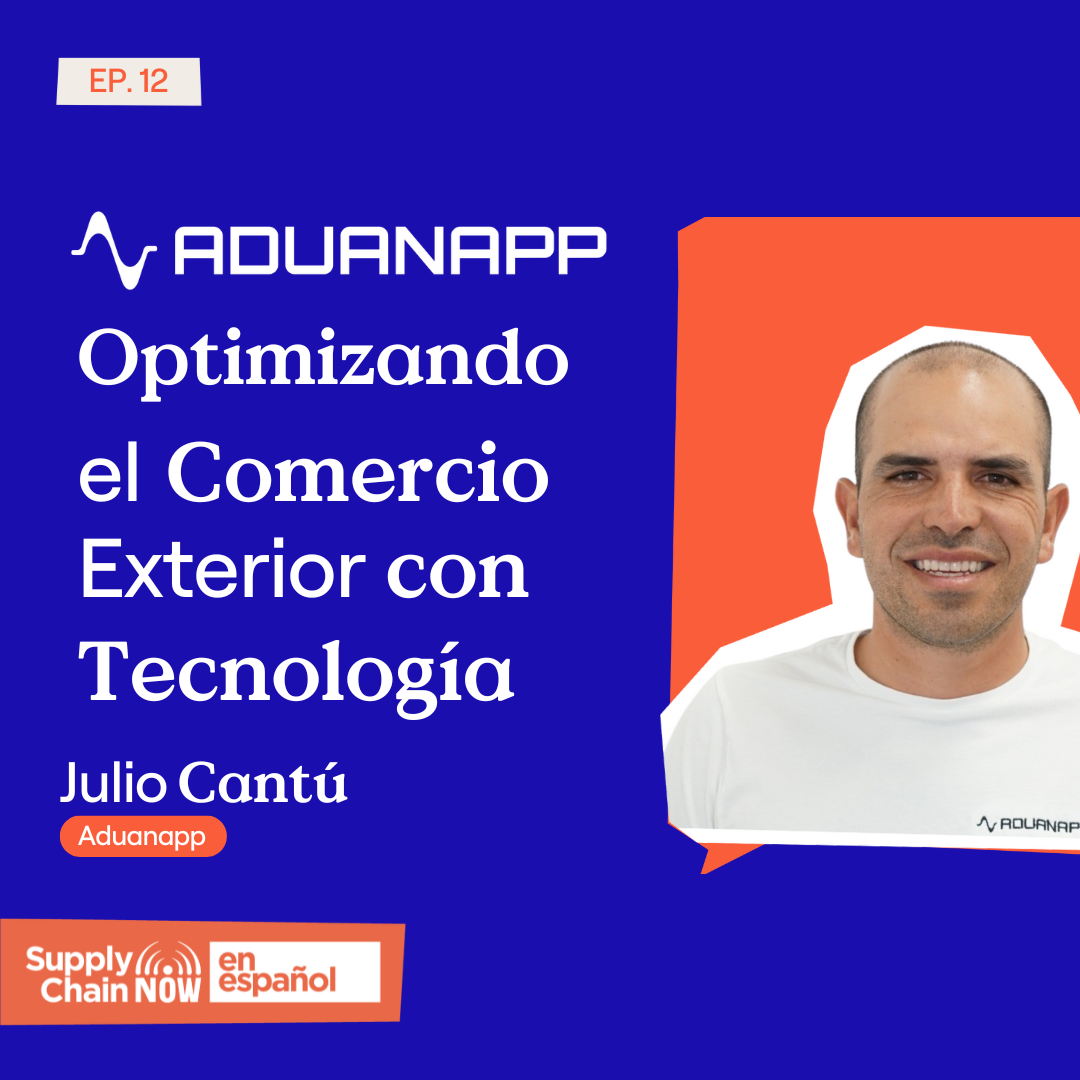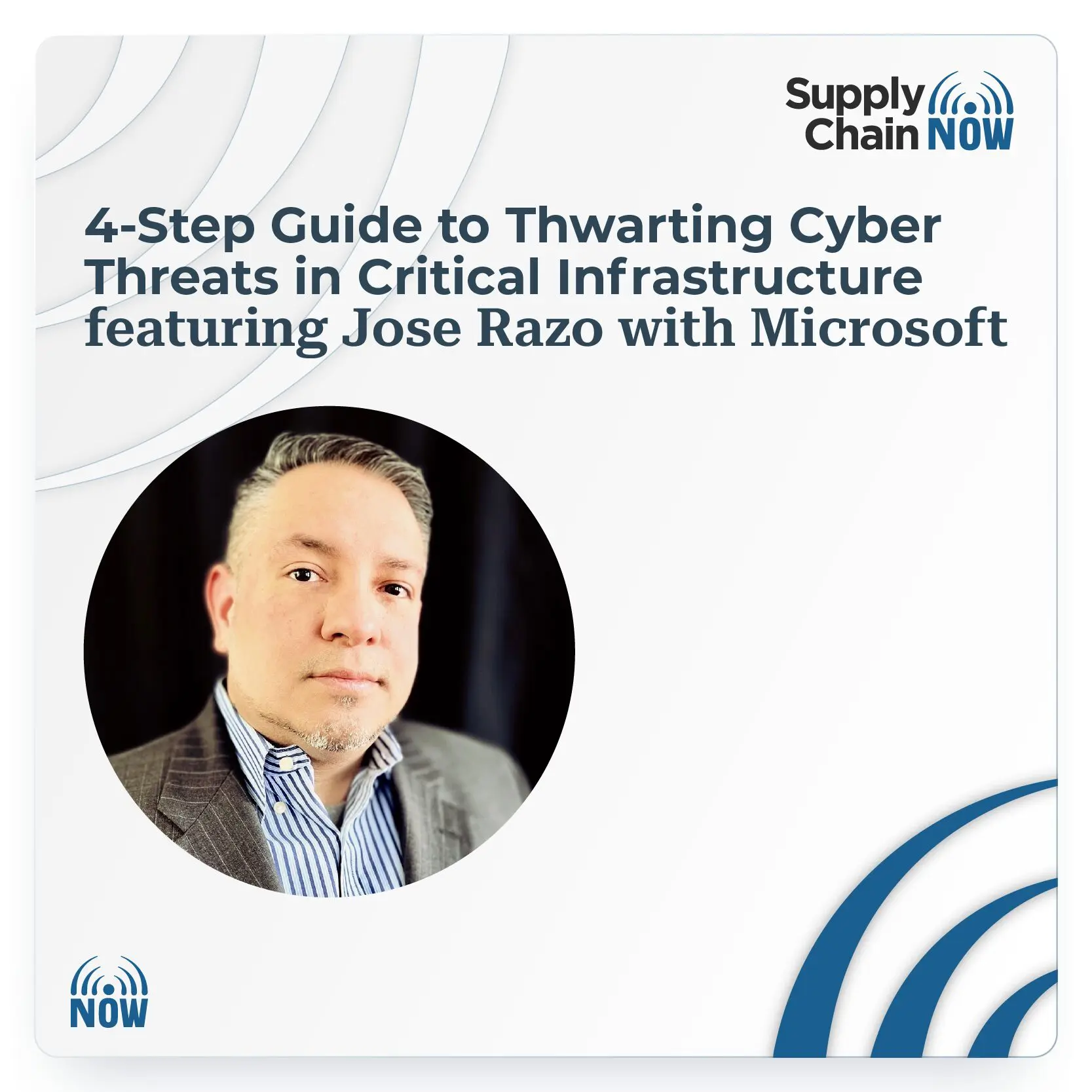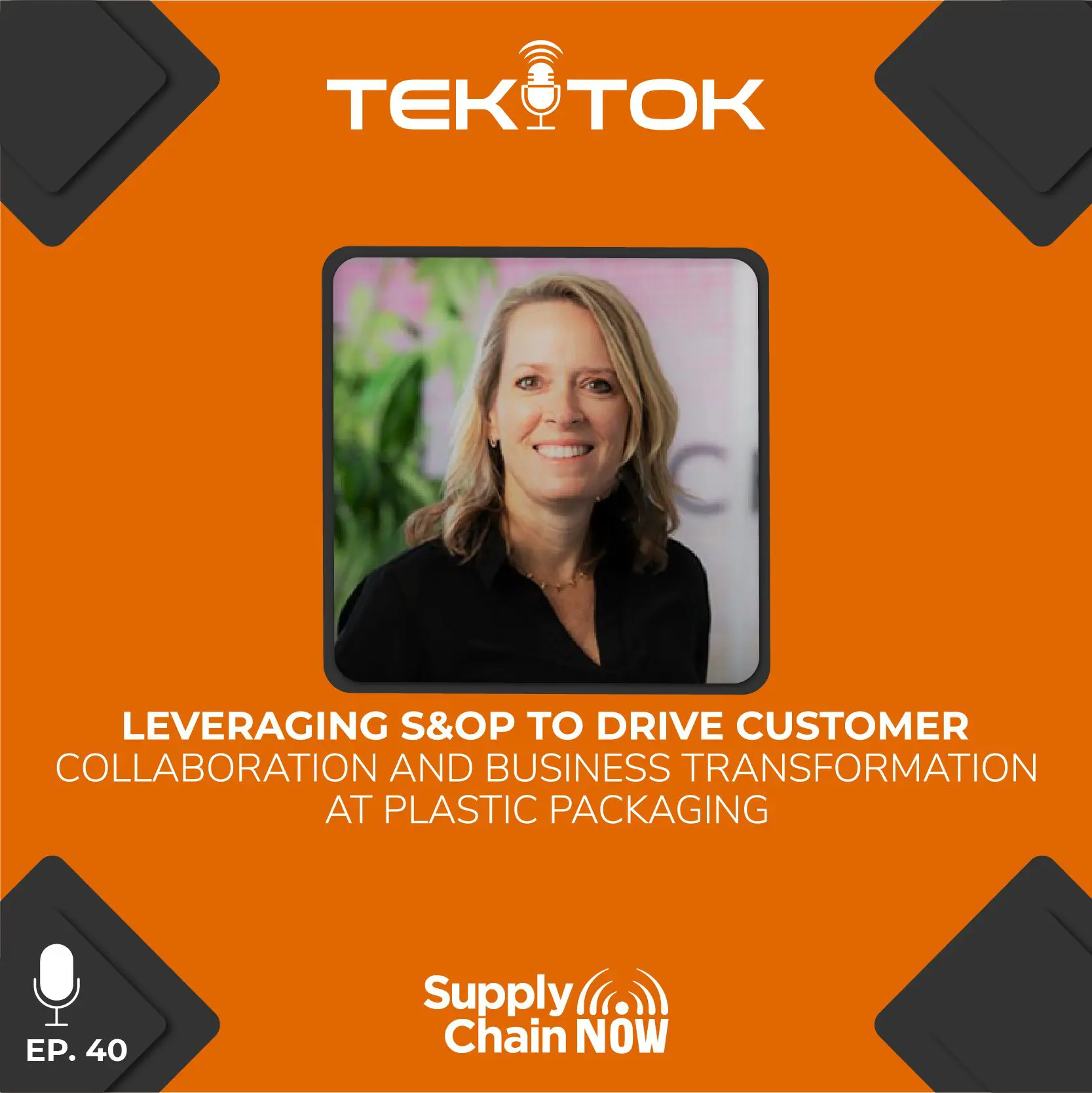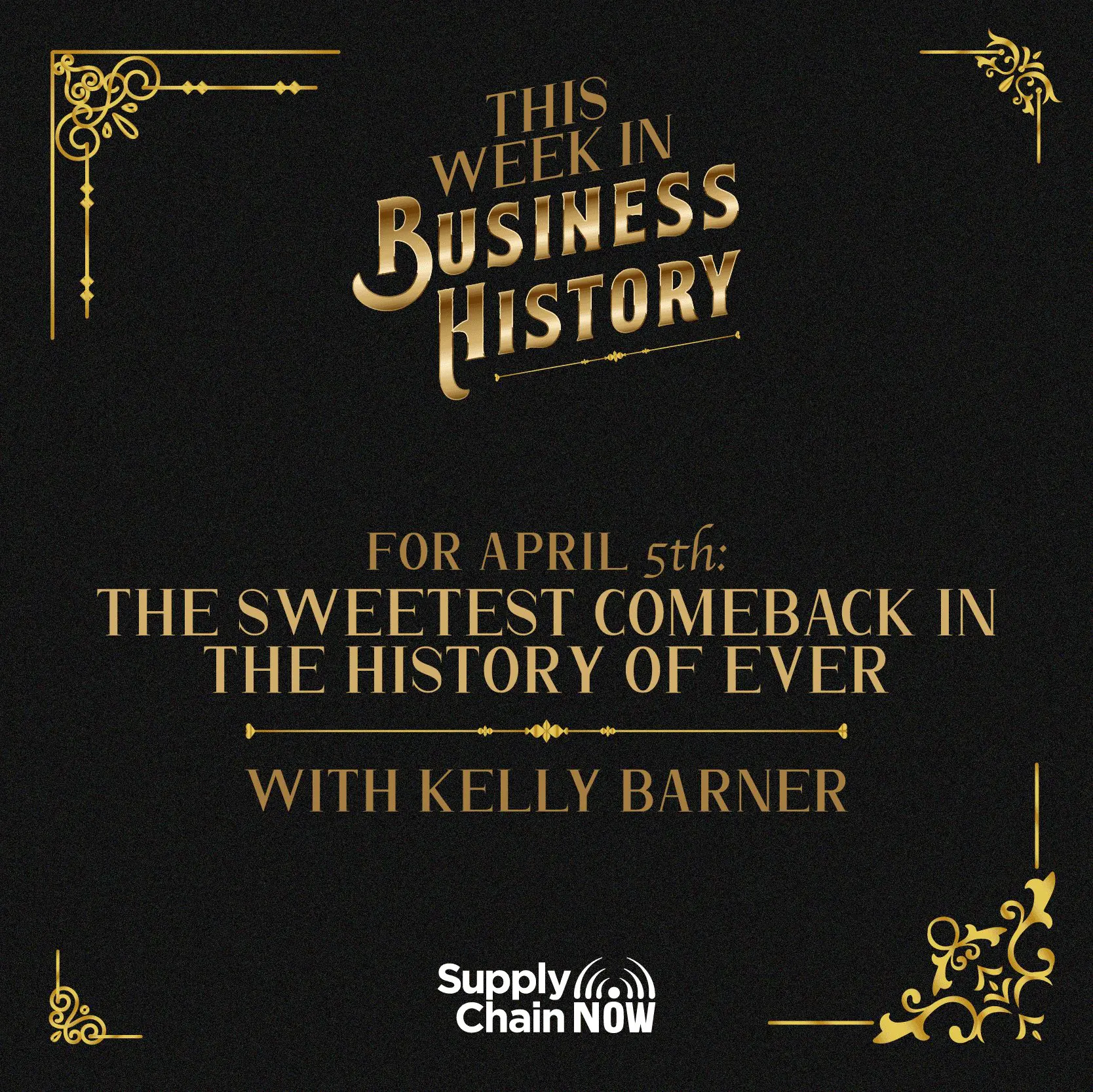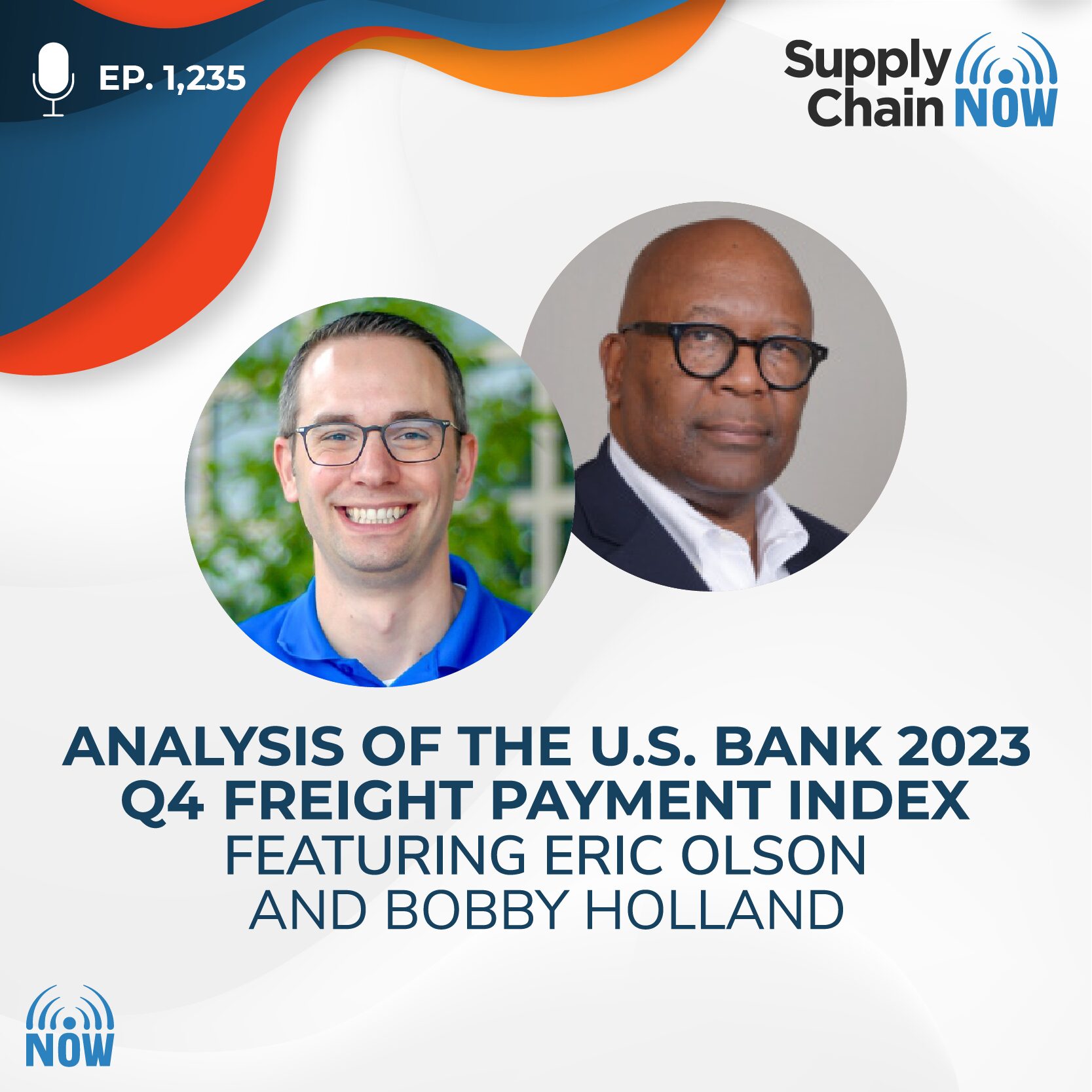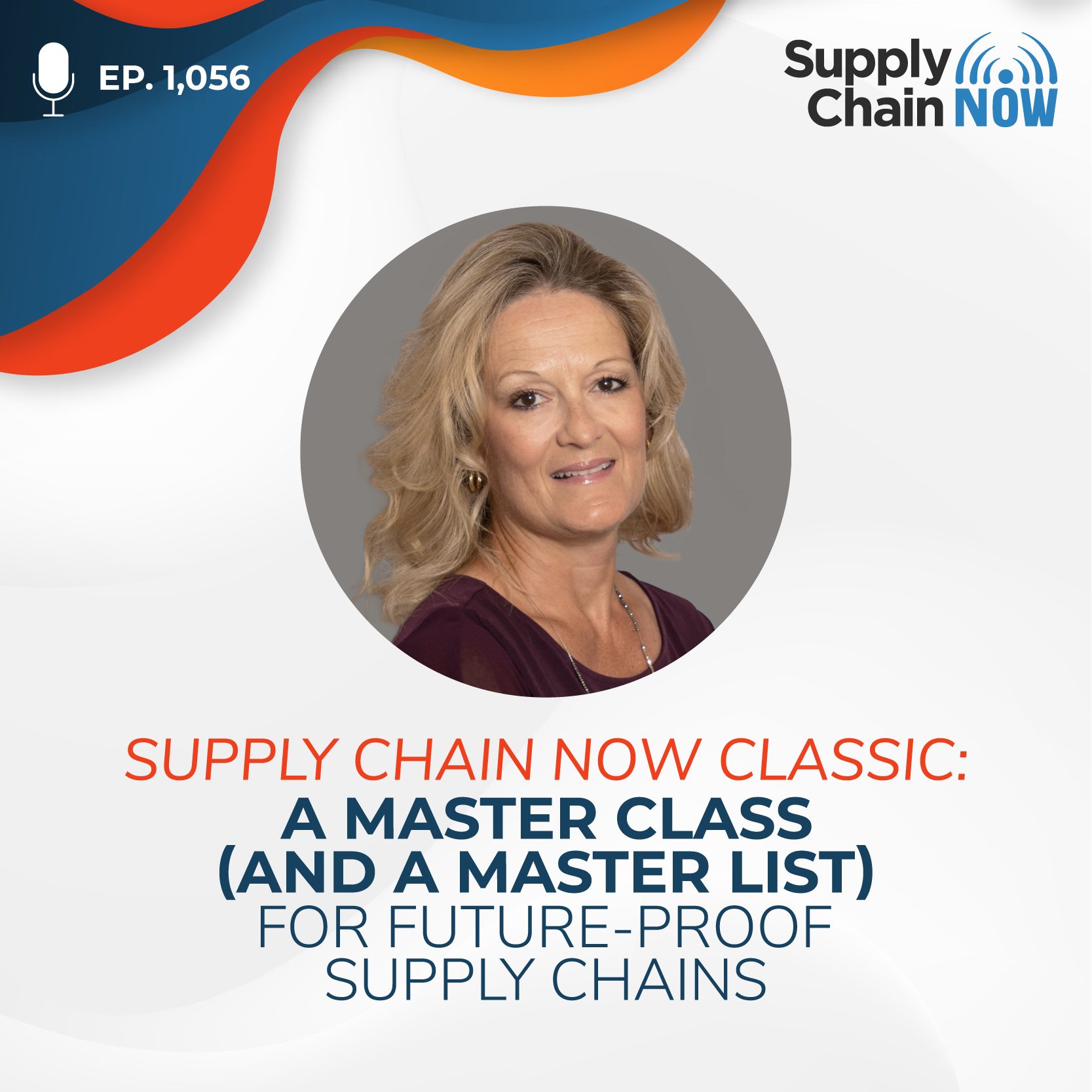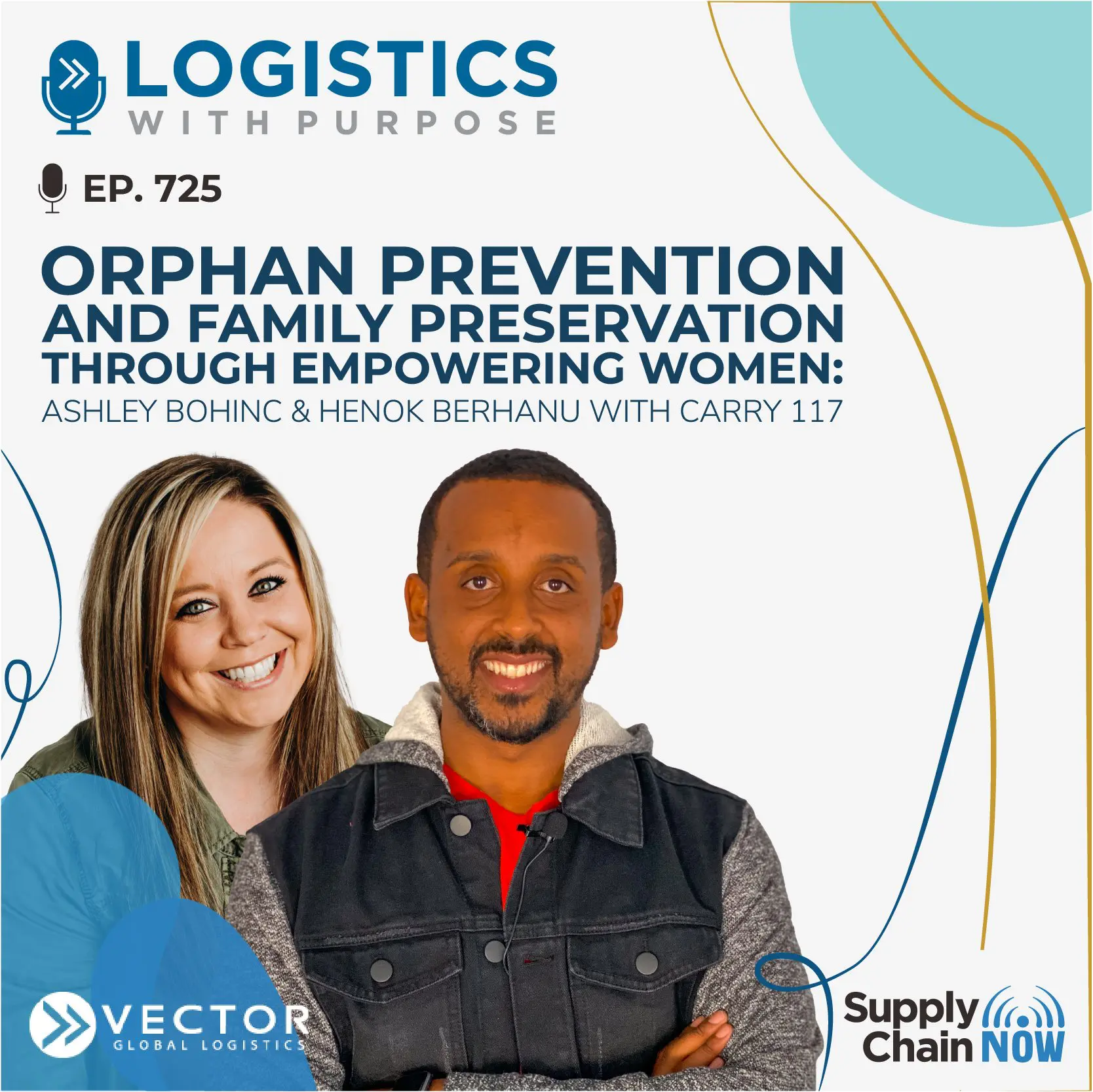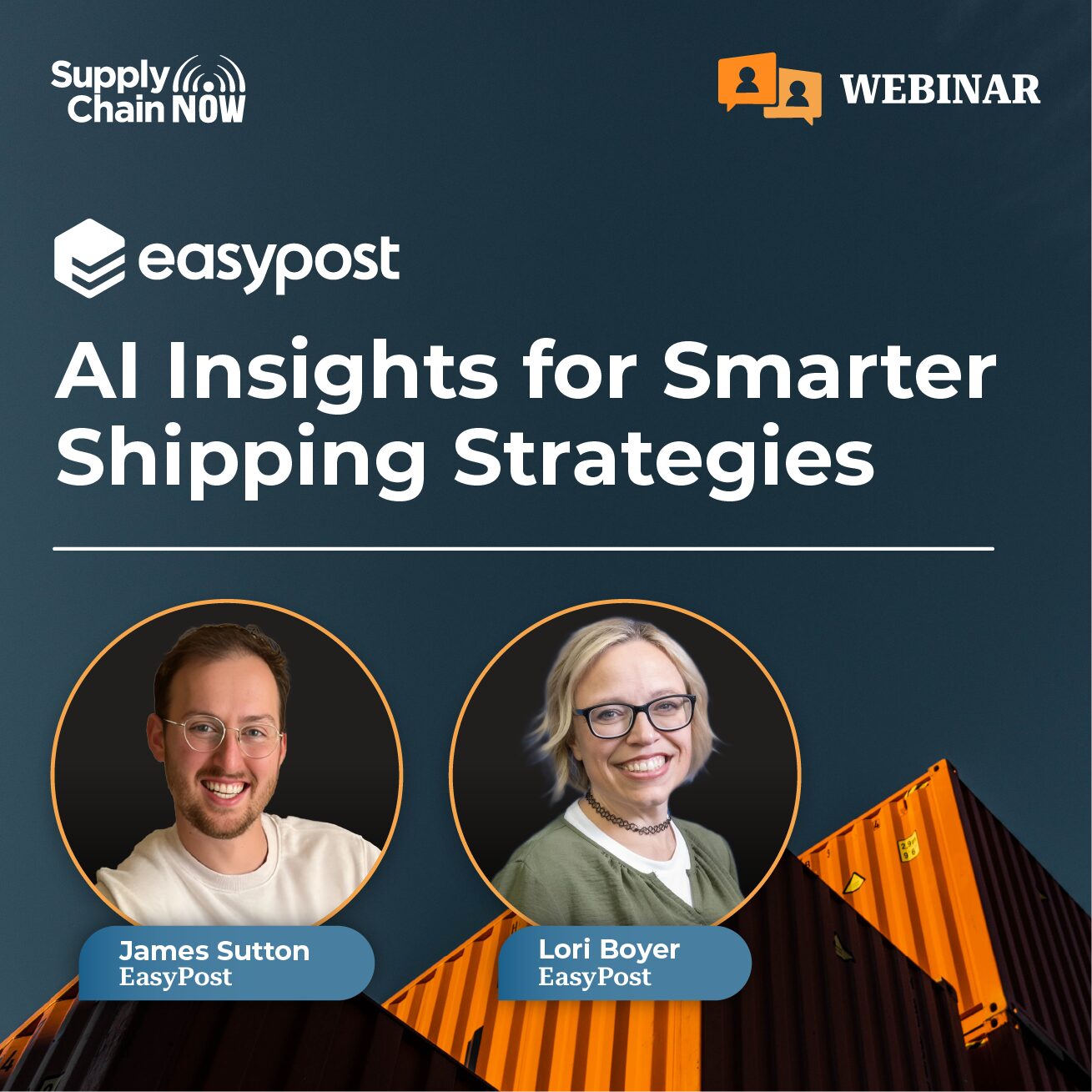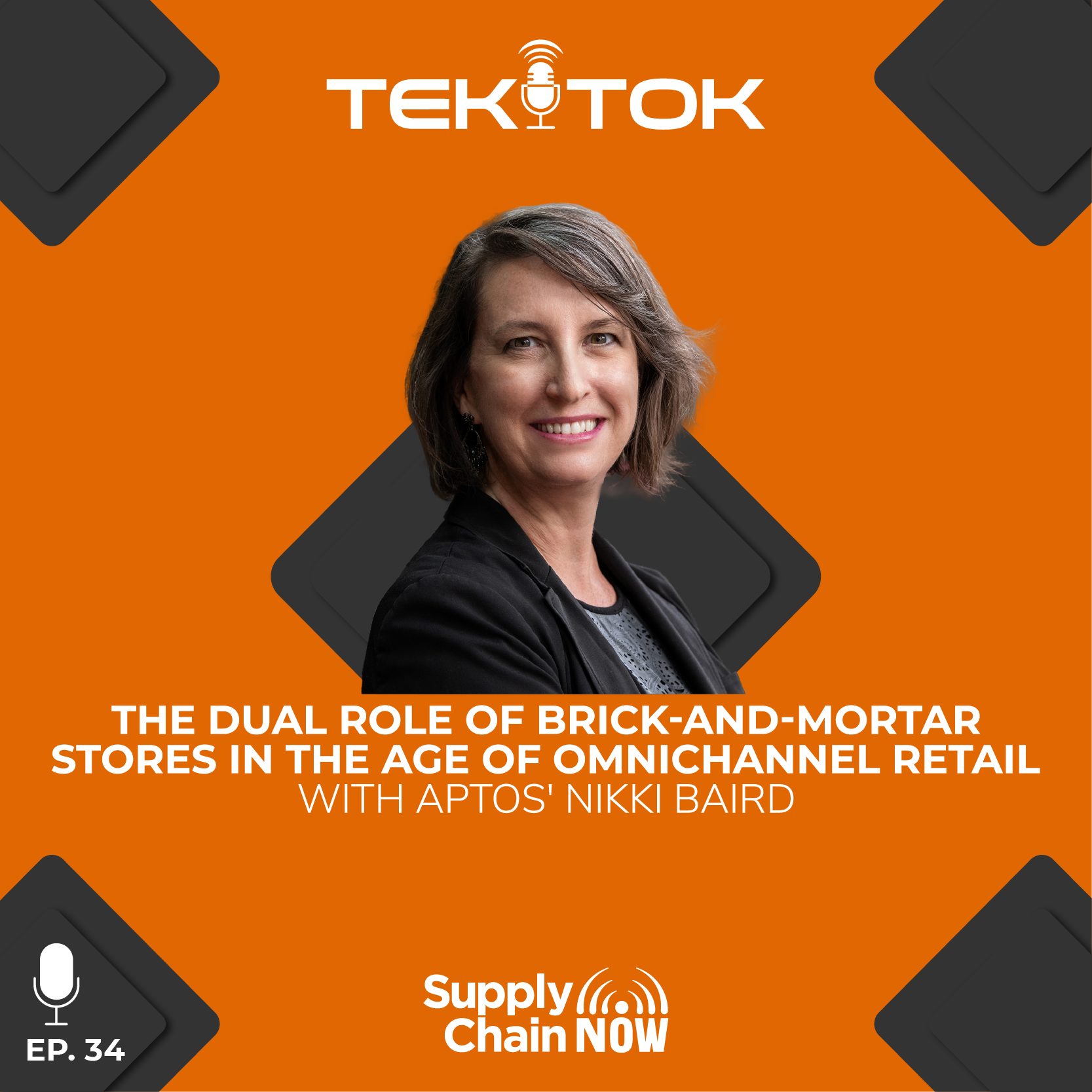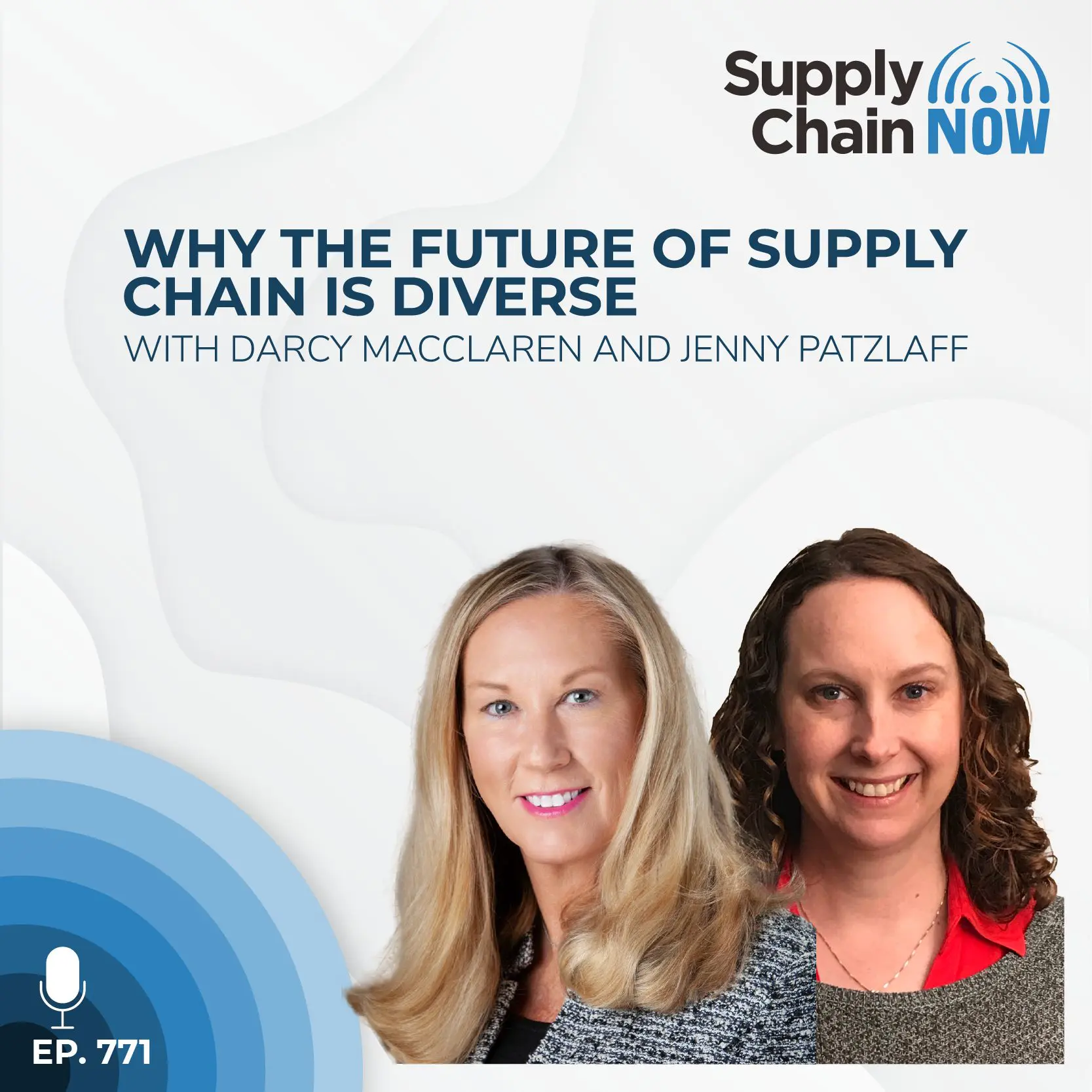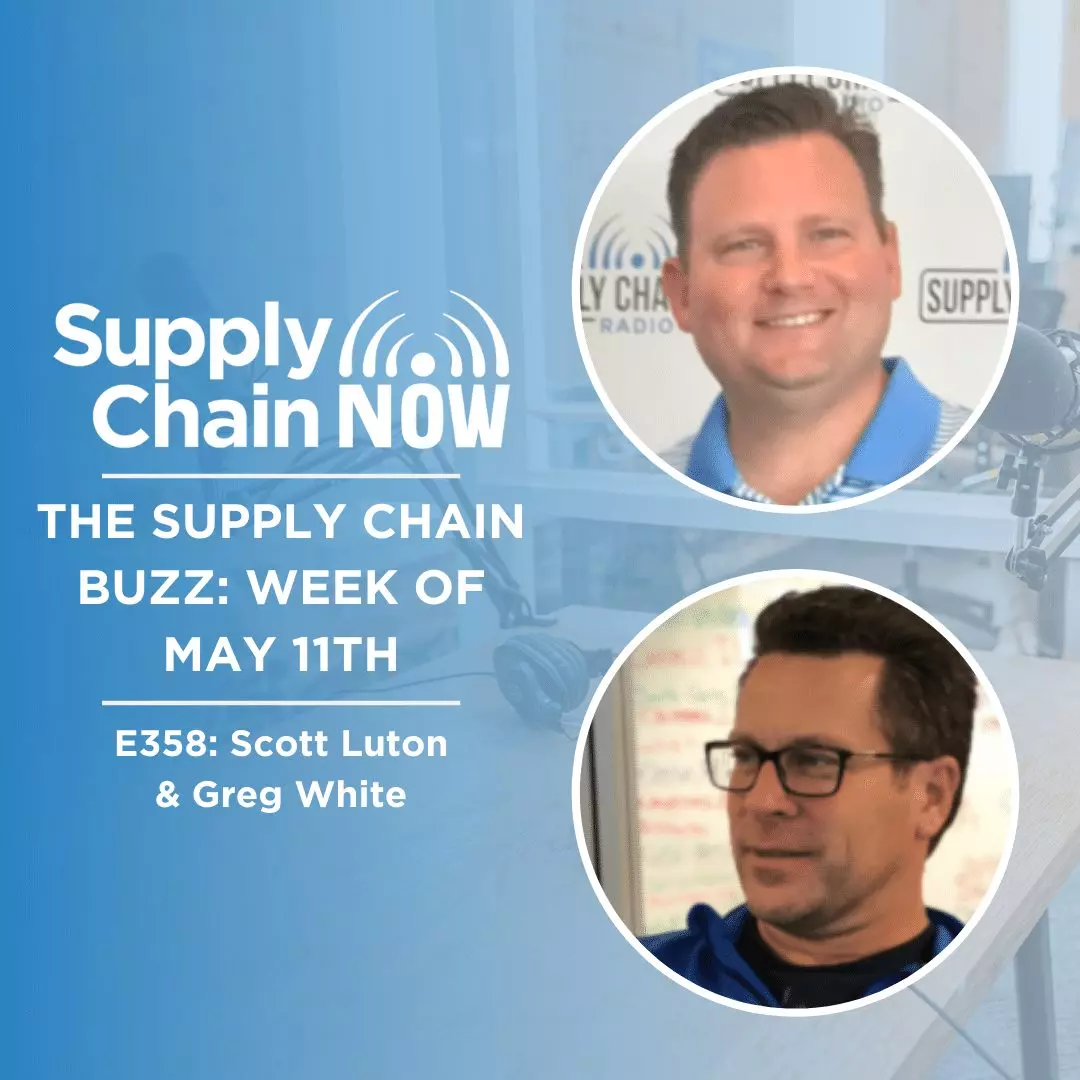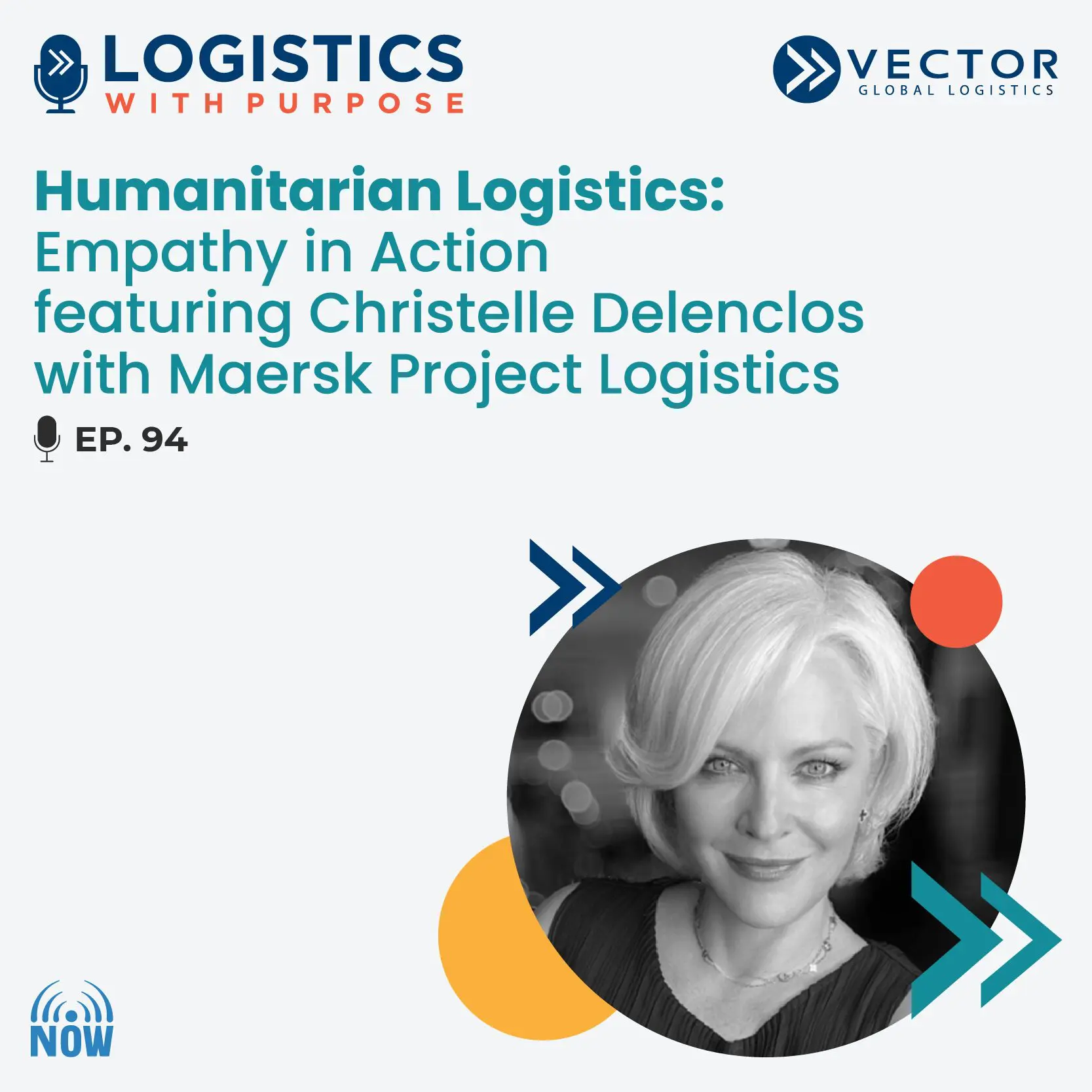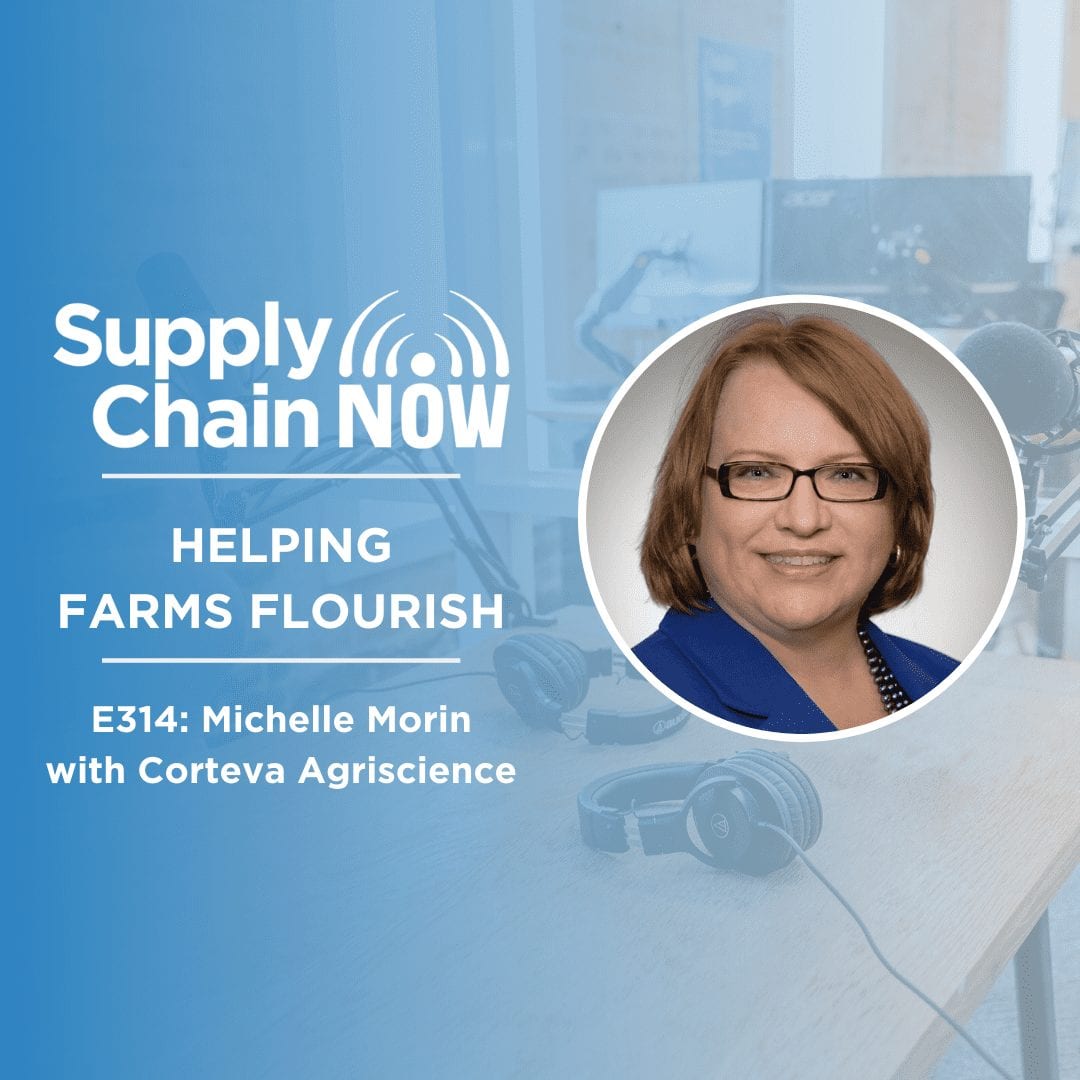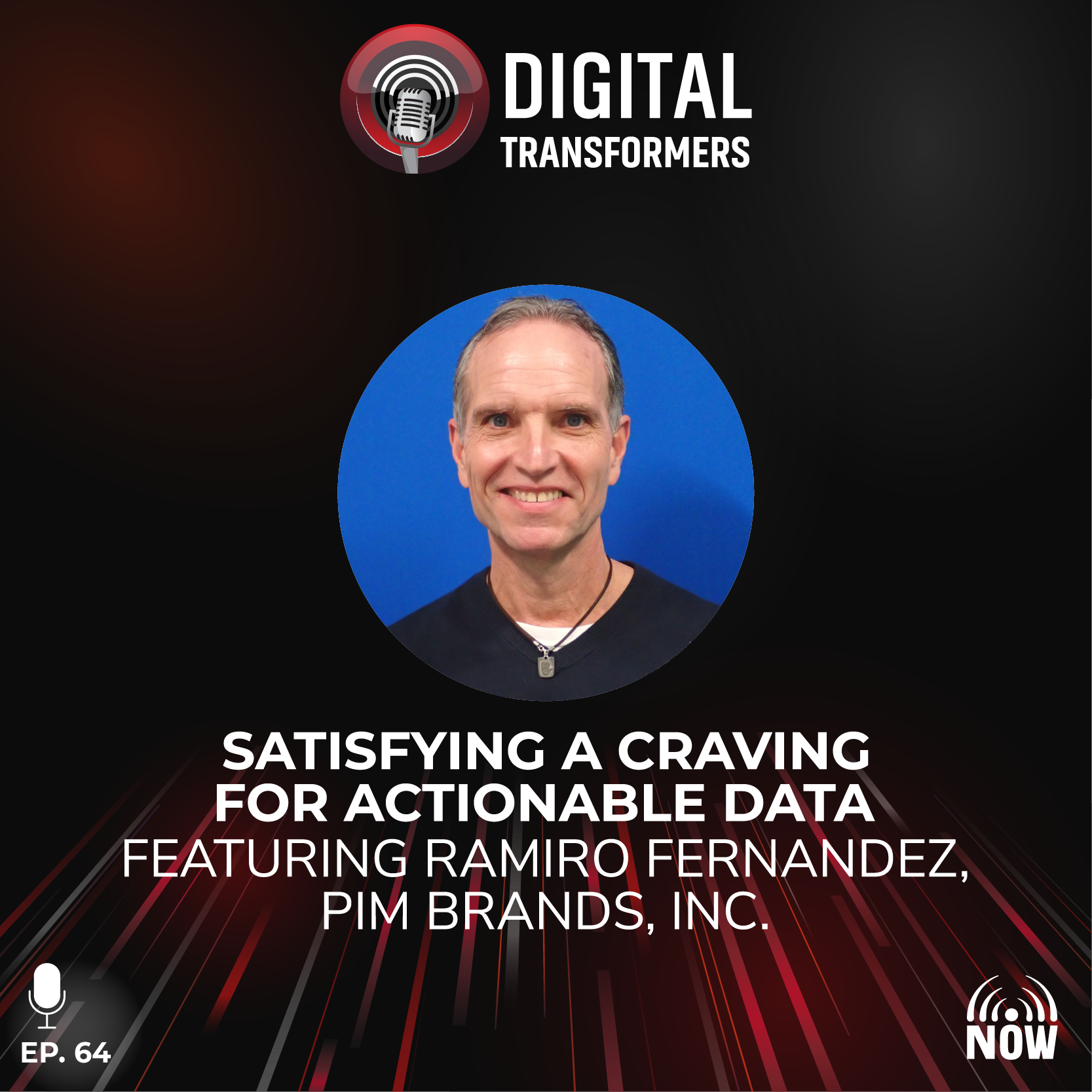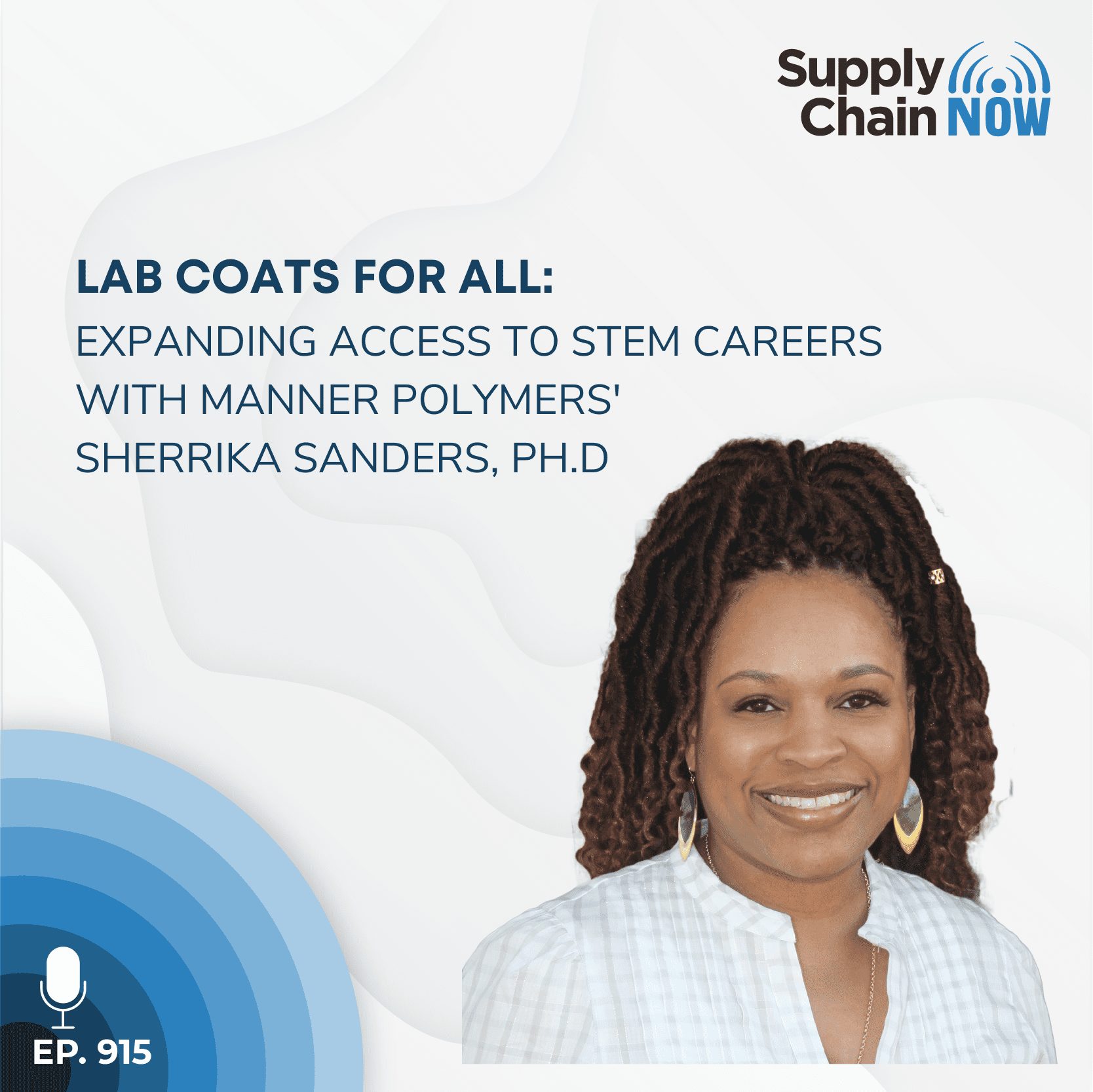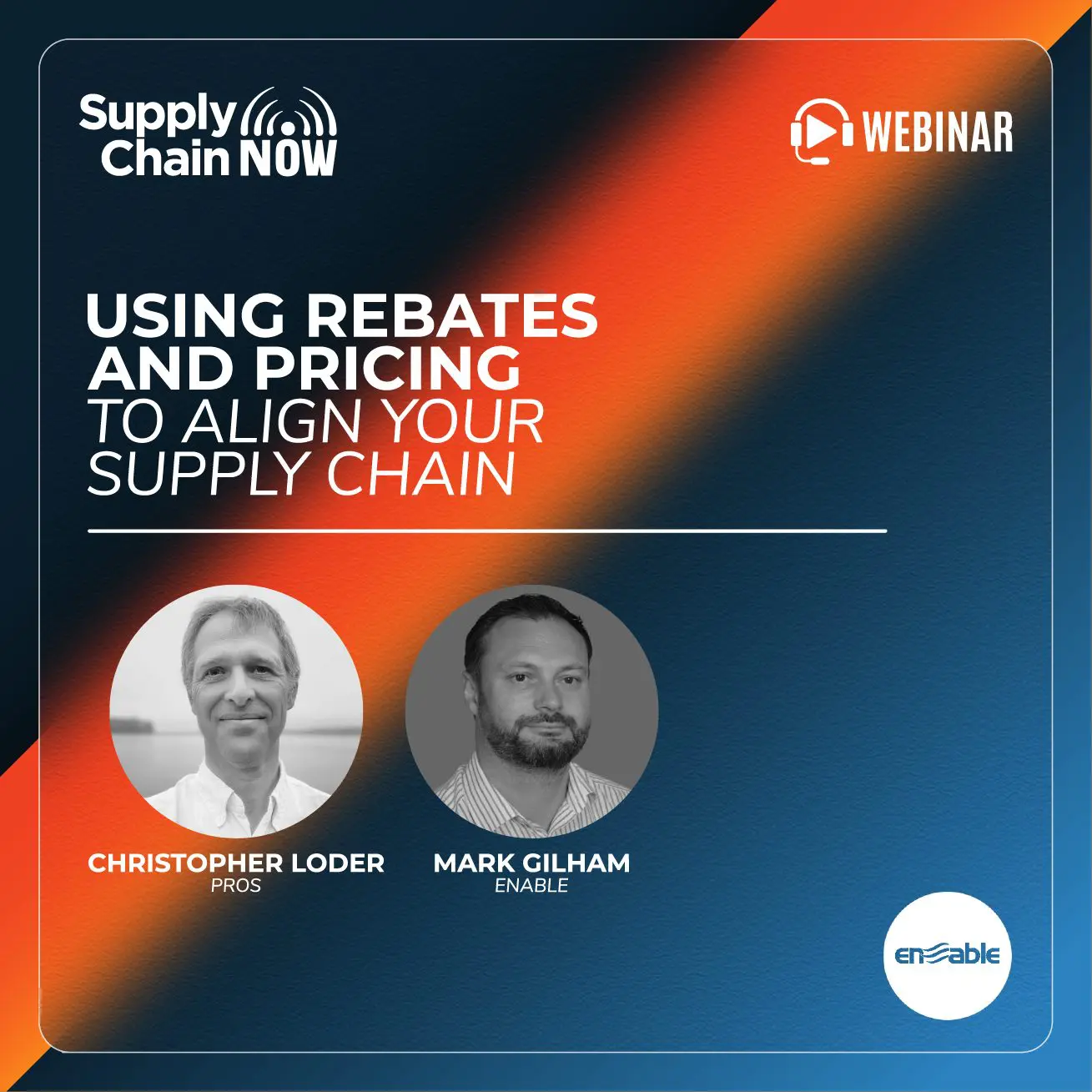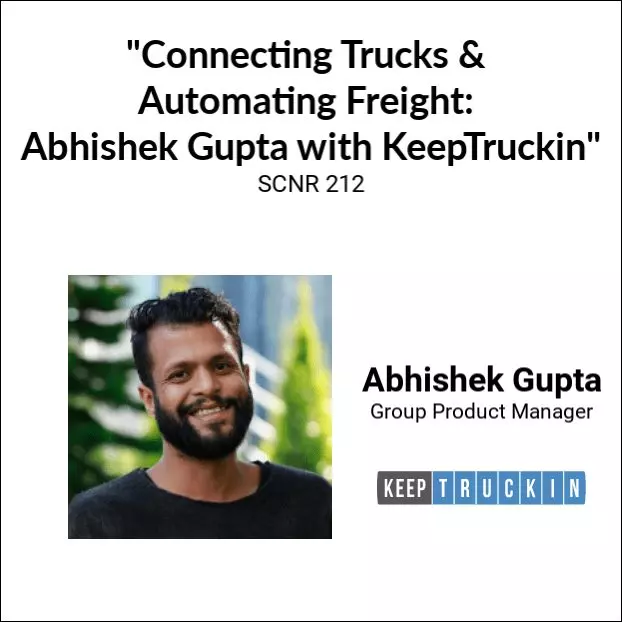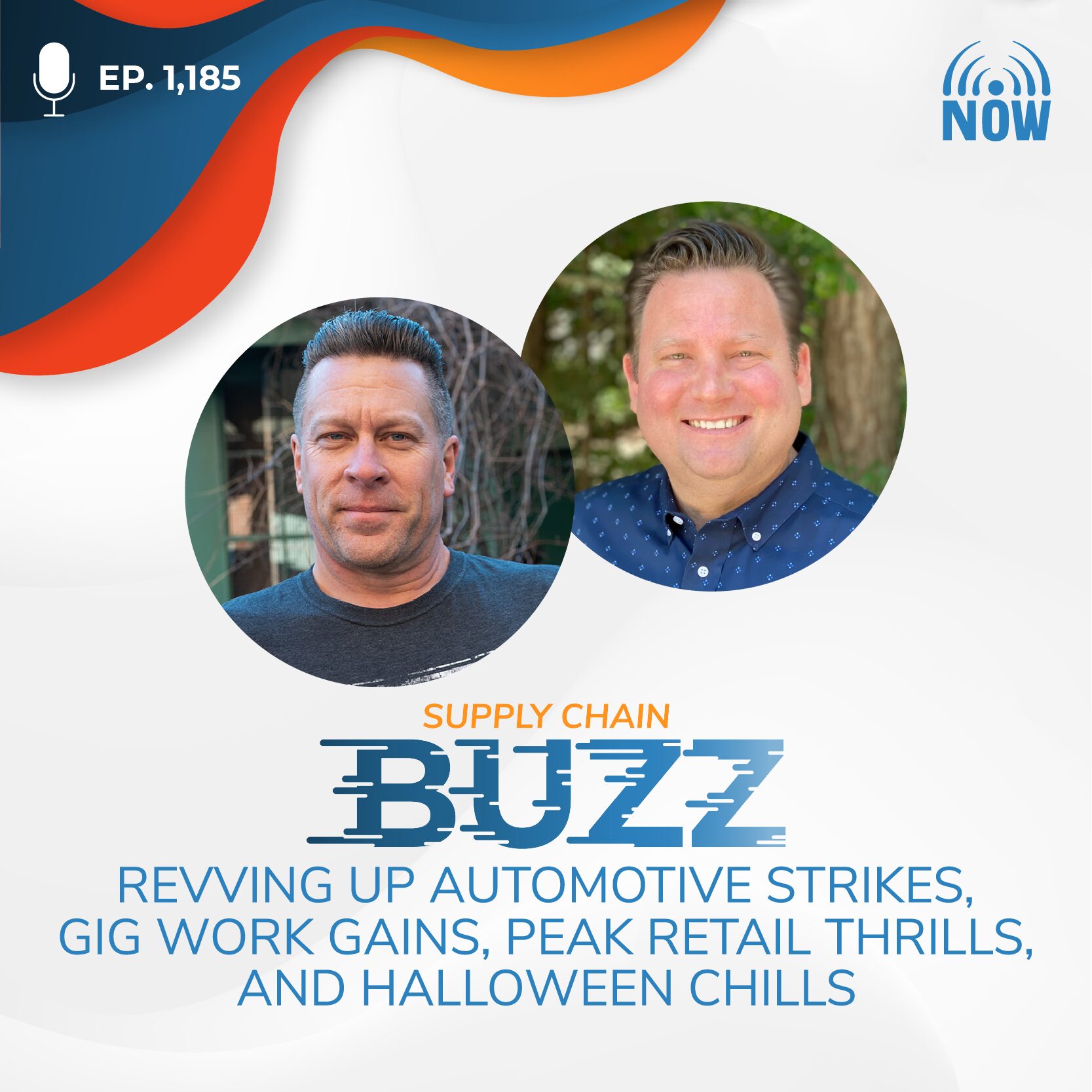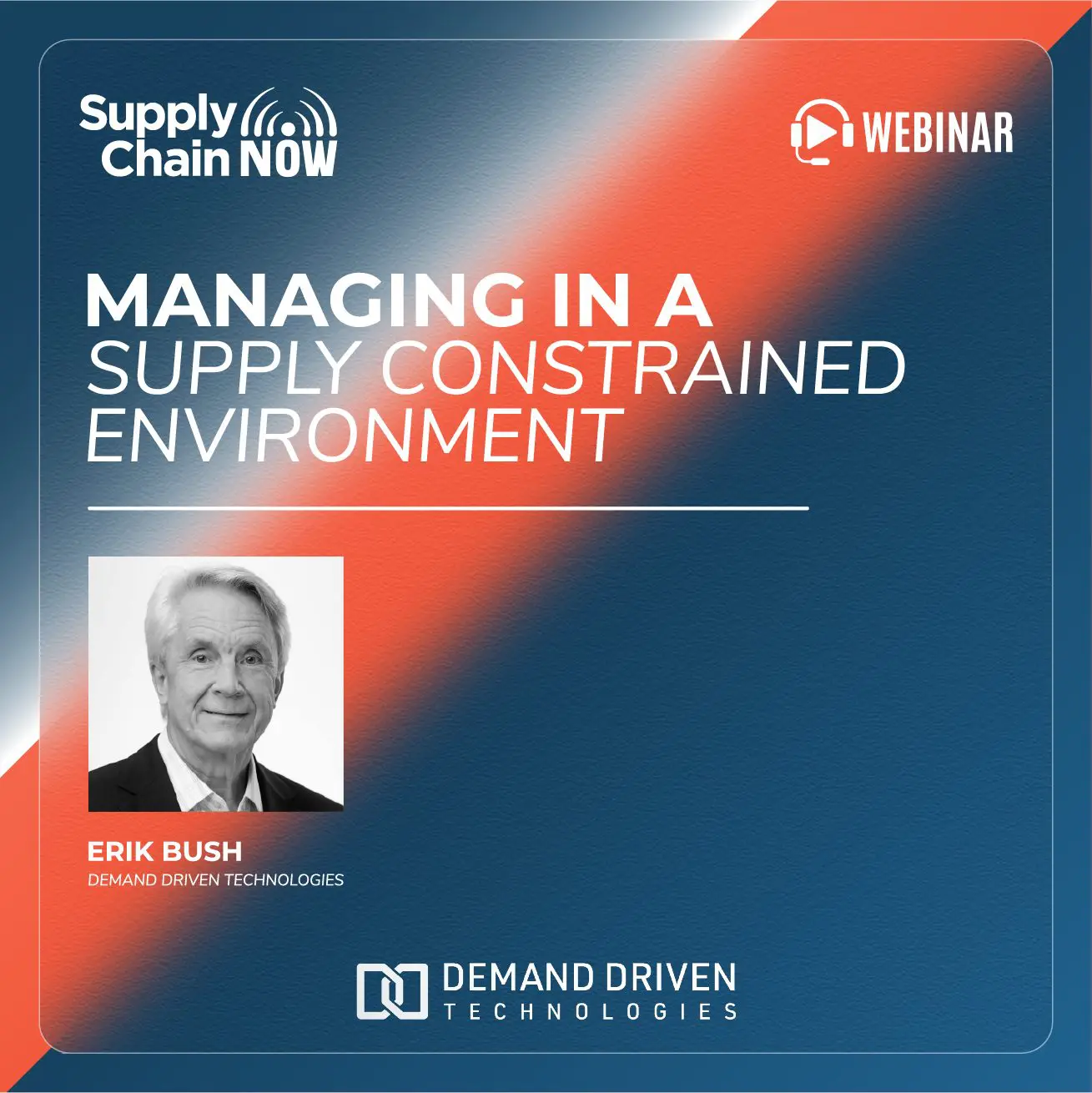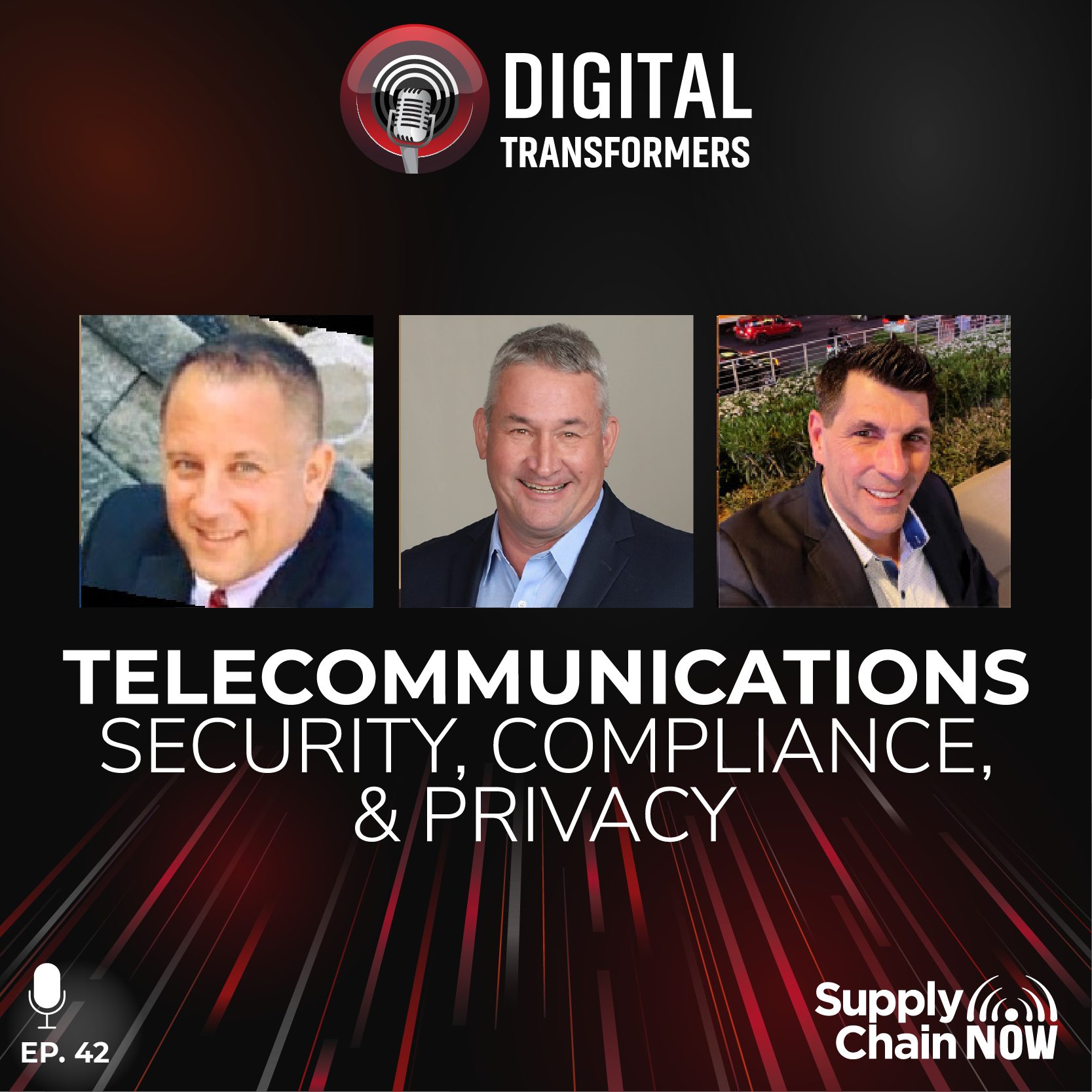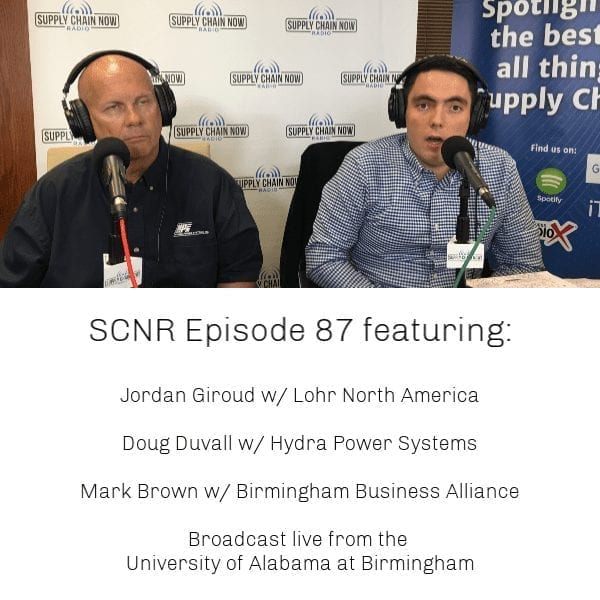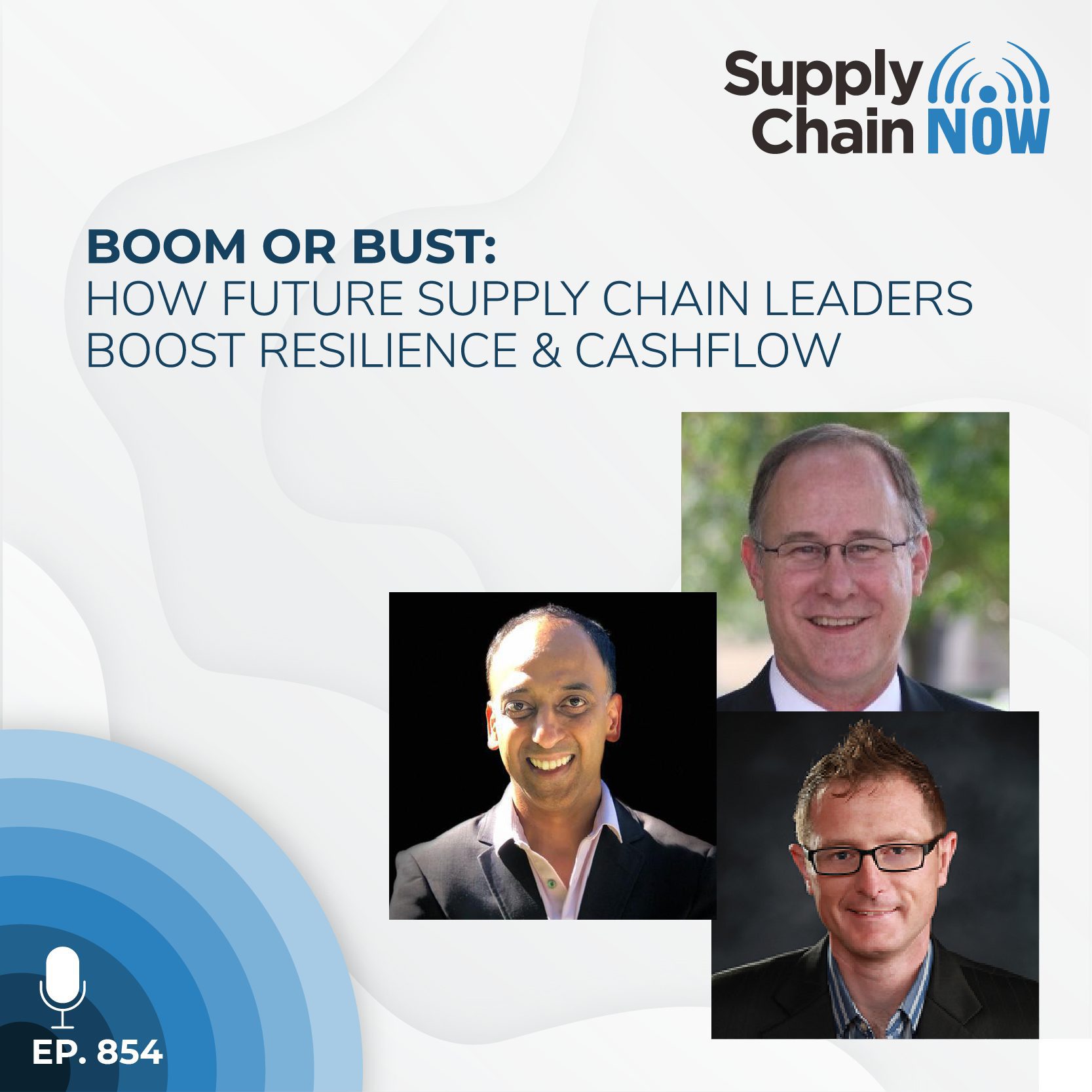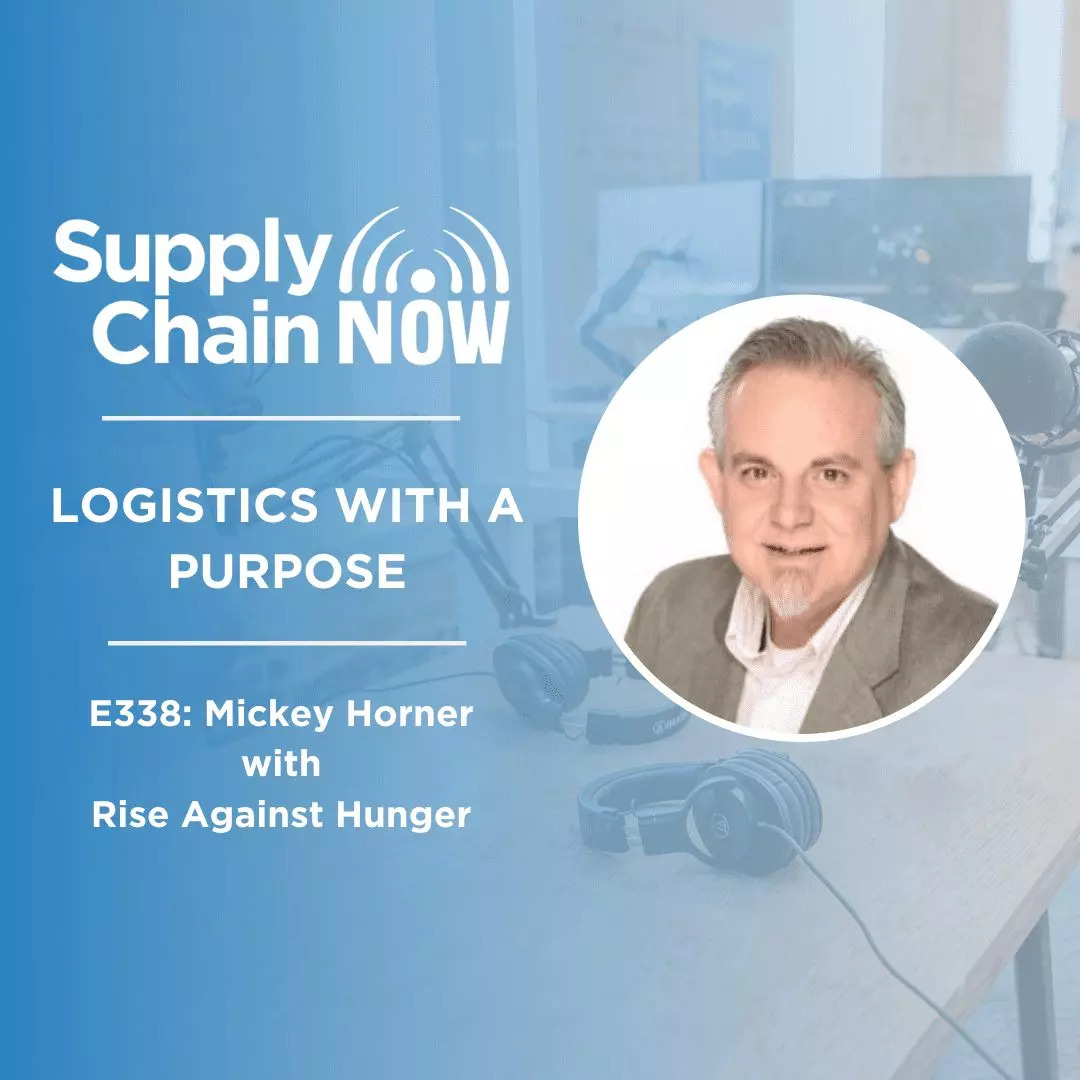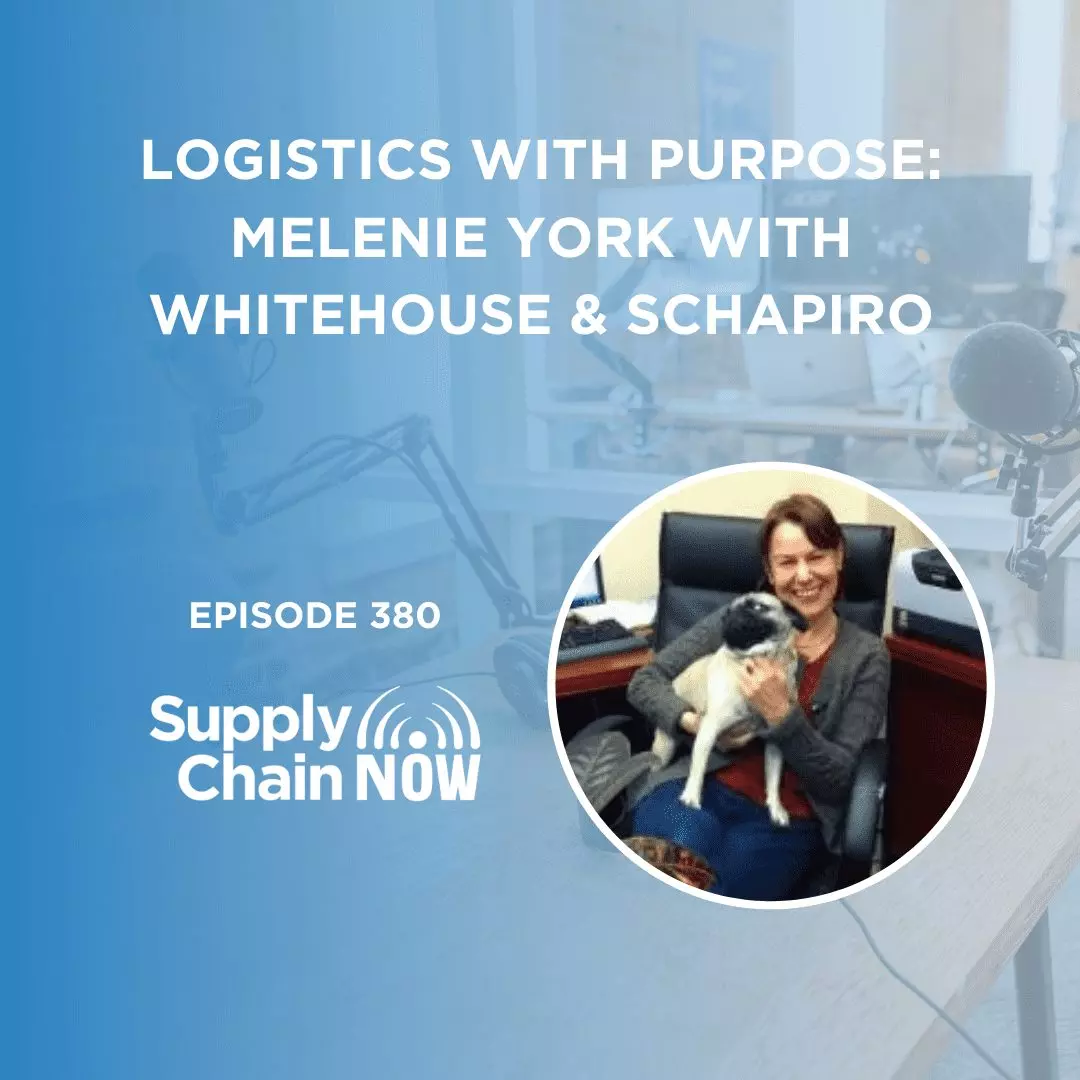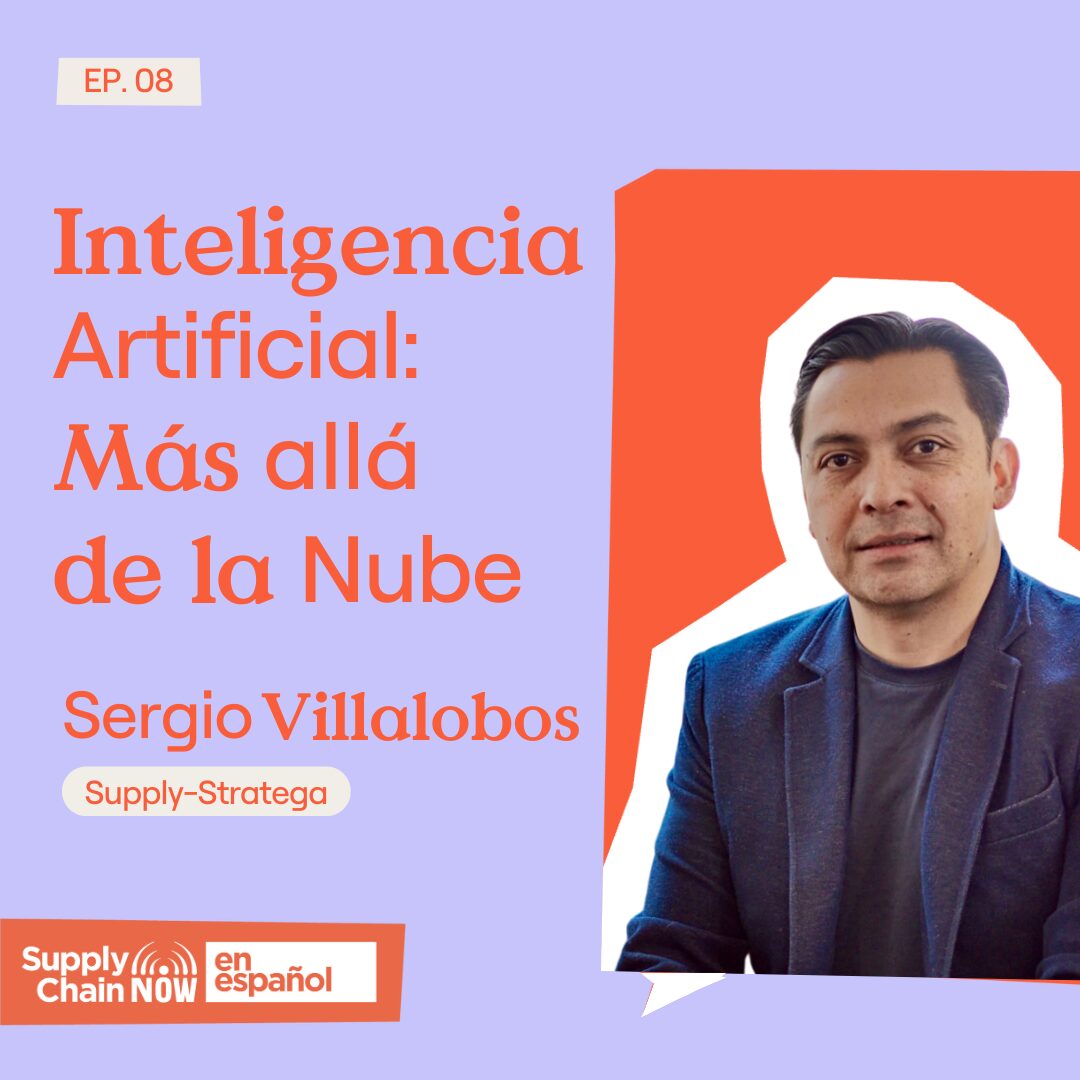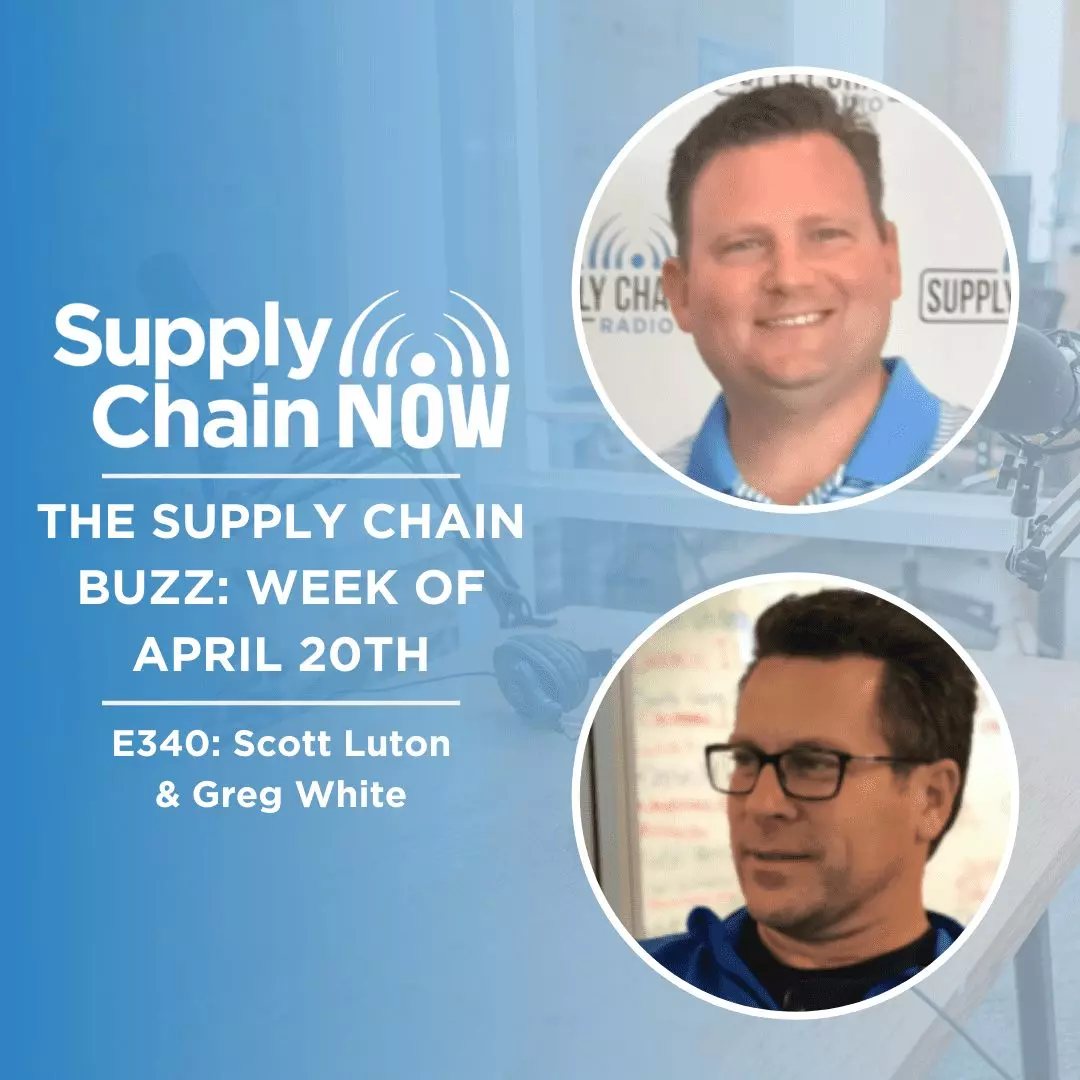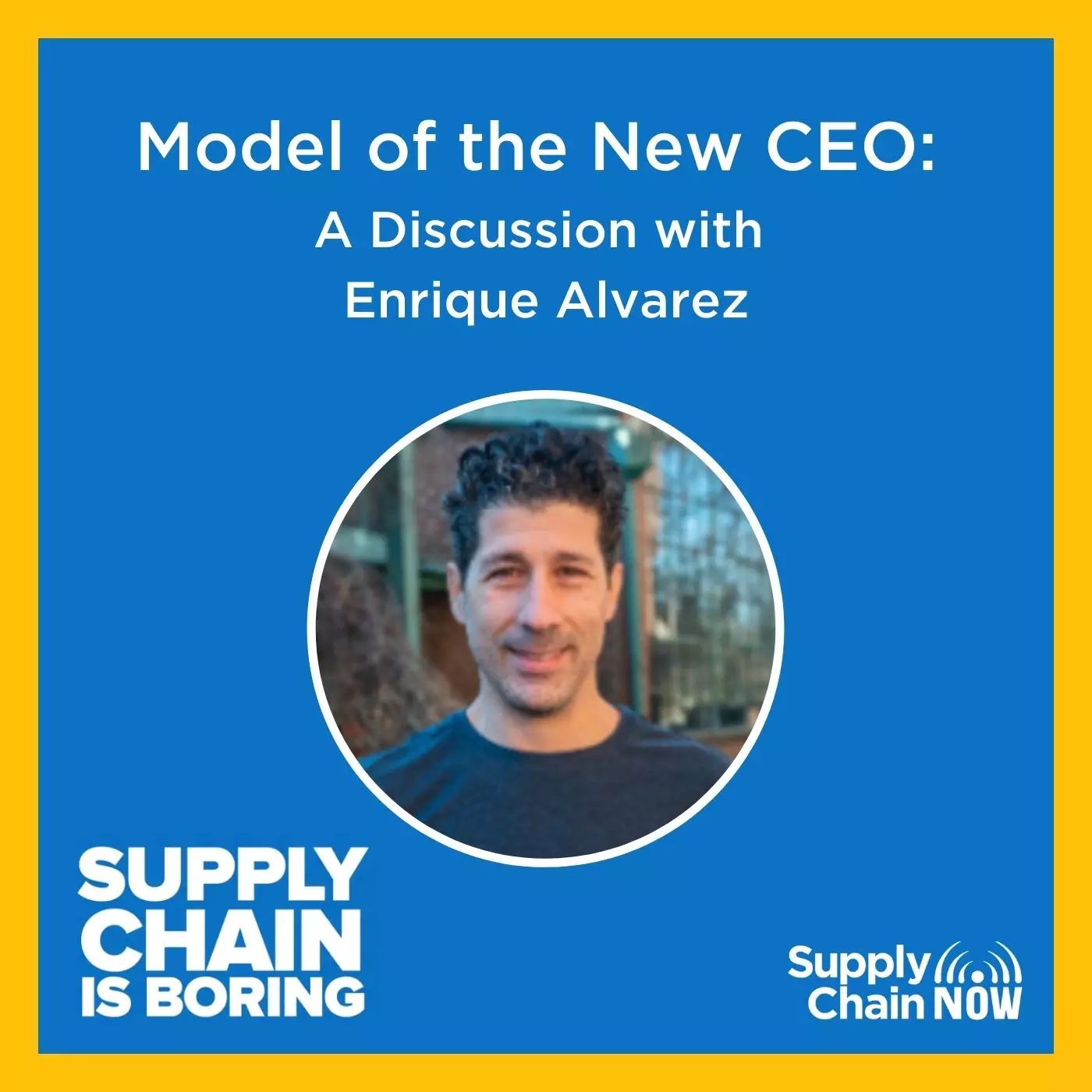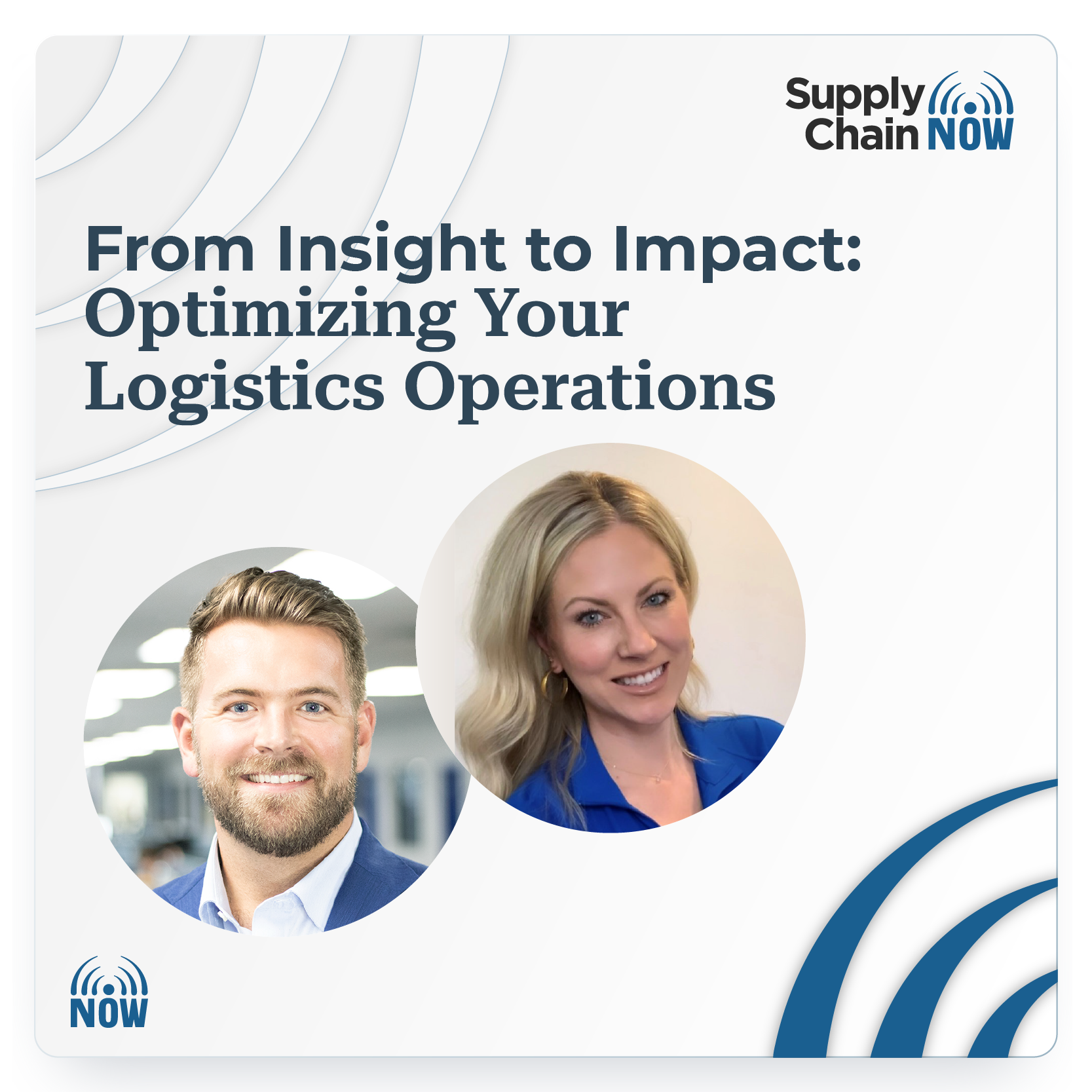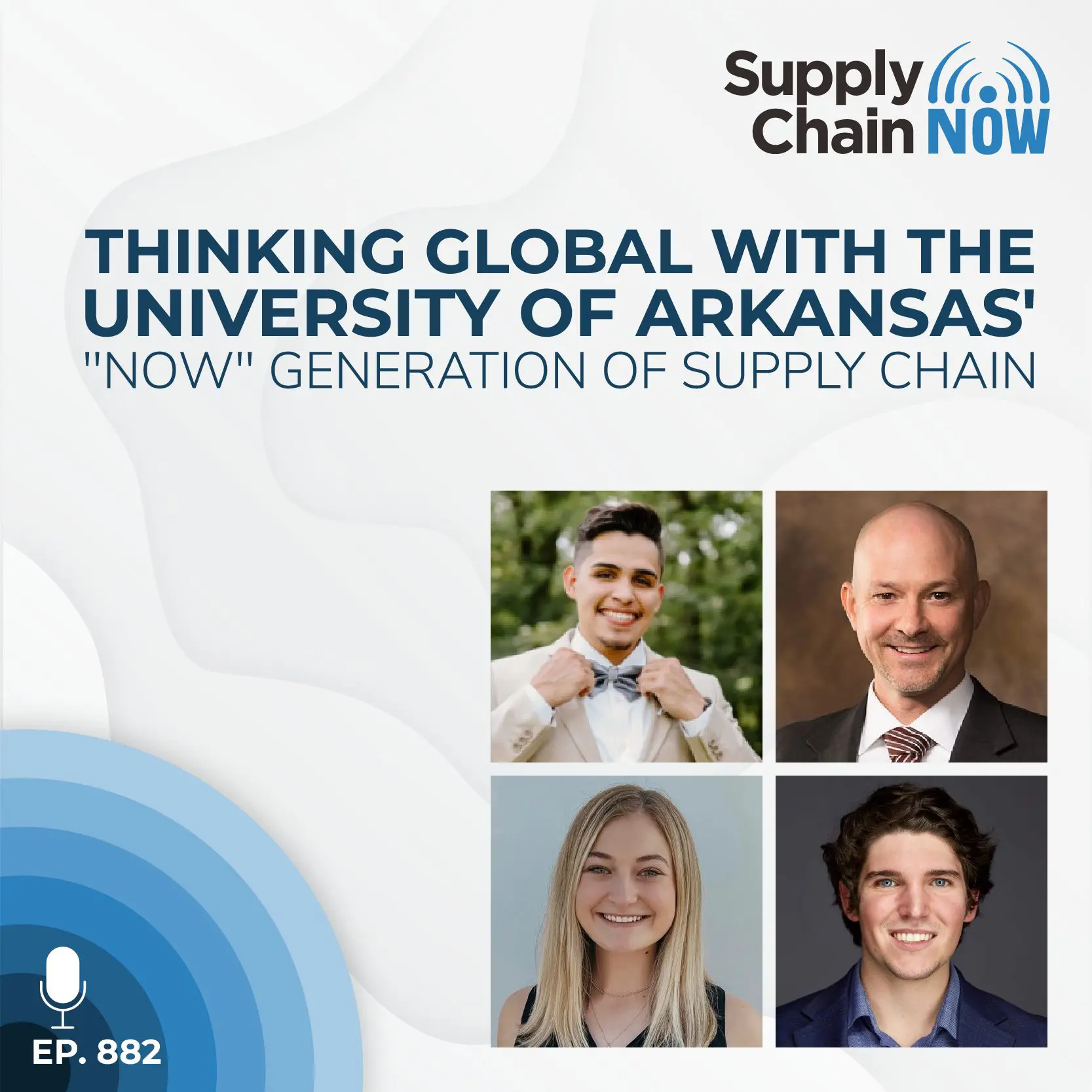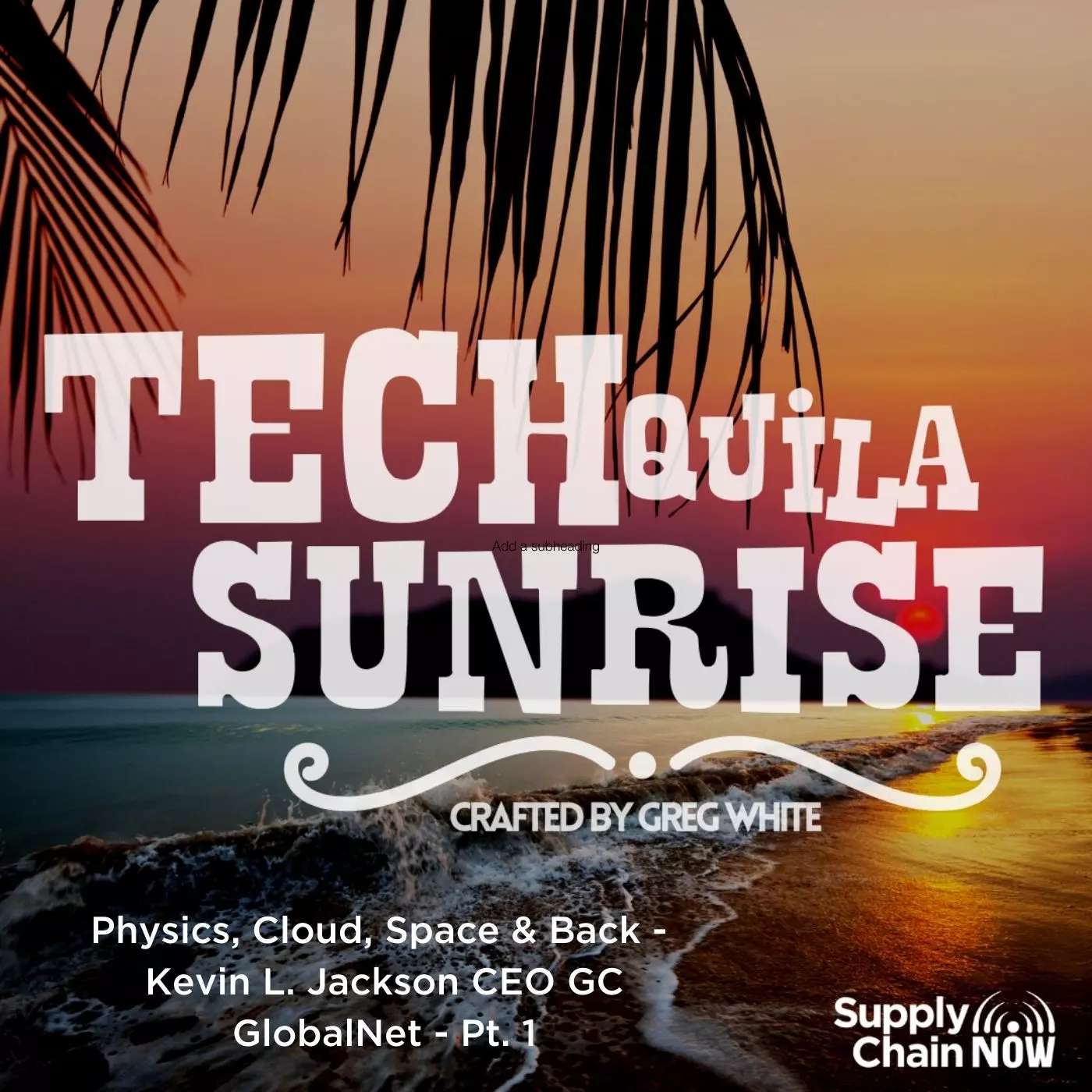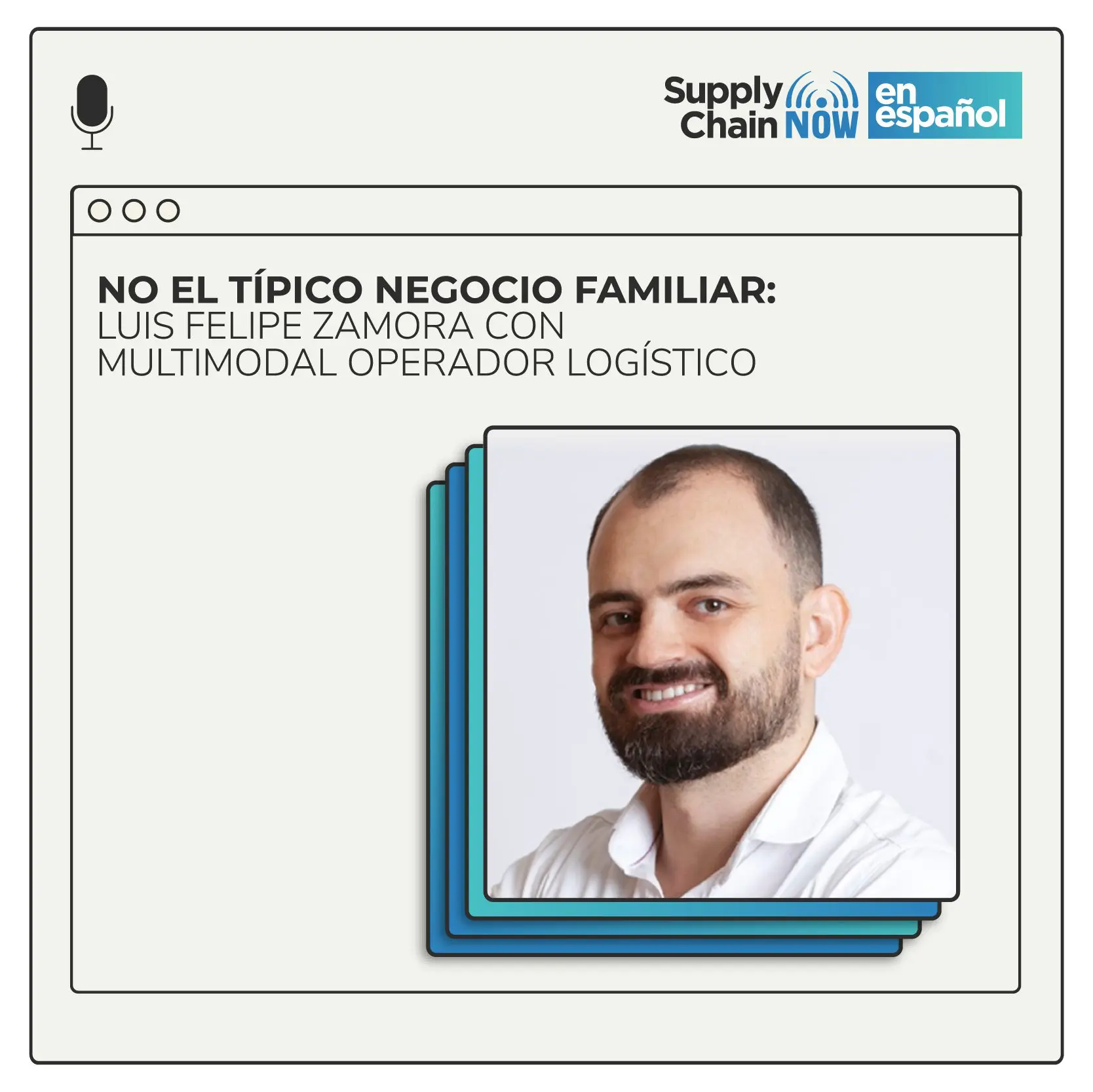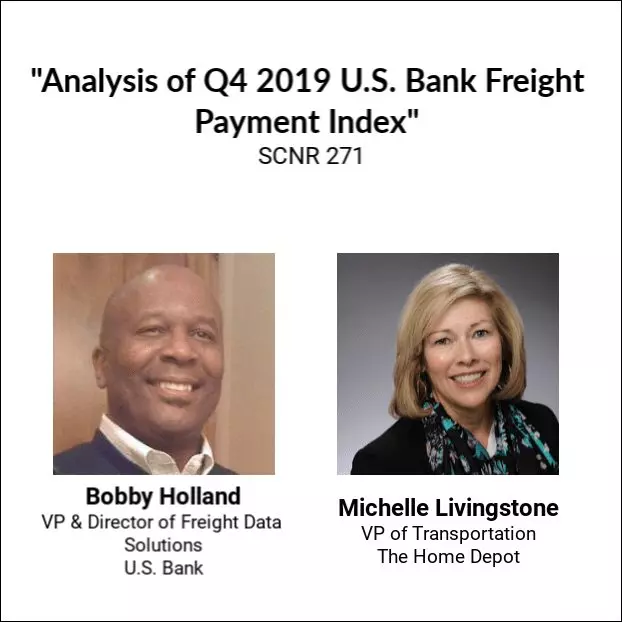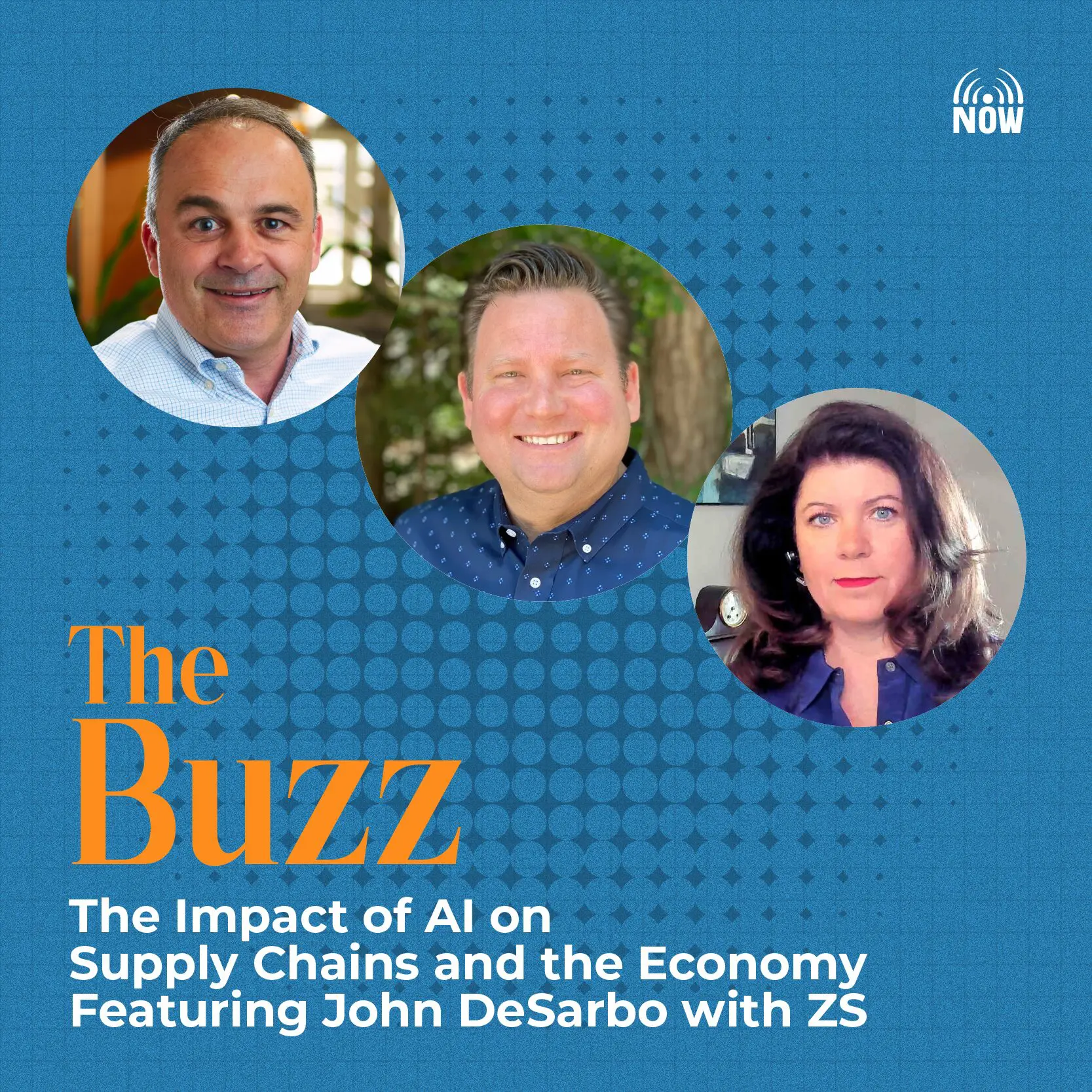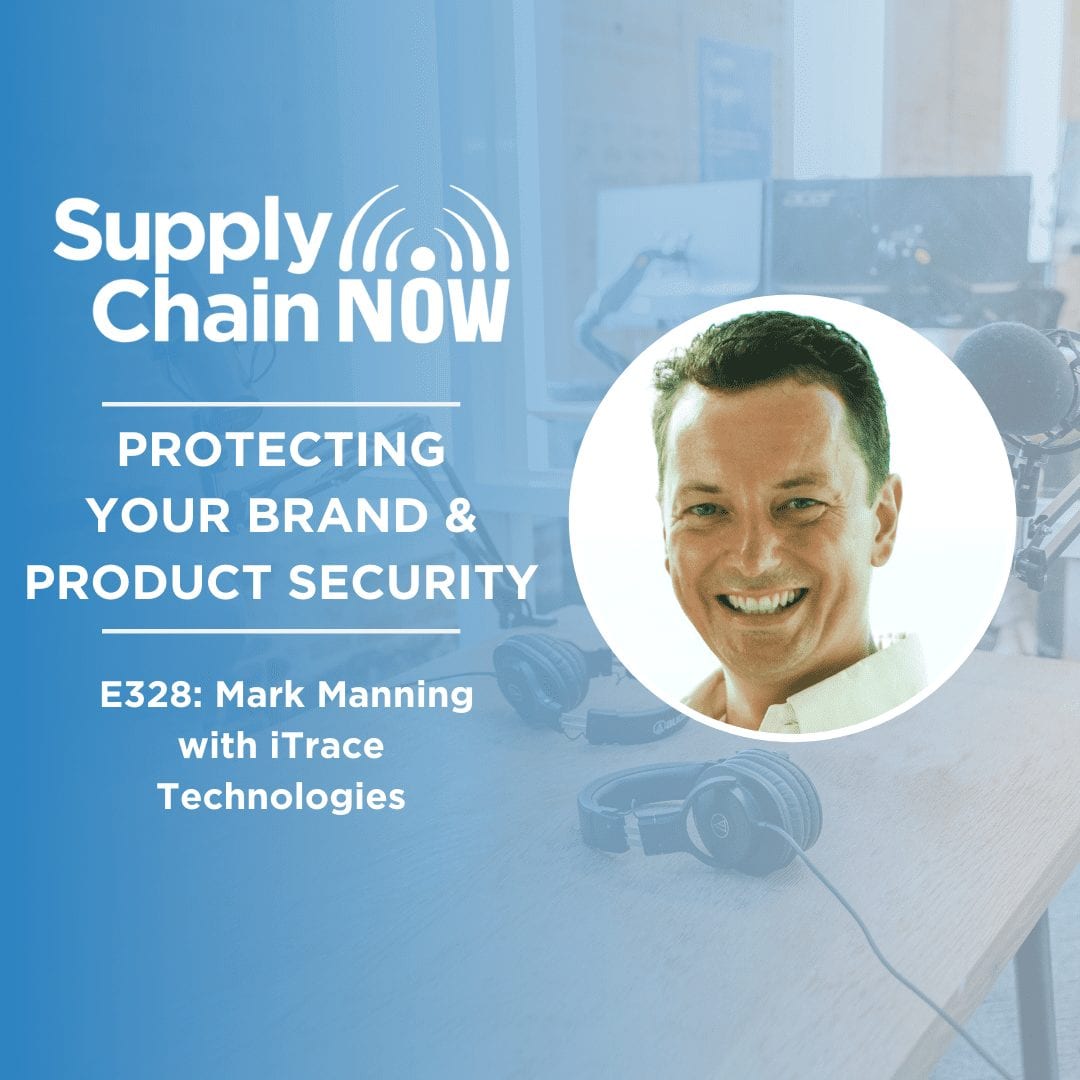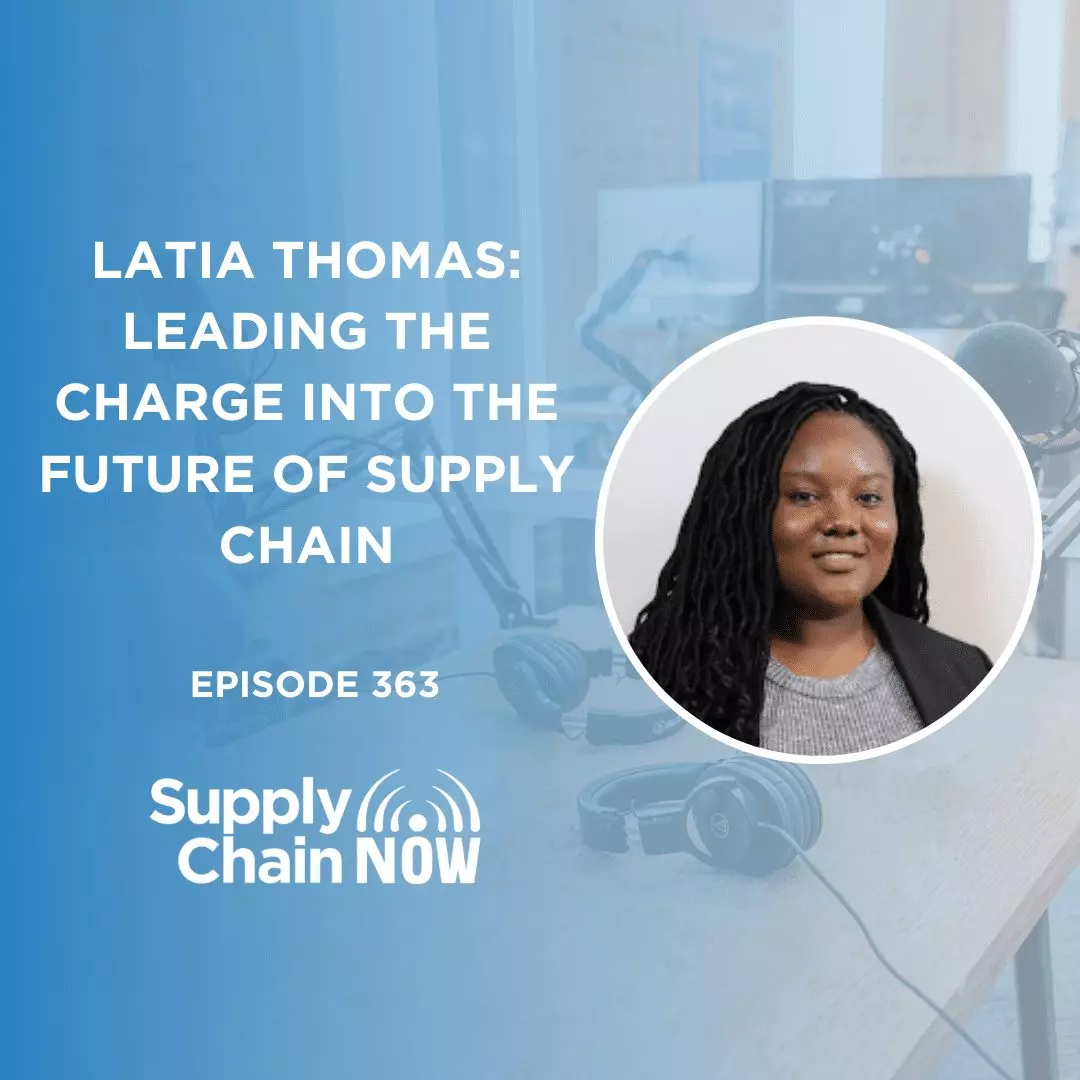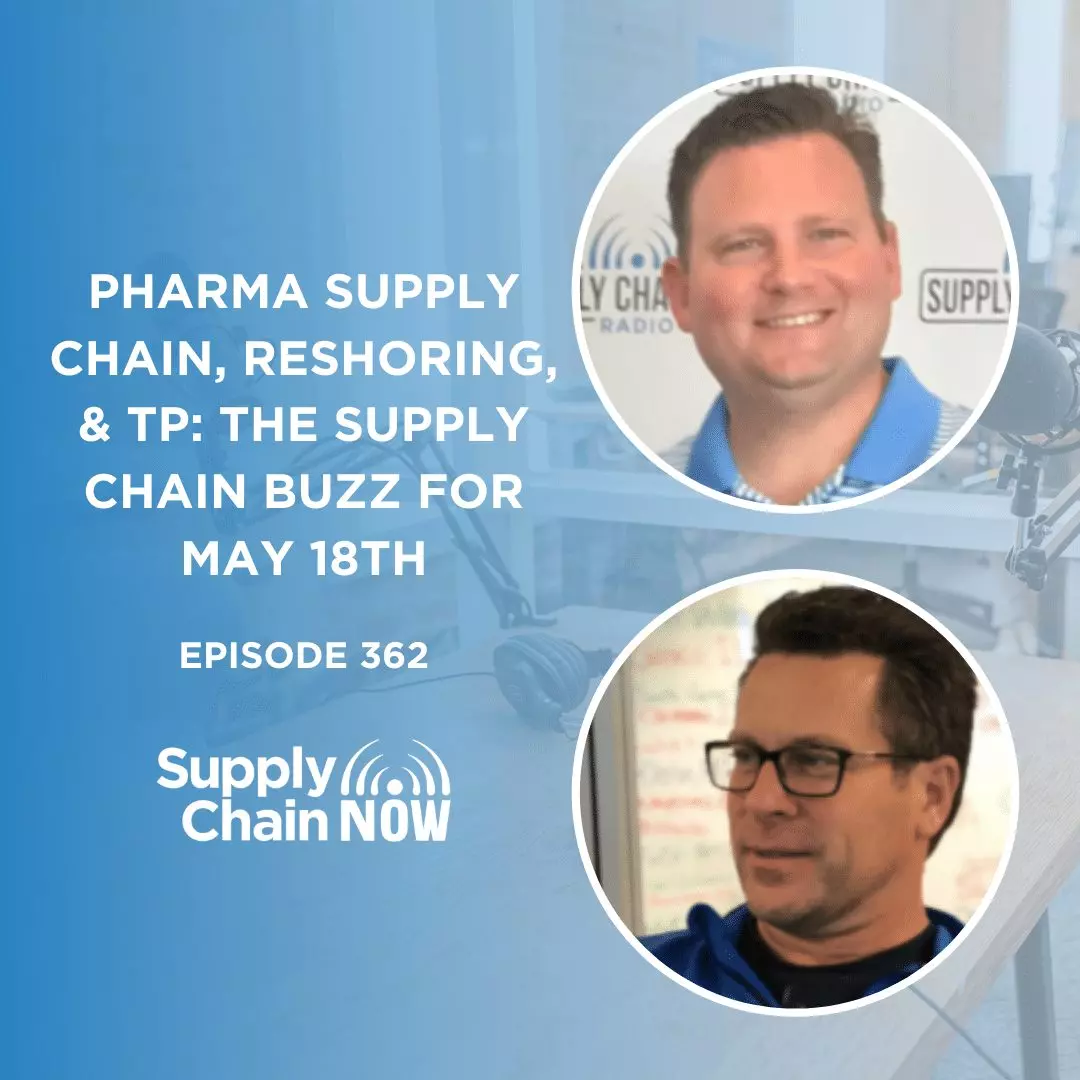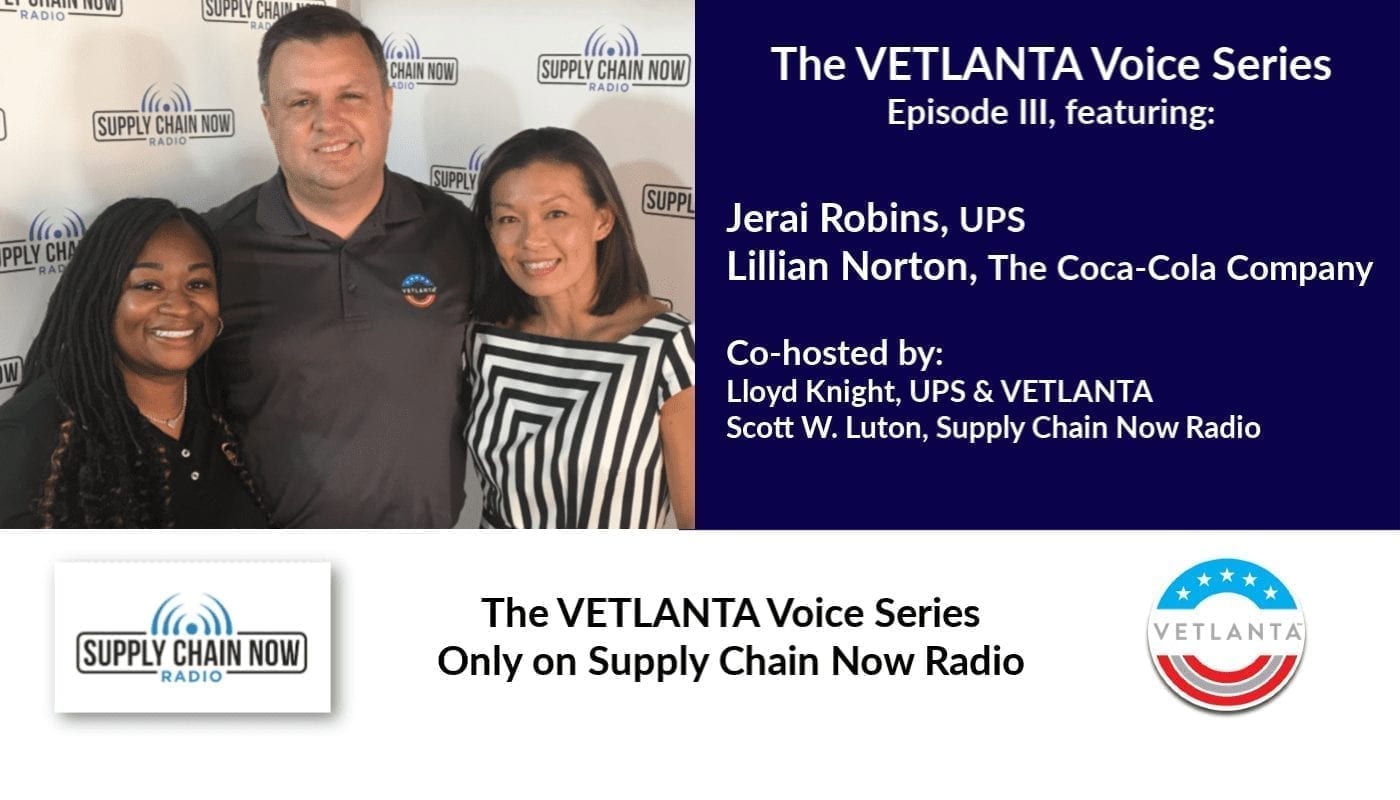
Episode Summary
In this powerful and inspirational episode of Supply Chain Now Radio’s exclusive series, VETLANTA Voice, female veterans Jerai Robins and Lillian Norton share their experience in the US Army, the challenges of being a female service member, their transition stories, their careers since leaving the Army, and the ways in which they strive to give back to the veteran community. Truly an episode not to be missed.
Episode Transcript
[00:00:00] It’s time for Supply Chain Now Radio Broadcasting live from the Supply chain capital of the country. Atlanta, Georgia. Supply chain. Now radio spotlights the best in all things supply chain the people, the technologies, the best practices and the critical issues of the day. And now here are your hosts.
[00:00:29] All right. Good afternoon, Scott Luton here with you. Lu Supply Chain Now Radio. Welcome back to the show. Today’s show is the latest installment of It’s Not So Much a new series here anymore, Lloyd, an ongoing series here on Supply Chain Now Radio, one that we’re calling the Vetlanta Voice series. So on this show, we’re gonna be focusing on the veteran community from a supply chain perspective, of course. And it’s all about really serving this incredible valuable community that we all are passion about. We partner with Vetlanta, an outstanding organization based right here in Atlanta that’s been doing incredible work for our veterans. We’re gonna learn more about Vetlanta in just a moment. This particular episode of the Vetlanta Voice podcast is tied in with the upcoming Vetlanta Summit, which is focused on women veterans. One quick programming note. Like all of our series on Supply Chain Now Radio, you can find our replays on a variety of channels Apple, podcasts, SoundCloud, Spotify, wherever else you find your podcasts. As always, will have you subscribe so you don’t miss anything. Supply Chain Now Radio is also brought to you by a variety of sponsors, including the Effective syndicate Talentstream Verusen in Apex, Atlanta and several leading organizations. So be sure to check out the show notes to learn more about our valuable sponsors. Okay, so let’s welcome in my co-host once again here only Vetlanta Voice podcast. Lord Knight, director of International Air Freight LMG at U.P.S. Global Forwarding. Lord is also a co-founder and president of Vetlanta Radio Lloyd.
[00:01:56] Great Scott. It’s wonderful to be back for our third episode and here at King Plow Arts Center in Atlanta.
[00:02:01] Absolutely. It sure is. This has been not only fun to do, but the content and the insights and the perspective has been really special, too. Yeah, absolutely. You know, we’ve had two great episodes and I’m really pumped for guests. We have today. We are two. So this was good and welcome in our special guests here today. Both are Army veterans go Army. The first hails from the Coca-Cola Company, where she is a senior commercialization manager for the Coca-Cola freestyle, Lillian Norton. Hey, do doing, Lillian.
[00:02:32] I’m doing great. Thanks.
[00:02:34] Great to see you. As we’re sharing in the warm up. One of my favorite beverage devices of all time, the freestyle. I can get my my caffeine free diet, cherry coke whenever my wife lets me have water. But great to have you here. Look forward to kind of picking your brain here shortly. And then also Army veteran and talent acquisition senior recruiter at U.P.S., Jerry Robbins. How are you doing, Jerry?
[00:03:00] I am doing great. How are you? How are you doing?
[00:03:01] We’re doing fantastic. And we I think we were able to catch up a little bit at the last super summit. Right. Which Mercedes Benz Stadium hosted with our buddy Talia Freeman? Yeah. Right. Yeah. We had was the largest summit yet. Almost a thousand people. Thousand people crazy. And a thousand people that are passionate about this community. That was really special. So good to see you here. Nice to see you as well. And you’ve got an interesting story you’re gonna be sharing as well, so. All right. So, Lloyd, we’re going to dive right in. We’ve got a lot of great things to talk about. So, Lily, let’s start with you. You are a graduate of the United States Military Academy at West Point, which is very impressive. So tell our listeners about the stringent selection process for the academy.
[00:03:51] Sure. Though back in the day, the overall process entails, you know, applying with a paper application back in the day. So now it through the Internet. But you apply for the actual admission and then you also have to apply for a congressional nomination. So that is mandatory. You cannot get in without the congressional nomination.
[00:04:12] And then after you do those steps, you do a medical, physical, physical fitness test as well as, of course, submitting ACTU S.A.T. scores. So those are kind of all the big components going into it. And of course, just like any other school. Anything that can make you stand out more being a team captain, Notre debate team, whatever, will help you get in, especially with athletics. The coaches have some power within the school to say, hey, this is an athlete that we want to quote unquote. The term they used to use was chip chip in to give them a little more fun in the admissions process.
[00:04:53] So I bet you got really good grades in high school, didn’t you? OK. But what I heard there is, as you might would expect, big emphasis placed on leadership. Yes. Right.
[00:05:06] Well, that takes us to the next question. Lillian, can you talk a little bit about some of the leadership and management skills that you developed while at the academy and how they’ve been beneficial to you in corporate America?
[00:05:17] Sure. So at a very basic level, one of the things that West Point really prepared you for was getting up in front of others and presenting. So if you think about a high school kid going through school, there is at least back in the day, there weren’t very many opportunities to get up and present like you’ve studied, you took your tests and those were your grades. But it was very little like actually getting up and presenting out your findings or your project. And so West Point really force that in all the classes there was what you called take boards. And so you’d get up from your seats, you physically walk to the sides of the rooms that they were all chalkboard and you would answer whatever question was asked on the tuck board. And then everyone would turn around and the instructor would pick somebody to say, OK, take us through your thinking. And so it really required you to practice it every single day. Being able to go through the work, take people through your thinking process and lead them to the final answer. So of course, that is applicable like they were training us for the army, but that’s absolutely applicable for the corporate environment. Any any civilian job, really? Mm hmm. So that was, you know, one key thing and then purposely overwhelming you with with so much that you cannot even begin to manage. All of it really teaches you how to properly prioritize not only your time, but in the future. You learn what’s important for your team as well.
[00:06:45] Yeah, there’s a lot in there are public speaking, building teams, time management.
[00:06:49] Yeah. Yeah. And one last thing, as you mentioned there is is the overwhelm you because that’s like a critical test, especially in this age of global business where, you know, we constantly are fighting fires. I mean. Well, there’s always something to do, right? Yeah. And to see how people react when they get dumped on by more than they can. Right. Most people can handle it. That’s a what an incredible test.
[00:07:16] Yeah. I would say that one of the big things I gain from West Point was being pushed to my absolute mental, physical, emotional limits like most people don’t ever get to that point. So, you know, it’s powerful to understand your own like baking queens. So now when you know it, it’s really empowering.
[00:07:37] Well, okay. So let’s talk about your career in the Army you served and in a multitude of positions, a lot of different locations. And I’m not going to list a couple of these. So battalion leader in Hawaii. I’m very jealous of that. At least that location has a part. Tough job, tactical human intelligence team leader in Bosnia, battalion intelligence officer back in Hawaii, and then division intelligence battle captain in Iraq, man. So share with us your most challenging assignment and some of those critical lessons learned that you believe make you an absolute better leader today.
[00:08:16] I’ll share a few. So the first one on one talk about is really challenging because I was so Greene. I was a brand new second lieutenant in charge of a platoon. I had six very senior weren’t officers under me. So right away, like, I’m feeling really overwhelmed by that fact. And they were always kind of pushing the limits. And I had one particular warrant officer who really wanted to see where my limits are with him. So one of my lessons learned, learned involves him constantly refusing to show up for four Petey in the morning. So after, you know, I asked nicely the first few times and then, you know, secondly, you know, like she’s like a 30 something year old worn off.
[00:09:07] Look, how can I make him show up?
[00:09:10] So finally, after about three or four times, I sat him down and we did a formal counselling. And that was kind of the point where he was like, I was just seeing how long it would take you to actually do that.
[00:09:24] Right.
[00:09:25] So that was my big lesson learned is, you know, if you know you’re doing the right thing, don’t be afraid to question such a great point. Question authority, even if it’s not like I outranked him technically, but they had the experience behind them. And so that goes the same in the corporate world as well. If you’ve got someone above you that you don’t agree with. Don’t don’t hesitate to voice your concerns.
[00:09:50] And then the second lesson was probably when I was an intelligence battle captain in Iraq. I was chosen to be the intelligence trainer for the Iraqi army. So think about that for a sec. The Iraqi army, all male. And in that culture, women are not considered equal, much below equal. And so in my mind, I was thinking, how am I going to go about this? I need to go in and train them like they don’t even see me really as a person. But, you know, can’t hide that I’m female. So women started really small, like we were trying to set up like a basic intelligence talk. And, you know, it was small tasks like teaching them how to set up the computer, how to read the maps, etc. All those basic tasks and slowly, day by day. It took a lot of time, but they started to to give me some respect. And it’s through, you know, showing that, you know, what you’re talking about and showing your expertise. And ultimately, it led to a training scenario that was ultimately to get them approved to take over a sector in Baghdad. So if they pass, then, you know, American troops can start to pull back. And so the intel portion was something that I scripted, like activities like, oh, the weapons cache I was found here or this person was captured. And I’m provided bits of intel. So I fed them these bits of intel. And ultimately they were set to piece together a big picture of the battlefield for them and take action. So it was great that they did ultimately get there. So I was really proud of them for that. And then we ultimately were able to, you know, pull pull out of sector.
[00:11:46] So really interesting. Wow. That is such a leadership simulator, right? That is a base. You can’t repeat that in corporate America.
[00:11:54] No, I’m still wrap my head around the you know, it’s one thing to go into an organizational culture and you got to it figured out and kind of, you know, find your path. But you’re talking about a different part of the world in the culture there. And you’ve got you’ve got a mission and it’s going to happen. And so, you know, really leaning in and torpedoes be damned. You know, this is what we’re gonna do. And then the other thing that really stood out and what you shared there. Lillian, is your your tactics. You know, incremental improvement is still improvement. Right. You get large, very successful organizations that aren’t looking for 100 percent gains. It’s just year over year incremental. And then then after a couple of years or a couple months, you really move the needle. So. So developing a strategy for what’s going to work based on the constraints, based on the environment. I mean, that that was I guess you just testimony to how West Point prepared you to get the mission done regardless. Right. Correct. Yeah, absolutely.
[00:12:59] So even after the five years you decided to leave the army. Mm hmm. So, yeah, Scott mentioned earlier about how powerful a transition story is. So let’s hear your transition story. How’d you end up in the position? You’re at Coca-Cola today.
[00:13:15] So in leaving your army, I didn’t exactly know what I wanted to do, but I did know I wanted to go back to grad school and get my master’s in international relations.
[00:13:25] Now, beyond that, I didn’t know, but it gave me two extra years to try and figure it out. So, of course, one’s path in life is is up to chance a lot of the time. And I was living in Taiwan trying to learn Mandarin because I know from my grad school program I had to test out proficiently in Mandarin and I was nowhere near that. So I was there. And then I came across an article about Wal-Mart going into China. And this is 2006. And I was so interested in this. This was like culture. Cultural translation of a brand for it from the U.S. into China and all the things they had to consider and change to do to be successful. And in this article, someone called a brand manager was quoted, I had never heard of such a thing. So Daryl. So I started researching it and come to find out brand management is marketing. And so I suddenly had a new interest in pursuing something in marketing and specifically brand management. So of course I googled that as well.
[00:14:29] Who are the best brand managers? That’s literally how it started.
[00:14:34] And that led me to Procter and Gamble. And so I started researching Procter and Gamble, seeing like what their hiring practices are. And I found out that they recruit at the Service Academy career conferences that are around there several per year in various cities across the U.S.. And so I decided I was going to go to one of those and I was like two years out from being hired. So I went to one in D.C., made contact with them. And what was so great was the Proctor and Gamble recruiting team was just tight, like they. They had everything really nailed down to a point where, like, they would actually keep up with you over the course of the two years until you were ready to graduate. And so I thought that was amazing, because a lot of times people get. Yeah. People get lost in the shuffle. They don’t follow up with you, etc. but come out of school. They had a role pinpointed for me. That, of course, I had to interview for. But by then I had prepared myself. Like going through career services at the school was was hugely helpful. I had no idea how to interview. I’ve never heard of like this situational interview. The star format. None of it. My first mock interview was like the biggest embarrassment, Mike.
[00:15:58] I laughed with my tail between my legs. I’m like, I can’t do jerai. The H.R. is nodding.
[00:16:05] She knows exactly what we’re talking about here.
[00:16:07] Yeah. But once you get the format down and you practice it and you mock interview with people, then you get really good at it. Well, some of the things that I learned in that process that are super critical is learning how to transfer your skills. So if you think about it, military intelligence and marketing, what do they have in Common Core? Common, you might say? Absolutely nothing. Right. But it was it took the career services and then some mentors that I kind of cold reached out to from West Point, just leaning on a network. You can’t be afraid to just reach out to people you’ve never talked about. Some of them will surprise you in email back. But they helped me transfer those skills. So if you think about military intelligence, it’s about spotting the trends, doing the analysis and making a recommendation to the commander. If you think about marketing, it’s understanding consumer and market trends, doing analysis, doing research and then making a recommendation, which is a marketing plan. So it absolutely fit perfectly, actually. So it’s learning to figure out how you spin your story that can be super powerful. So something is insignificant that you might have done in the military that you might think, oh, well, you remember when the units sponsored an elementary school locally and you would help beautify their campus, whatever. You can spin that into corporate social responsibility like Lu. It’s like that.
[00:17:38] It just depends on how you tell the story. So I got it.
[00:17:44] You got to get creative and you gotta learn to tell a story. And then secondly, my biggest lesson learned was you gotta get comfortable with the pronoun I. It’s no longer we. It is. I did this.
[00:17:57] Great point. It’s Tony. And that’s really uncomfortable military leaders. It is. To undermine the weak culture. Yeah.
[00:18:04] Yeah. We were always taught to defer credit and accept responsibility. And so that humbleness can actually really backfire and hurt you in the corporate world, especially when trying to land a position.
[00:18:16] Yeah, yeah, absolutely.
[00:18:19] So one of the thing is, I think it’s really important on based on your transition story as well as your time in Iraq is doing your homework and researching and putting that plan together. Yes. So many times. We all know, folks, and I’m one of them. You jump right into doo doo doo. But, you know, sometimes you’re shooting in the dark or you’re you’re your you know, you don’t have you that pin point plan together. So, you know, you’re not making nearly as much progress in the right direction. Right. So to speak, to the value of doing your homework and putting in the research time and and you put your plan together.
[00:18:52] Right. So grad school, I view it as time to actually do that. So I took every opportunity I could to do informational interviews. So talking with anyone really like any West Point grad, anyone who would talk to me in an area that I might even be interested in. I would just pick their brains. I would schedule 45 minutes to talk to them and just say, hey, what do you know? What do you like about your job? Would you not like? What do you actually do? A lot of the times, because we just don’t know. Right. On the military. Sure. So I did a lot of informational interviews and that’s what I’m getting out of your comfort zone and just being able to to show that vulnerability and in asking for help, which I think a lot of military folks also have trouble with.
[00:19:38] Yeah, great points. So shifting gears here, I think this is a great Segway. So interestingly enough, Jerai, you were joining the army while Lillian was transitioning from the army. So tell our audience, you know why in 2005 you decide you decided to join the military and why specifically you chose to serve in the army.
[00:19:57] Ok. So I grew up in Norfolk, Virginia, and I’ve been surrounded by the military my entire life. My father served in the Navy and I didn’t want to join the Navy.
[00:20:11] I didn’t like the uniforms thing, honestly.
[00:20:15] I have an aunt who served 26 years in the army and I was her be all you can be, baby. I used to play in all her clothes are her uniforms. And that’s what triggered me to join the military. But in 2005, I lost my mother. She had a brain aneurysm at the age of 44, and she was a nurse at the V.A. hospital for 23 years when she passed away. And so I decided at that she passed away that I wanted to go on an adventure. So I joined the army. I was actually a little old. I was 24. And when I joined. So I was. Yeah, I was.
[00:20:50] Oh, yeah. Probably in your basic training, you’re probably one of the oldest people there. I was one of the oldest. I had a.
[00:20:59] It was another lady there whose son was in. I was an F company, Fox Company. I think he was in Delta Company. Her son both on when basic training at the same exact time. Wow. Yeah, that was interesting.
[00:21:13] So in the army, you worked in the H.R. field and directed a wide area of complex administrative and logistical actions associated with employees returning from Afghanistan and Iraq, which I just can’t imagine doing. That had to be a tough job at times on many fronts. What are some of the lessons that you learned in that position that serve you well today, working for the world’s largest Logistics company.
[00:21:41] Yes. Shot out a U.P.S., my home, my new home.
[00:21:45] But so working in human resources in the army was interesting in itself and deploying the first deployment to Iraq. I was a Peavey, too, and so I was in a small battalion and I was helping move soldiers, the PAX personnel, through theater and back home.
[00:22:11] Same in Afghanistan only. I was a sergeant at that time. So the most complex part of that, I would say is personal accountability. That is the most important part of a 42 alpha human resource specialist job is to make sure every boot is on ground. And to make sure that every person in. Every weapon is accounted for. So. Well, that’s important. Very important.
[00:22:36] I still have nightmares now about losing my weapon.
[00:22:40] Oh, my God. My first started. He used the fact that the core from my scope on my weapon, because I was a private in my weapon, used to dangle in the dirt. And he was an infantry guy. So that our accounts.
[00:22:54] Like, no point but being in deployed. I would say the most difficult part was when we when we lost a soldier in theater. Both deployments. I was the awards person. So I prepare Purple Hearts and I’ve been to caches as well. Once, you know, we had a soldier met back down. So that was the most difficult part.
[00:23:24] Oh, man. So all that makes working at U.P.S. a breeze. Absolutely. So we talked a little bit about your transition story, why you joined the Army. But when you left the army. Tell us a little bit about your transition story, how to go and how do you end up at U.P.S.?
[00:23:41] My transition story is unique in itself. I was stationed in Hawaii to Lily and I was in our 45 sustainment brigade in it when I was in a brigade. I was sexually assaulted and it changed my perception of the military. From that point on. So I was originally supposed to transition from the military in Hawaii and they thought it was a good idea for me to PCOS, to Georgia, to Fort Stewart in maybe a war kind changed my outlook, but it didn’t. So a year after getting to Fort Stewart, I push for it with my transition. I plan to let in. The reason why I plan A is because I had a whole year because I originally was getting out from Hawaii in a transition from what, Hawaii? They treat you as a civilian the entire time versus when you’re at Fort Stewart infantry land. Right. So you’re a soldier every day until you get to DC 214 Lu.
[00:24:39] What was the part? I’m sorry, sir. So when Asian and when I got out.
[00:24:43] I moved to Atlanta and so doing my homework. I found a role at a security company as administrative assistant and I was undervalue there. So I took a contract at a technology company, didn’t work out. But my last day there I got a call from a recruiter for opportunity at U.P.S. and I was a day to kind of change my whole entire life because I didn’t not know I was going to three years later, still be what U.P.S.? But walking into U.P.S. was almost like a duplication of the military. It’s a lot of camaraderie there. And U.P.S., his founder, was a war, war one veteran. So a lot of our policies and procedures are driven off military doctrine. So it felt like I was at home. Quite honestly, it does.
[00:25:35] You know, after 20 years in the Air Force, you know, I retired on a Friday and started with U.P.S. on a Monday. And it was strangely familiar. And the only thing was when I would leave the building at the end of the day. I didn’t have to put a hat on.
[00:25:47] Right. No, no, no, no. You know, trying to salute the flag, you know, trying to beat the flag. But and then when I went in, I worked during our peak season at Pleasant Dale, it was oddly familiar seeing pictures of drivers being dress right dress had having open ring like they do on open rings formation because it would be an expected prior to going out to start day roots for a day. So U.P.S. is like home. And I didn’t retire from the military, but I absolutely plan to retire from U.P.S. because that’s where I’m at.
[00:26:21] Right? I love it. Love it.
[00:26:23] If I could ask, just quit. You clearly have persevered through some some tough things. You lose your mom early than the experience. You had a party coming here. What does that gumption? Is it in your DNA? Is it in your family? Do you get it from different places?
[00:26:41] What what keeps you moving forward? What keeps me moving forward, a is the strength. I serve a powerful guy, and I know that my mother is always with me. But I also empathize a lot with myself and others because I always think of myself in someone else’s shoes. I know how I transitioned out and I had a lot. I did a lot of homework. But I know a lot of people do not do that homework. A lot of people transition from different places all around the country, in the world. And so each transition point is different. And so they don’t know. And what they don’t know I can’t fault them for. But I hope to be that bridge. And I especially try to beat out bridges with women veterans because there were a lot of women to look to when I first came to Vetlanta. I so happened to me. Dana Robertson, who was brought? Meets the Women Veterans Interactive and to Georgia military women in it. Then my network started to open up and I started to meet other women who were like me. Single parents getting out of the military, getting out in the middle of their career, not retiring. So you don’t have the retirement check coming in. So you have to work. You have to go to school. You have to use your 9/11, but you have to have a plan. But you need a mentor. You need a sponsor to help you get there. So that’s what I try to do at this point, because I know I don’t want to see another woman fall.
[00:28:03] And we’re gonna touch on some of the things you’re doing to give back here momentarily, but very impressive. All right. So, Lillian, let’s bring you back into the conversation as we want to talk more about the Coca-Cola freestyle machine. On a much lighter note, right. And in particular, the Logistics that takes to support that product which has been around now, I want to say, well, ten or eleven, twelve years now. Right. Yeah. And it continues to proliferate out to the market. So talk of talk about the product and the program and Lu Logistics behind it.
[00:28:32] Yes. The Coca-Cola freestyle is a dispenser that can. It’s super innovative technology that can dispense over 200 brands through one nozzle. And you think about it, there is software involved. There’s hardware involved. There’s firmware involved. It’s a huge infrastructure that we had to build as the Coca-Cola Company and invest in. So even to this day, we have a separate campus that’s maybe a half a mile away from the headquarters at North Yards where we house hundreds of engineers. So all of that is to support Coca-Cola freestyle. Mm hmm.
[00:29:12] Man, that’s my favorite machine. It is cool.
[00:29:18] We had a great conversation a couple of weeks ago. And I’m like, hey, when are you guys going to start doing cappuccino?
[00:29:24] Is a whole lot of your coffee brew coffee. Do you have your Keith, your QR code? You have to make it. Oh, yeah. Very one. I’ll check that out. So a ton of engineering. Yeah. Time engineering.
[00:29:42] We have contract manufacturers that actually produce the dispensers for us and then we have different locations that produce the cartridges. So of course, the revenue stream is through the monthly program fee as well as the cost of the product.
[00:29:57] So those are the the ways that the money comes in. Yeah.
[00:30:00] The from a service standpoint and I don’t know you want anything. We don’t want to share. But from a service standpoint, to keep it going, I mean, that seems to be another component. Where you’re serving is just more with a larger relationship between the customers and the Coca-Cola Company. Yeah.
[00:30:20] So our service provider network has often done through our bottlers since they are already there on the ground. So they will go out when a customer has an issue and provide the service and then bill back for it. So that way we don’t have to like manage and man a huge army of service providers. So we really leverage our ballot. And like you.
[00:30:41] So I went with my fourth grader last school year to the world a coke for my first time in Atlanta for forever, 14, 15 years and had been there yet.
[00:30:50] And such a unique company. I mean, iconic brand, obviously large, very successful organization. But what a unique story behind it. And you miss the bottlers. It’s just an interesting relationship between kind of the halves of the business and what continues. And you are in the end at the level of innovation, you know, all the all the beverages you are introducing each year in markets and conditions that are continued to evolve. So very impressive. Lots of like a business case study there. So I I. Yes.
[00:31:24] And I think global actually is I love going into U.P.S. headquarters. And of course, for the summit, we’re going to be a regular here in about three weeks.
[00:31:34] And now Jerai turn back the U.P.S. week. We had a pretty big day yesterday. We we celebrated what we call Founder’s Day content and 12. The other is 12 years, which was great.
[00:31:45] So the a as a as a U.P.S. or can you talk a little bit? I know you’ve recently moved on to their recruiting for marketing, which is great. You’re willing to have that comment. But I know you’ve been really, really at the tactical level for recruiting for peak season, which is of the peak season for U.P.S. runs about between Thanksgiving and Christmas. And we generally recruit between eighty five thousand one hundred thousand employees. We do. Can you talk a little bit about that Herculean effort and how each hour makes that happen?
[00:32:22] So, yes, we we plan it’s a lot of planning involved and making sure we have enough people to move those boxes during our peak season. We start hiring for our peak season in September.
[00:32:35] Towards the middle. In September. So you can go on WW dot U.P.S. jobs that come and see those opportunities.
[00:32:43] I mean, we have mass hiring events. It’s a whale. Just to make sure we cover all of our bases. And we do have the new smart hub here in Atlanta. So we are going to need a lot of people to move those. That was absolute trust.
[00:32:59] Hey, is UBS looking at any like a murder official intelligence to help with the hirings? Just curious.
[00:33:06] Well, I’m not sure. I know we have a part in our application where I can’t talk about it.
[00:33:13] Okay. Let’s not do that.
[00:33:16] No, but I’m not sure. But everything in all the articles I posted on LinkedIn, I know we have drones that we are now be using to deliver PAC to help deliver packages. I was reading.
[00:33:30] It’s been a few months now, but I was reading about a lot of the the 4.0 initiatives that U.P.S. is taking on where they are collecting millions and millions and millions of data points in ways that they haven’t done and using that in a variety of different components of the business. And I bet when you’ve got a hire 90000 people to make sure everybody’s holidays are happy, I bet we’re using drones, a neighbors for friends and neighbors playing whatever it takes.
[00:33:58] Right. Driver’s seat of driver’s lists. I can’t say that we’re word vehicle. Yes. We’re we’re starting to make an investment. That’s a it’s an exciting time to be in Logistics. It. It really is. And one more car so that my Tangerine Bellamy has been on ship for. And we were talking about it along these lines of really collecting and using all the data that is at your fingertips.
[00:34:20] As we all know, it’s at our fingertips more than ever before. Right. But she was mentioning how. So there is that there? I came here. The name of the waste manager may be how their trucks are, you know, in every neighborhood, every week. And they’re collecting data points to come back to it to figure out usage patterns.
[00:34:38] And they sent the other and Tendril talked about how U.P.S. trucks I mean, this U.P.S. truck in my neighborhood, I bet every day I can only imagine that. Yes, sir. That’s right. Seven times a day. I can only imagine the data these trucks are gathering to send back. Not only trucks, planes. Yes, they are. Well, one of the.
[00:34:58] I do a lot of a customer tours up that were important. Louisville, Kentucky, it’s turned global, all points up.
[00:35:03] And they spend some time with the weather shop there. And they’ve actually outfitted several dozen U.P.S. airplanes as flying weather laps. So those airplanes collect data and we have a like a spin on a way. Exactly. It’s weather data. So they know we’re in icy conditions, fog, and they can help, you know, put it to a database and help airplanes avoid it. Wow.
[00:35:29] Incredible. Incredible.
[00:35:30] And
[00:35:30] I’m sure that U.P.S. will be in action along with a variety of other firms as as unfortunate. We’re getting ready for wherever the hurricane heads or the name of Dorian or Dorian. So. So our friends in Florida are part our prayers and wishes. Best wishes are with you. And a lot of great firms like U.P.S. does a lot of work with with groups like Alan Aid and others that are go into these zones and when others came out to take care of them in times of natural disasters. So hopefully everyone will be safe places. Yeah. All right. So let’s switch gears here. Once again, that’s that’s our phrase of the day. I think so. Lillian and Dre, what advice would you give? Let’s start with you, right? What advice would you give to anyone, but in particular to young females who are contemplating joining the military?
[00:36:18] My advice would be to find a woman who will mentor you. Mabus advocates in the military with senior noncommissioned officers who were just like me at that point in their career, like they always meant to me and took me on at a Wayne’s any make sure that I was prepared for promotion, boy. So I was a fan of female and male female senior non-commissioned officer. Even before you joined the military because they’re at the recruiting stations and found him to mentor you. Mm hmm.
[00:36:53] Great. Great advice, I think. I think this is the fifth or sixth show we’ve done this week. And it seems like mentorships, one of the common themes you can gain so much. And of course, Lu was talking about informational interviews, which it may be kind of a mentor in a minute approach, but still you’re gaining from others and others judgment and experiences. So, Lillian, what about you? What? What. How would you advise folks?
[00:37:15] I guess as I think back through, you know, going in and then going through and then transitioning out and go in with eyes wide open, knowing that you are going to change significantly. Um.
[00:37:33] You know, it’s a huge process. You go from being a civilian to military. Like it was very physically different, emotionally different. And I think being female, it’s it’s even harder transition than then being than your male counterparts. You know, you go through and you’re trying to become part of this brotherhood. So you’re hiding your femininity, your height, hiding your personality and a lot of cases. Anything that can make you stand out in a nonconformity way and you start to build up many layers of armor just to survive and to fit in and be accepted. And so that changes you quite a bit. Like, I think some of the things that can make you more effective in the corporate environment. So thinking about being empathetic. Being vulnerable. Those are the things that you’re. You try to beat out of yourself going through the military. Like, I can’t show any vulnerability at all. Or, you know, you’re gonna be seen as weak. And you. You already stick out as it is.
[00:38:36] I mean, one of the few females in a unit oftentimes. So it’s all about fitting in. And so just understanding that when you get out, you might feel a little awkward. Like not really knowing where you fit in and not sure how to find your your true self. And that’s really what the topic for this Vetlanta is about, understanding that higher order, self actualization part of you. Because we often talk about, you know, the tactical transition like it did this. I did this and I did this and this is how I ended up in this job. But we don’t often talk at all about, you know, how did I change as a person?
[00:39:19] So really focusing on that and just going in, knowing that you’re gonna go through some some real changes.
[00:39:26] So. Quick follow up on what we all share, especially what you just shared your Lillian, because I think as veterans, we don’t want to be a victim. We don’t want to raise our hand and say, hey, I need help. And we know some of the challenges that our our fellow veterans have have experienced in their transition. And and, you know, that’s part of the reason why the resources don’t meet the folks need them. Right.
[00:39:49] And how how do we engage that? And so that we can better help and make sure the resources are reaching those that really need it. You know, how can we get past how we’re taught because we’re going to be invincible. Right. We’ve got to get the mission done. We don’t want to show vulnerability. How can we address it? Any thoughts?
[00:40:14] So I wasn’t planning on talking about this, but I, too, was sexually assaulted in Bosnia when I was deployed. And honestly, I didn’t I. It doesn’t define me. I moved on with life. He is not a victim. Yeah, I. I really just compartmentalized it. And it wasn’t honestly till starting to work on this Vetlanta summit. When I started it back in March that I started to do the self reflection thinking like, what did I actually go through? And I’m just now dealing with it. It takes a long time. And that was that happened in 2002. And so it’s been a while. And I’ve shoved it into a back corner. I’m, you know, functioning. I’m driving on and like, nothing’s going to impact me. But at the same time, it’s back there. Like, I didn’t deal with it. And I let the I let it out of the box this year. And so now I’m doing it. Oh, yeah.
[00:41:19] This is the stuff that women that are the women in the military go through. And just like you said, you have to keep pushing forward in so you don’t deal with it. You have to. I had kids, I had a career. I had a lot going on. So it wasn’t something I could go get counseling for immediately. You know, I didn’t deal with my to. This year’s whale in Emery’s veterans program helped me be able to tell my story, tell that part of my story with this. It defines who I am today. And that’s the reason why I’m such an advocate for women veterans, because we don’t tell that part of our story.
[00:41:53] And it’s a common bond between a lot of us and we don’t talk about it.
[00:41:57] And I think that’s what helps it. Like you think talking about it removes the taboo and that’s what helps to go and get the help.
[00:42:05] It gives you strength. Yes. It empowers you to tell that part of your story.
[00:42:11] Yes. Yes.
[00:42:13] I am trying to find the right words and I’m not going to find them. That’s OK, but it’s OK. But I’ll tell you, you know, you are incredibly brave. And my hunch is that other folks are going hear your testimony and hear your experiences and they’re going to feel empowered to own it and get past some of the things that do take place in the military or outside the military. And as. I just think hard that it takes I can only imagine how much courage it takes to share and to get passed and to continue to succeed in life when you’ve had these experiences. So, again, I can’t find the right words, but I can’t find the right words.
[00:42:58] So they will just, as you said, shift gears. Yeah, the area. Because I’m not going to do it justice. Mm hmm. There’s hope.
[00:43:05] But we talk about a let’s talk a little bit about people so that, you know, I’m an air force for a surge. And our motto is people are business. And one of the things I’ve admired from watching you both, because I’ve known both of you for some time now, is your passion behind people and helping people out. And Jerai. I know you’re passionate and you’re involved in a lot of different organizations and Vetlanta community. Nora, last podcast we talked about Four BLOCK where you’re an instructor, but in addition to that, you have also started a local chapter of Women’s Veterans Interactive. Can you talk a little bit about your volunteerism and the mission of that group?
[00:43:46] So Women Veterans Interactive is a is the actual nationwide organization founded by Ginger Miller. She’s based out of DC. She founded this organization because when she transitioned out of the military, she faced homelessness and she had a husband and she had kids. And it is hard to find resources. So added that a birth, this organization. And so here in Atlanta, we’re going to duplicate those efforts. So the efforts that we have, we have a transition space. We also have a well, we operation safety net where we say, as they say, but we help our sisters because it takes one to help another and it’s being of service after service. So we had this program. If a woman veteran calls and she says, Francis, I had one of a local woman veteran here. She’s living in the back of her. Well, she had her children in the back of her Honda Pilot and she was running for my has more post-traumatic stress syndrome. And she told the kids, we are just camping. And so that’s what WBA comes into play. So I got the call and at all because we are such a new organization to Atlanta, even new new to Atlanta right now.
[00:45:04] I had to rely on our national power, our national office to help. But the money came and she was able to be placed immediately in there. Not a lot of organizations that even have space for women with children.
[00:45:19] And that’s the problem there. A lot of organizations there, house veterans, when they’re facing homelessness, is the children and women veterans with children are not going to identify themselves as being homeless. So it takes one of us. Lillian, you get a call. You call me where they’re WPI to help that.
[00:45:38] That woman I’m in a lot of different organizations here to do that. But WPI also has a focus on one that I’m working in D.C. on gender testifies before the national committees and things that target women veterans. So that’s what we’re going to do here at the local level in Atlanta. So we’re going to be of service at the service and in service to women veterans. And so you can reach out to me directly or you can Google it in information. But that’s what we plan to do here. Just being helping.
[00:46:18] Very good. We had a one of our early summits. In fact, it was the second summit Coca-Cola had hosted. We had former sergeant major of the Army Ray Chandler attend. And a he brought something to our attention that shocked me. Women veterans are one of the fastest rising sectors or groups that are finding themselves on the street. And that’s just tragic. Korea as a country need to identify the problems and get the help that get out there and they get involved and, you know, start up groups like Vetlanta, the Women’s Veterans Interactive, or get involved with the United Way and get involved in something that can help because, you know, donate your your money is great.
[00:47:08] But but get out there and donate your time. I’m telling Didi. John Phillips, one of our co-founders, says the deeds, not words, not words. So I’m proud of you. It’s been a pleasure to watch you over the last couple of years in this year.
[00:47:25] Yes, absolutely. Lots of pride. It’s such a special thing to see veterans do what they do in the uniform and then they did transition. That service doesn’t stop. And it’s such so inherent into in our community. So very admirable. So Malcolm, who leads the research team here at Supply Chain Now Radio. You shot me. Note Women Veterans Interactive dot org. Is that your URL, right? That’s correct. The jury is talking about so women veterans, internet interactive dot org and I need more women.
[00:47:59] I have had three meet ups and I’ve had like less than 10 women. But I think that this is essential for Lana for us to get together. And it’s not just for social change. It’s to connect with each other is where peer to peer support.
[00:48:14] I think that network is so important is I can tell the network went and you’ve heard me tell the story before when when I left the Air Force, I retired. I was really successful. I started the EPA. So I was really successful at U.P.S., promoted three times in my first four years.
[00:48:30] But there was something missing, right? There was something missing him that really what was missing was that network, you know, engaging with my brothers and sisters at arms.
[00:48:41] So please come out and support this cause. It’s a great cause. I. I believe in it. And I believe in you.
[00:48:46] Thank you, Lloyd. And we can find your own linked in Ukraine.
[00:48:49] We will make sure that folks that want to be part of that meetup and be part of that network, we part of that the service initiative or help or you get more information, they can do so. We believe that you are ill, which will put in the show show notes or Jerai Robbins, only 10. Yes, that’s correct. Great.
[00:49:06] So, Lillian, I know you’re a passionate volunteer as well. And we just ran into each other. Veterans Empowerment Organization, which is a homeless shelter here in Atlanta, started by a real hero France fortune. In addition to being the outreach director, real, real huge hero. Wow. In addition to being the outreach director for the local chapter of Team Red, White and Blue for two years and volunteering at Veterans Empowerment Organization, which we talked about that does you’re quite involved in supporting military veteran activities at Coca-Cola? I’m thrilled. Coca-Cola is once again hosting the Vetlanta summit and is excited to announce this will be our first ever summit, as we talked about, dedicated to women. And we and we are not far away.
[00:49:52] I’m so happy about that. You know, we we’ve we’ve thought about it and and looked at it and we just found the right you know, everything came together for this one.
[00:50:04] So I know that Nicole has a huge emphasis strategically on on investing in women from everything we do, whether it’s like microfinance and or nationally. But it’s a it’s a huge that for us to always invest in women. So it lined up really well with the topic for us. And so we jumped on the opportunity to do it.
[00:50:24] Yeah, that’s great investment, women. And you’ve invested in veterans for forever. I’d love to hear. Tell us a little bit about the Coca-Cola story, veterans and serving the military.
[00:50:33] Mm hmm. So, I mean, Coca-Cola has a really long history with supporting veterans. It started with the commitment back in the wars when we decided to deliver every service member overseas. Coke for a nickel. So that really helped to expand our Logistics footprint overseas and really helped to make Coca-Cola a global brand. So that story in itself is super unique. Now, I’m very active in the BRT, the business resource group at Coca-Cola. So our focus is trying to, you know, be part of the diversity inclusion of the company, but also try to improve that the experience of veterans within Coca-Cola. So most of our veterans are actually out in the field, like in D.C., the warehouses, et cetera. So there’s actually not that many at the headquarters that are that are super active. So this year, we just decided to strategically pivot a lot of our resources outward, facing to where they are. And so we’re focusing less on doing activities at the headquarters level. And we’re really focusing, you know, sending packages out to these field branches to really get them started. So that’s kind of a big strategic shift for us.
[00:51:56] Yeah, very cool. So I know you’ve been really involved, Coca-Cola in that way and it’s been working really, really hard. Amy Stephens and John Phillips and Lilian and David Wanamaker here for this next summit. Can you talk a little bit about the. Kinsey’s workshop that’s going to be going on and and how this team came up to this idea of this workshop.
[00:52:21] Yeah.
[00:52:21] So I actually back in March when when I found out that we were going to host. I started thinking, well, what is the topic going to be? And so it could be so broad. And I was invited to go to the Mission Continue Summit Women’s Leadership Summit in D.C. and that’s where, you know, really started to open mind about this topic and where we needed to land with the overall summit, because it was there where everyone was talking about, you know, this idea of like women veterans and the difference in our experience in building up this armor and taking it off. And so that’s where I kind of shaped the overall concept and theme into something that we could actually tackle in like an hour and a half.
[00:53:10] And McKinsey was there doing a similar workshop. So I went through it.
[00:53:17] I thought it was awesome. So I just hit him up right then and there. I said, hey, you know what? Could we stay connected? I’d love to have you at this Vetlanta summit in September. And so we stay connected and we’re able to make it happen.
[00:53:31] And so the workshop is gonna be awesome. It’s going to be women veterans as well as women from the women’s bargy within Coca-Cola. So bringing women veterans together with women from a large corporation to learn from each other. But the topic is going to be the first part is gonna be finding your North Star. So going through an exercise to figure out, you know, what your strengths are, what your weaknesses are with, what is your authentic leadership style. So finding your authentic self is that first part and then the second part is mentorship, mapping. So networking with a purpose. So figuring out, you know, laying out the names and boxes of your people and figuring out where you’re strong and where you’re weak and then figuring out your plan for going in and networking with a purpose. So both, I think. Super helpful for anyone. And I would love to see everyone registering and signing up and attending those.
[00:54:29] Count me in. Yeah. If you want to register, just go to Google and type in Vetlanta Eventbrite and you can have the opportunity to register.
[00:54:39] Do it quickly because we’re gonna fill that capacity. I think word. We’re targeting 400 ish.
[00:54:43] Find a lot of what is the main. Their main program is when is it? September 25th. OK.
[00:54:52] And is there a fee to now?
[00:54:54] So Vetlanta advance. Yeah, we don’t. We are chartered never to collect any money and never to give any money. So it is focused on collaboration on the network and a you know, making this region the the best region in the entire country for veterans and their families to working with.
[00:55:12] And while the topic is women veterans, I really want to see a strong turnout from all the guys as well. Like this is a time when you can come and actually hear about real and raw experiences and learn from them.
[00:55:24] So I’m learning. So I the one great thing about a Vetlanta is, is being the president. I learned so much. And a you know, you think being the president, you’re gonna spend 100 percent of your time leading. And the fact is, I I spend a majority of my time following and learning. And I’ve learned so much from the two of you, from Amy Stephens, who’s who sits on her board. And I’m really looking forward to this next event. And then I’m looking forward to doing the second women’s summit.
[00:55:58] Lu stuff going on and plug in a lot of great resources. Lu. And what you just kind of walk through there, the learning opportunities are. So it’s practical and it’s very actionable, right? It’s not conceptual. It is. Hey, this is going to help lean in and learn and then apply. Love it. Love it. Sounds like a wonderful opportunity. Okay. So, Lloyd, what else does Vetlanta have in store for this event? And we we I think we’ve already talked. We’ve delivered this event.
[00:56:29] I’m spending a lot of my time a planning, a bet talks. And that talks is gonna be a Veterans Day a week.
[00:56:39] And it is the veteran version of TED talks. And it’s a the Veterans Administration puts it on Vetlanta is gonna start it in Atlanta. And I’m really proud to say the very first one is gonna be at U.P.S. corporate headquarters. So keep your eye out on that. We’re going to have some great speakers and I am spending so much time.
[00:56:59] Think that’s the gathering.
[00:57:00] Invited speakers and I raise my hand for this one. Micromanage the heck out of it.
[00:57:05] And I know what that. Yeah. Actually, you know what?
[00:57:10] And you know what this you getting? Off topic here, switching gears. The summits are really cold now to sit back and watch other people organize and plan. Because, you know, the first three years I kind of did them all by myself and I kind of did everything. And I really laugh. And Scott’s are the story. The very first summit, my my wife and Susanna and my administrative assistant, Stella, shut up for every one of them. And that was because they needed to fill the seats.
[00:57:43] I think I helped plan the very first thing that I did in 2014. You got the food for it. You know, and I have I have a picture of that.
[00:57:54] It’s a really blurry picture. I think I took it on a BlackBerry and it out a BlackBerry.
[00:58:00] And I was probably there was about 20 of us there from maybe about a dozen different organizations. And I snapped a picture and I would have never guessed in a million years that, you know, five and a half years later, we’d be having an event at a stadium that didn’t even exist yet. Hey, Mercedes Benz Stadium with what the governor of Georgia is or is or keynote. And now, you know, here we are five and a half years later and we’re back at Coca-Cola for the fourth time. So I love it. And we have the Vetlanta Voice podcast.
[00:58:32] Yes. Yes.
[00:58:33] So we’ve talked about Mercedes Benz a couple times now. It’s pretty important to note how big of a supporter, Mr. Blank and the Falcons. Steve?
[00:58:44] Yes, Steve Canada, who’s the the president the M.B. family group of business is for Army. Yeah. What’s my grandpa? And he’s also sits on the executive advisory committee for Vetlanta. And I can tell you, it’s it’s Deeds, as we’ve mentioned before. And I’m I’m. Yeah, so proud of what a Mr. Boykin and Steve have done in this community to support veterans. Absolutely.
[00:59:12] Huge. All right. So one of the euro we can share with folks is Vetlanta dot org. Right. For a variety of things. Know Vetlanta dot org.
[00:59:21] You know, we also have a written version of The Voice which got started several years ago. So if you’re interested in signing up for that monthly newsletter, just visit Vetlanta dot org and sign up for her e-mail list.
[00:59:36] Absolutely. All right. Well, that we could spend a couple more hours. We’re all passion about thing. A lot of things we spoke about. Lillian, we’re going to add one more thing. Mm hmm. OK. All right. Well, make sure, hey, we don’t get him by off Supply Chain Now Radio. All right. So I want to thank again V huge. Thanks. Very grateful for having both you on. Lily Norton with the Coca-Cola Company and Jerai Robbins with U.P.S.. Really? Thanks for sharing. Very powerful testimony. And beyond the experience is the best practices and insight Jeff shared I think are of course, are applicable to veterans that are either in their transition or are thinking about their transition. But really, I think it’s applicable to anybody in career as they’re trying to find that right opportunity came out of college or come out of high school, what have you. So thanks so much. As busy as you all, both are right for taking time out and sharing. Thank you. You bet, Lloyd. Another great show. Another I can’t wait to the next. And we’re looking at time frames. Probably just a few weeks away. But appreciate for all that you do. And yet, beyond that, the podcast stuff’s part one year easier things. But the events and the initiatives and out in the streets fighting homeless issues. Yeah. You name it. I mean, you’re all about deeds, not words, which is. You, too, brother. You’re right there next to me. So I appreciate it. You bet. Always a pleasure. OK. And that was Lloyd Knight, director of International Airfreight LMG at U.P.S. Global Forwarding. Also, as we all know, Lloyd’s a co-founder and president of Vetlanta. So no shortage of things to tackle. But we’re going to wrap up today’s episode with just a few final not announcements. We always want to invite our audience, come out and check us out in person at different events that we’re Supply Chain Now Radio and we broadcasting out in industry. So we’re gonna be in North Charleston on September 12th and 13th at the Automotive Industry Action Group in the South Carolina Automotive Council SUPPLY CHAIN and Quality Conference.
[01:01:37] That’s a mouthful.
[01:01:39] But it’s gonna be all about the word of automotive. When we sponsor by the Effective syndicate, we’re sitting down with folks from Volvo, Bosch, IBM, and it’s a place to be so you can learn more at our events tab on our Web site, Supply Chain Now Radio dot com. And then when be back in Atlanta on October 9th at Jason Mosses and the GM A’s Georgia Manufacturing Summit. Jason’s also a proud Air Force veteran. He’s got about a thousand people coming out in October. Going to celebrate the fact, Jason keynotes from Keith and PSG and. Andrea Bellamy is going to be on our panel, a transit track in Supply chain, along with three other Supply chain leaders, so really excited about that. On November I’m sorry. October 9th. Nicole, learn more at Georgia manufacturing alliance dot com. We’re gonna be in Austin, Texas with E.T., the Logistics Forum on November 7th and 8th. And then it’s going to be the holidays and then the count’s going to flip. And in February, give in Vegas at working, working hard and reverse Logistics Association Conference and Expo out in Vegas in February. And then finally, we’re really proud of our partnership we have with Moto X 2020, which is one of the largest supply chain trade shows in the country, are actually in North America. Thirty five thousand people they’re targeting come out to Moto X 2020. We’ll be broadcasting live throughout the four days and they’re hosting our 2020 Vetlanta Supply chain Awards at the door to Congress Center.
[01:03:08] So we’re excited about that. U.P.S. had a big role in making that happen in 2019 and really excited to grow a little bit in year two. Okay. Once again, we got to thank our guest. I mean, folks are busy, especially this time. We’re talking about the 9000 people that I think jerai Singleton. All right. Got it. I appreciate that. This is this is one of my favorite things to do. And as an entrepreneur, but as a veteran, you know, putting a spotlight on what you all shared. So it’s very meaningful. And hopefully our audience enjoyed as much as I’m sure Lloyd not did. But big thanks, Jerai Robbins again, U.P.S., Lillian Norton with the Coca-Cola Company and my co-host, Lloyd Knight with U.P.S. and Vetlanta. All right. So be sure to check out other upcoming events, replays of our interviews, other resources at Supply Chain Now Radio dot com. You can find us on Apple podcast, SoundCloud, all the leading sites where podcasts can be found. Be sure to subscribe so you don’t miss anything on behalf of the entire Supply Chain Now Radio team. First off, go Tigers beat Georgia Tech tonight, but this is Scott Luton wishing you a 1 4 week ahead and we’ll see you next time on Supply Chain Now Radio.
Featured Guests
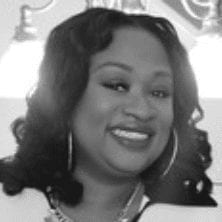
Jerai Robins is a Talent Acquisition Specialist at UPS, assigned to the corporate Talent Acquisition Team based in Atlanta, Georgia. Jerai served in the US Army for nine years. While on active duty service, Jerai served as a Human Resource Specialist amongst her many skill sets. Jerai was also deployed to Operation Iraqi and Enduring Freedom while on active duty. Jerai continues her service since leaving active duty by devoting her time by being an active advocate within the Veteran community here in Atlanta. Jerai is also an Associate Instructor with FourBlock. She was hand-selected to serve as a representative for the FourBlock program in the Southeast Region. Learn more about UPS here: www.ups.com
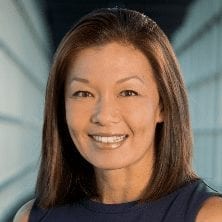
Lillian Norton is a West Point graduate and former US Army Military Intelligence Captain with 19 years of professional experience. She has over six years of Brand Marketing experience at P&G (Duracell), Newell Rubbermaid (DYMO), and Coca-Cola (Coca-Cola TM) and over 3 years of formal Project Management experience and continual PM experience while in other functions. Lillian places an emphasis on new product development grounded in consumer insights. She has led global new product launches from initial concept development through commercialization and launch in market. Currently, Lillian serves as a Senior Commercialization Manager for the Coca-Cola Freestyle business in North America. Learn more about The Coca-Cola Company here: https://www.coca-cola.com/
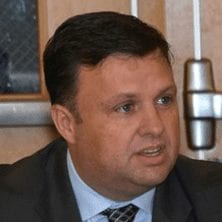
Lloyd Knight is a Senior Director of International Air Freight based at UPS Supply Chain Solutions corporate campus in Alpharetta, GA. Lloyd began his career with UPS in 2007 and in addition to his current assignment has served multiple capacities including Director of Global Freight Forwarding, Director of Global Government Operations and Government Operations Manager. In addition to these roles, Lloyd has been selected for several special assignments including a six month rotation with corporate HR establishing the UPS Veterans Management Training Program, a six week deployment to Hong Kong in 2017 to support peak season and the Chairman of the UPS Veterans Council in 2019. Lloyd retired from the Air Force in 2007 after 20 years of service. During his military service, Lloyd logged over 3,000 flight hours as a Loadmaster on several aircraft including the C-141 Starlifter, C-5 Galaxy, and C-23 Sherpa. He also served as a Functional Manager at HQ Air Mobility Command and First Sergeant for Medical and Communications Squadrons. Lloyd participated in Operations “Just Cause”, “Desert Storm” “Northern Watch”, “Southern Watch”, “Allied Force” and supported Operations “Enduring Freedom” and “Iraqi Freedom”. Lloyd started the first UPS Veterans Business Resource Group in Atlanta and co-founded and is the President of VETLANTA, an industry collaboration of veteran friendly/affiliated organizations striving to make Atlanta the premier community for veterans and their families. He is an active volunteer supporting multiple non-profits including American Corporate Partners, FourBlock, Veterans Empowerment Organization and Hire Heroes USA. Lloyd is the recipient of the 2017 UPS Jim Casey Community Service Award. This award is given annually to just one of 454,000 global UPS employees for demonstrating an exceptional commitment to helping others in their community. He is also two time recipient of the President’s Volunteer Service Award and was awarded an Atlanta Journal Constitution Hometown Hero Award in 2018. Lloyd has associate degrees in Aircrew Operations and Human Resources Management from the Community College of the Air Force, a Bachelor Degree and Master’s Degree in Transportation & Logistics Management from American Military University. Lloyd is married to Suzan for 31 years and has two sons. Connect with Lloyd Knight on LinkedIn and learn more about UPS here: www.ups.com
